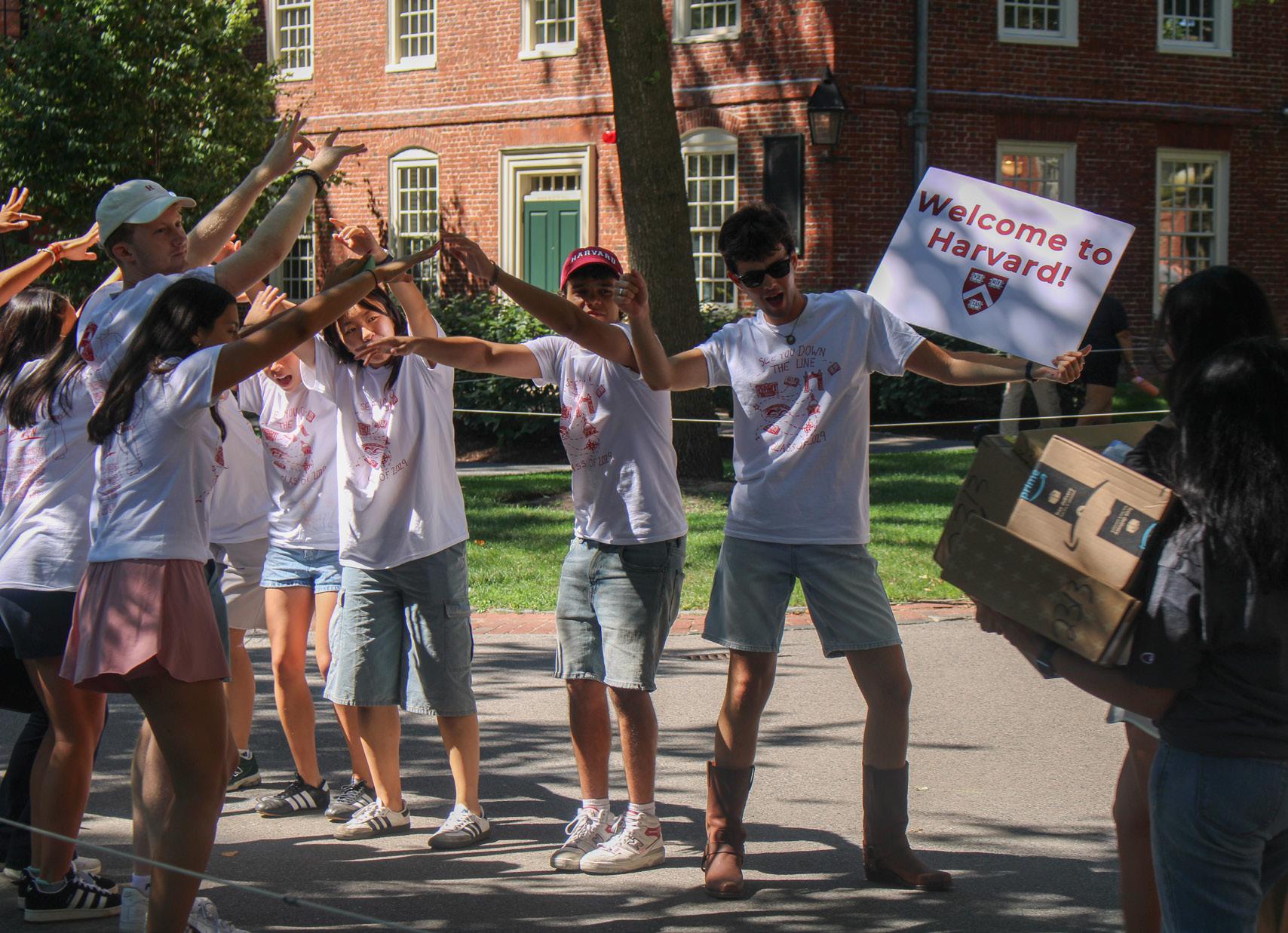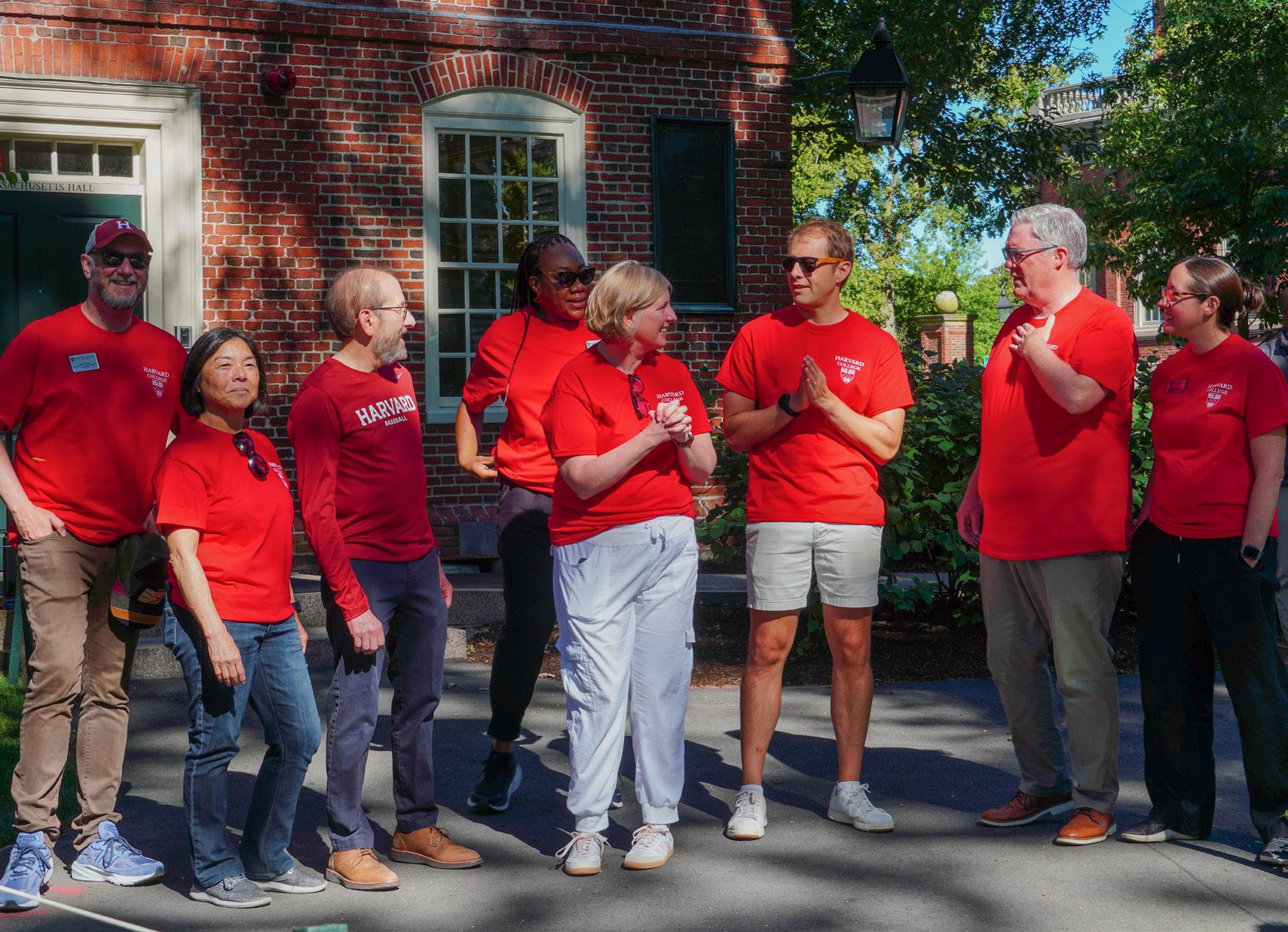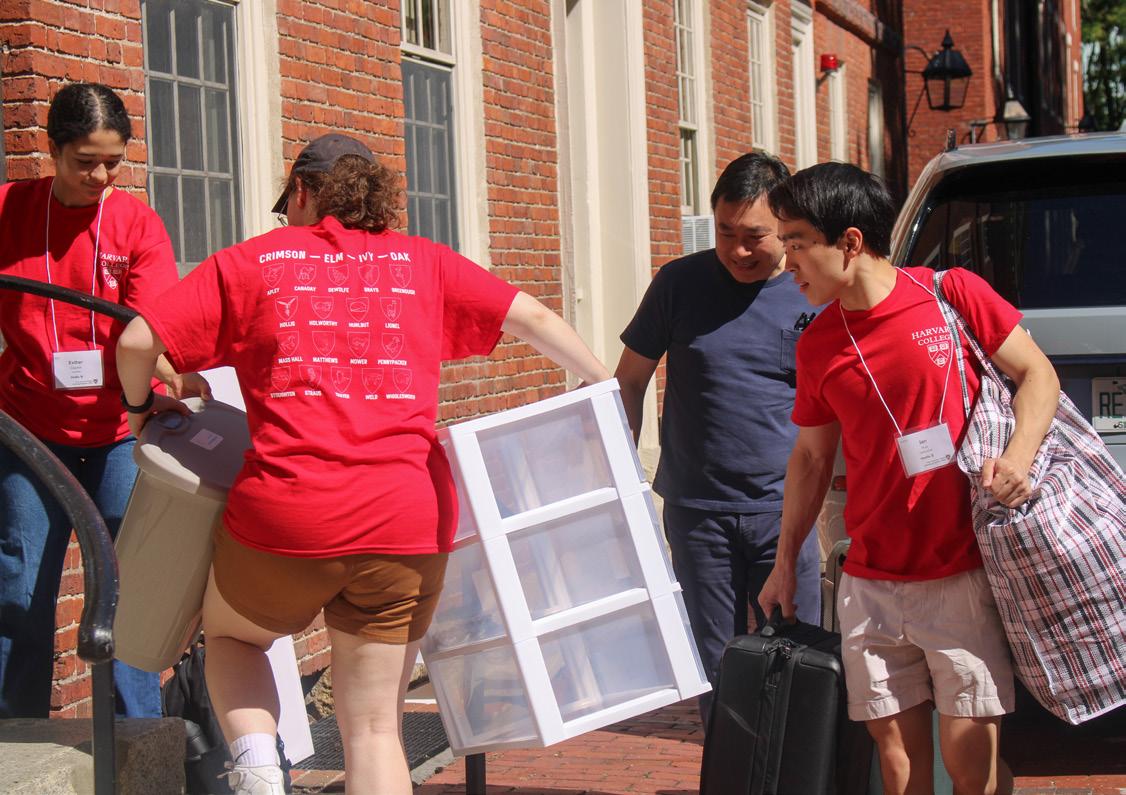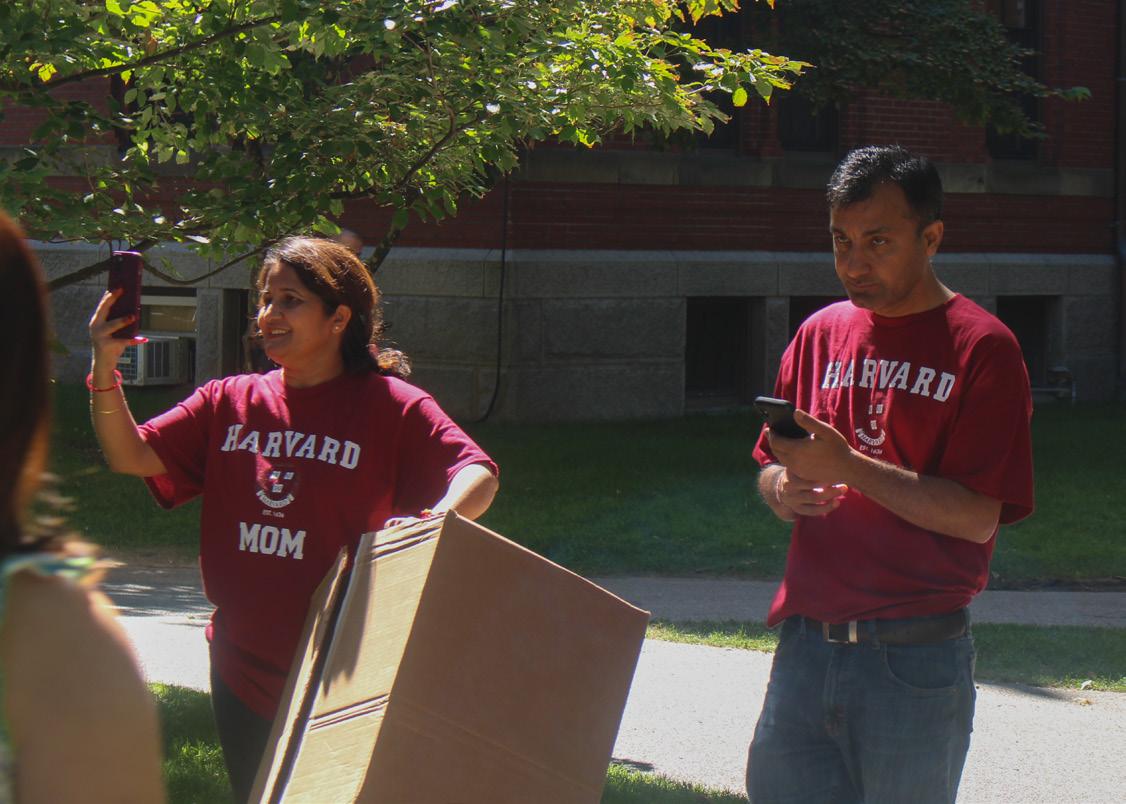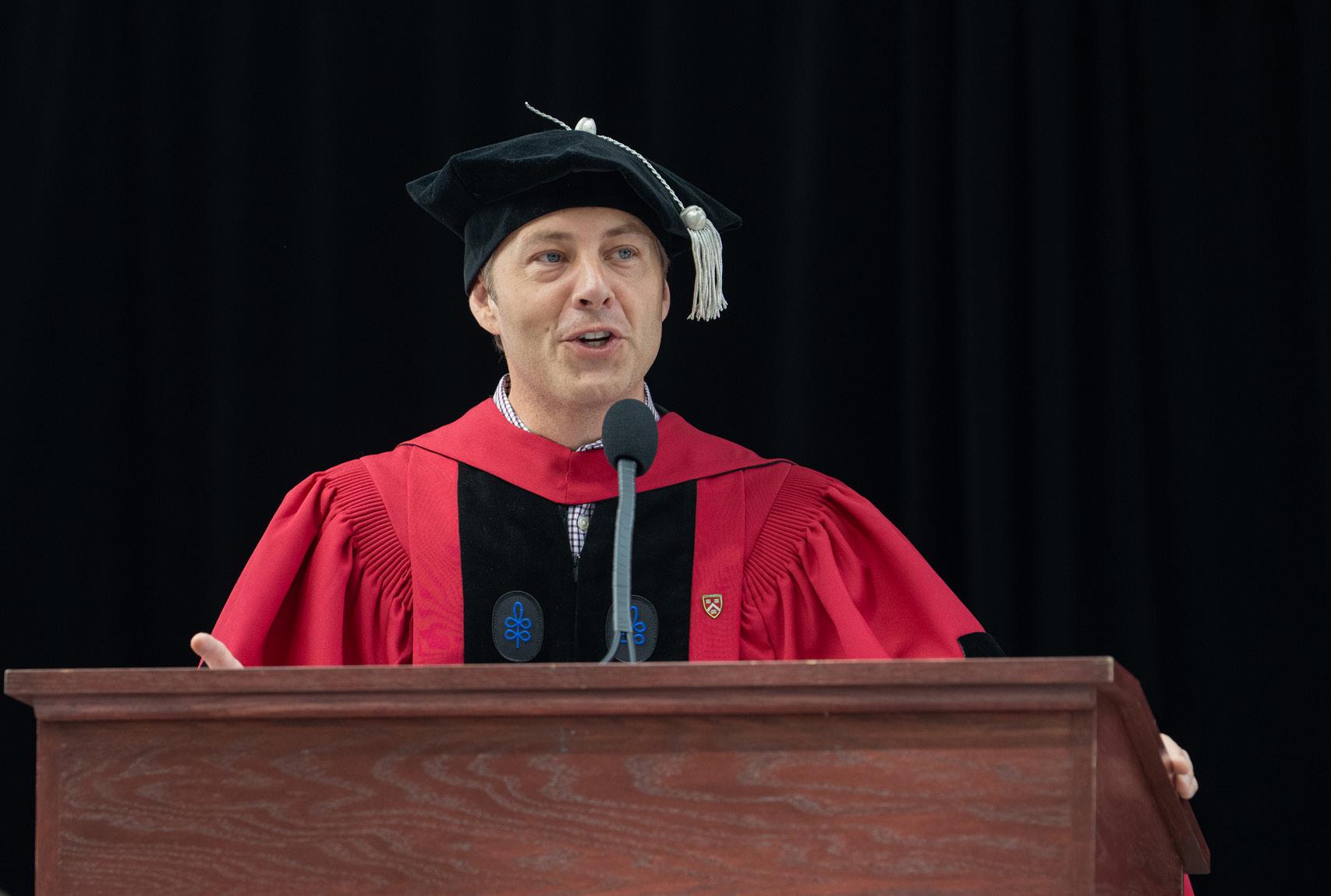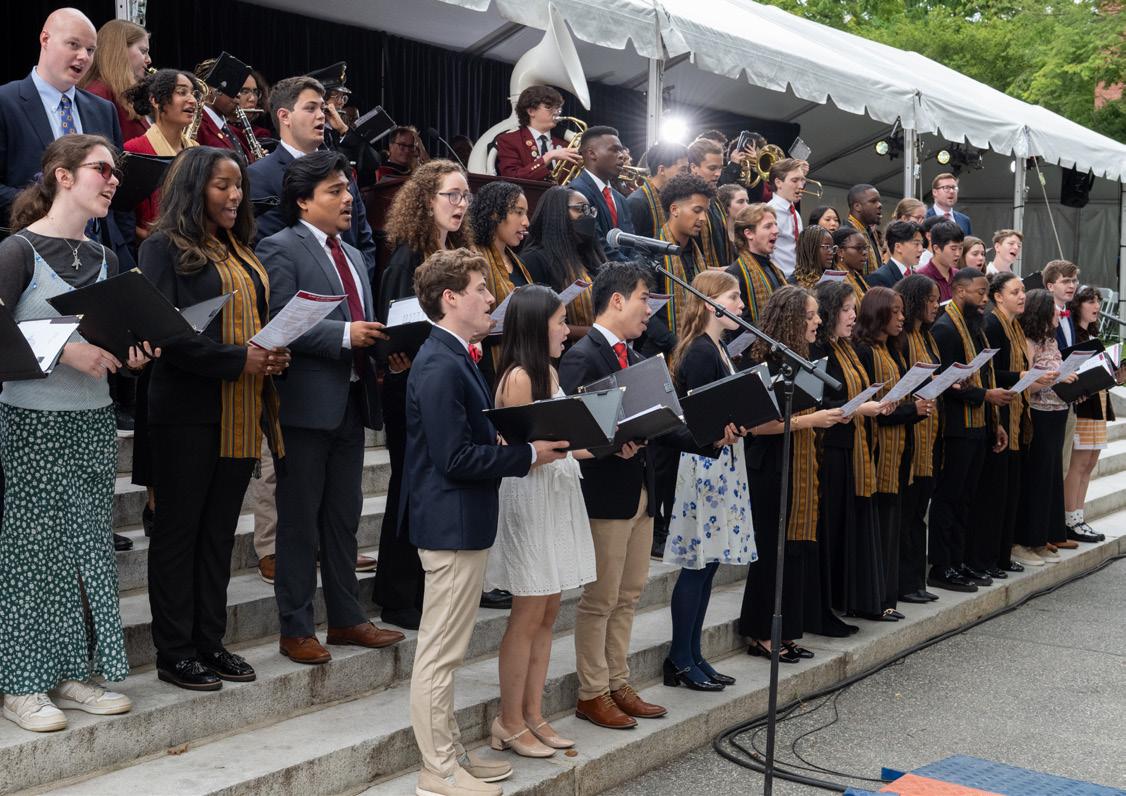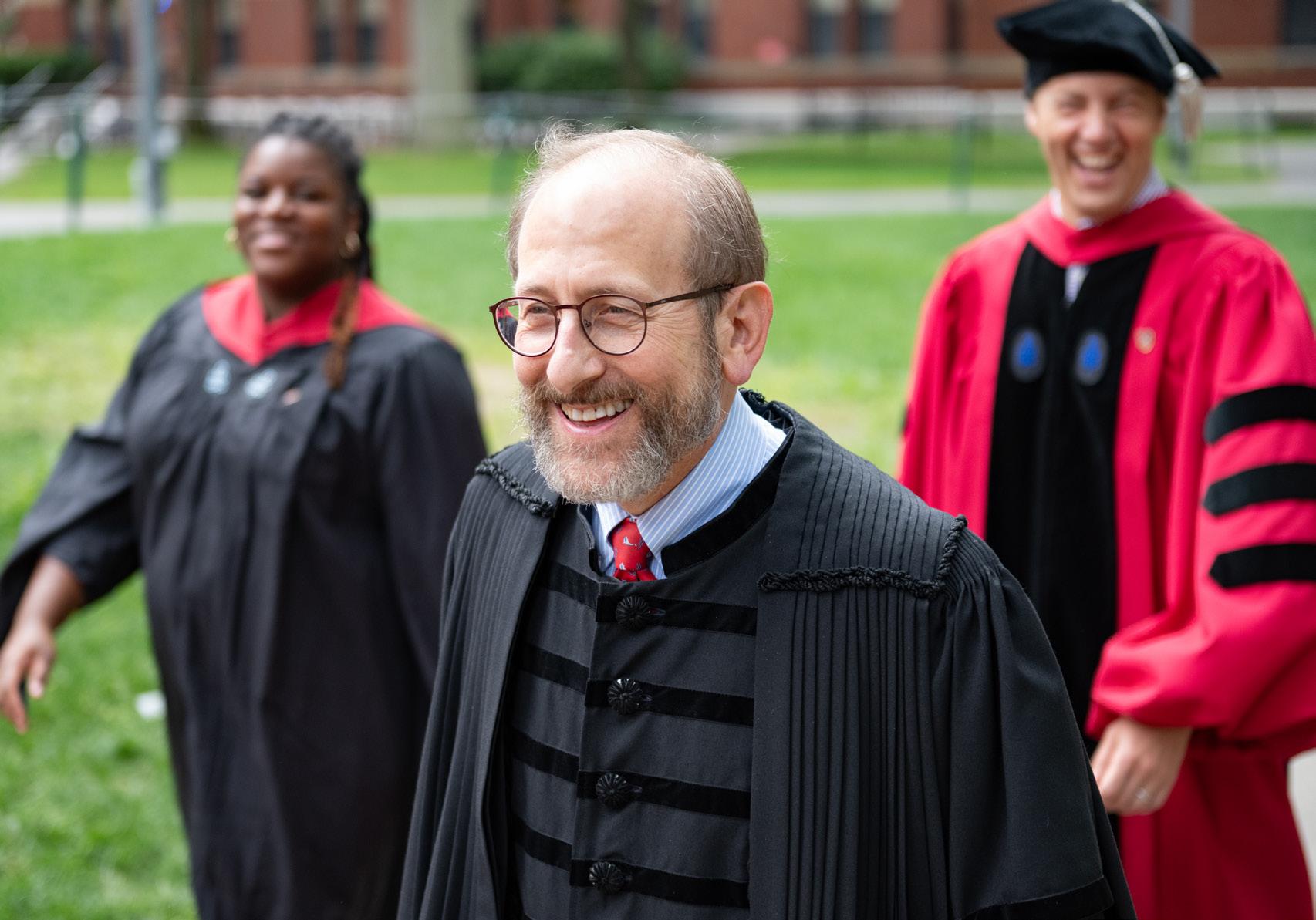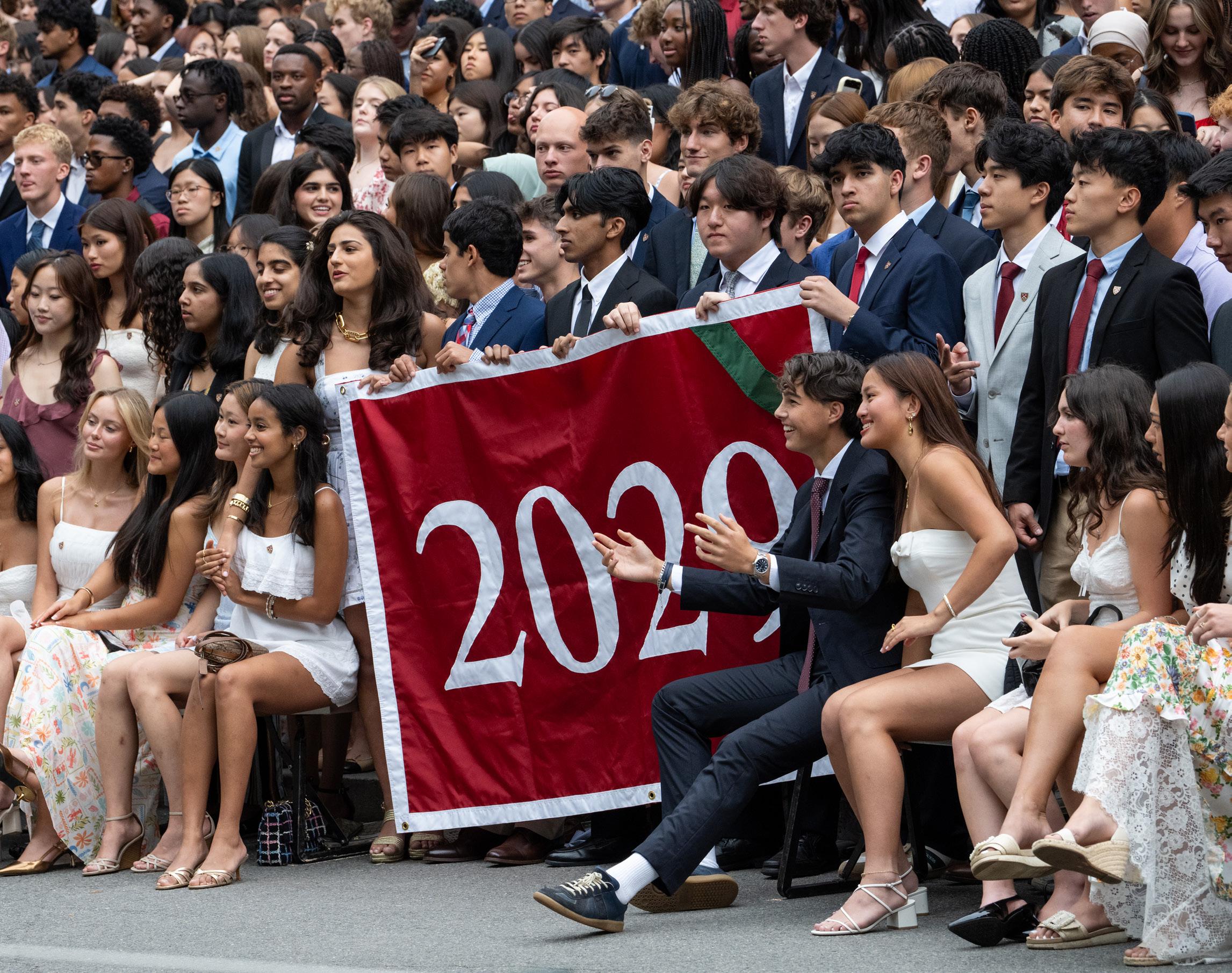The Harvard Crimson



QUAD DEPARTURES. Government professor Latanya A. Sweeney and attorney Sylvia I. Barrett will leave their Currier House faculty deanships at the end of the academic

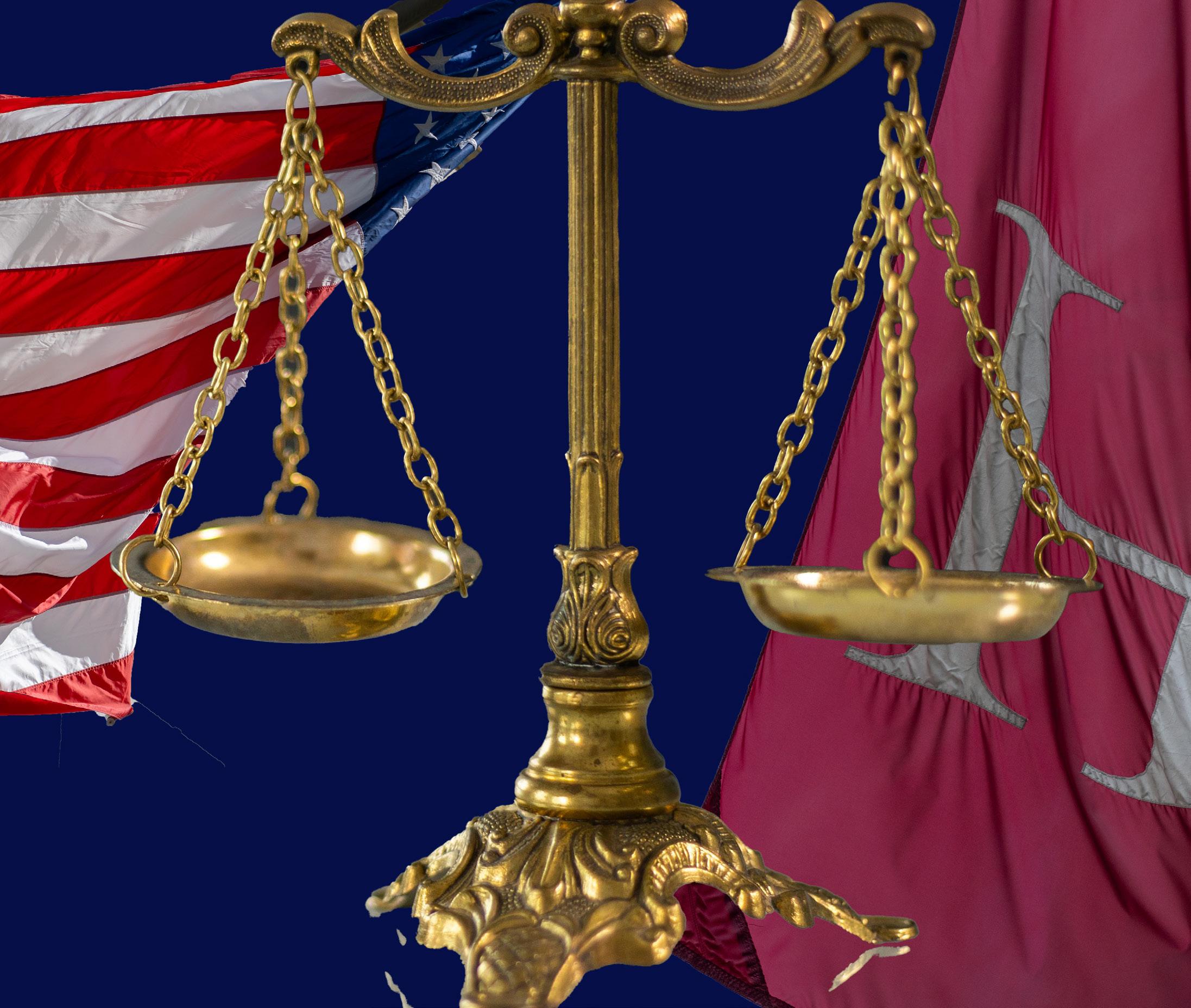
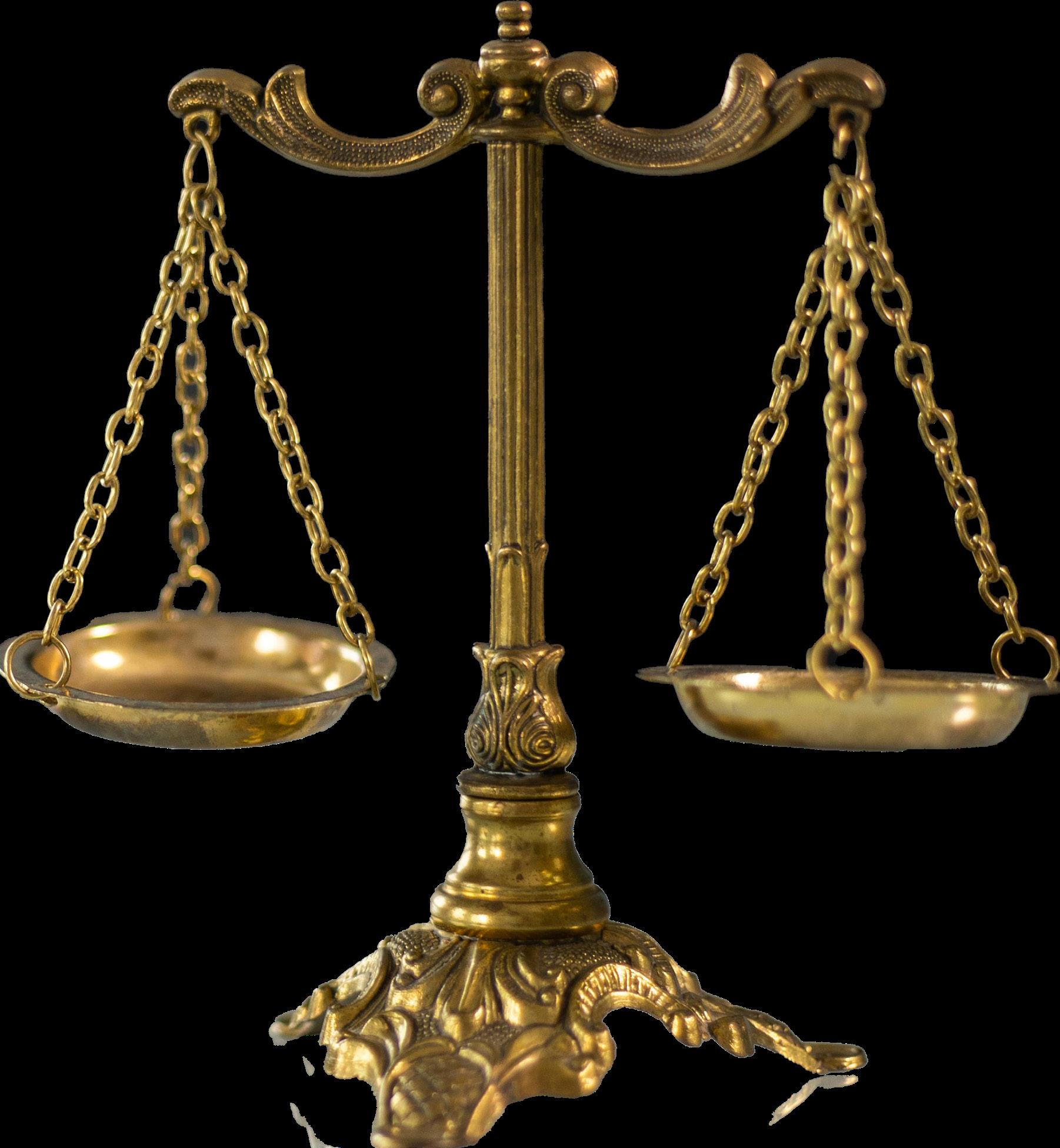
AThe Trump administration will appeal a federal court’s ruling issued earlier Wednesday that struck down its multibillion-dollar freeze on Harvard’s research funding, a White House spokesperson confirmed Wednesday evening.

from reimposing unconstitutional conditions on its funding.
justification — and “everything to do with Defendants’ power and political views.”
federal judge ruled that the Trump administration violated the Constitution when it froze more than $2.7 billion in research funding to Harvard, striking down the freeze in its entirety and delivering the University a major legal victory.
The decision from United States District Judge Allison D. Burroughs hands Harvard a summary judgment win on core constitutional grounds, finding that the administration’s freeze orders were retaliation for protected speech. She also found that the government failed to comply with Title VI of the 1964 Civil Rights Act, which requires agencies to give notice, investigation, and an opportunity to respond before terminating federal financial assistance over civil rights violations. Burroughs’ order vacated both the freeze orders and termination notices that Harvard received in the days after it rejected sweeping demands from the Trump administration this April as violations of the First Amendment. She also handed Harvard a permanent injunction that prevents the Trump administration
“A review of the administrative record makes it difficult to conclude anything other than that Defendants used antisemitism as a smokescreen for a targeted, ideologically-motivated assault on this country’s premier universities,” she wrote in her order.
The standoff between Harvard and the Trump administration began in late March, when federal agencies sent the University a letter conditioning billions of dollars in multiyear grant commitments on a set of preconditions. In April, the administration broadened its demands — asking Harvard to restructure its governance, hiring, and disciplinary processes, subject to audits by the government.
When Harvard rejected the conditions, the Trump administration responded just hours later by cutting $2.2 billion in federal funding, then turned up the pressure by pulling hundreds of millions more. Harvard responded by suing nearly a dozen federal agencies and their leaders, saying the repeated cuts were retaliatory measures intended to punish the University for exercising its First Amendment rights.
In her order on Wednesday, Burroughs slammed the government’s conditions and argued that they had little to do with combating antisemitism — the administration’s stated
Burroughs also ruled that the freeze orders were “arbitrary and capricious” under the Administrative Procedure Act, stating that federal agencies had gathered virtually no evidence about antisemitism at Harvard prior to issuing them. She noted that the primary document used by the White House to argue that Harvard had let antisemitism run rampant — a report by an internal University task force — was published two weeks after the April 14 freeze.
White House spokesperson Liz Huston condemned the decision — targeting Burroughs, an Obama appointee, and alleging she had ruled without fully considering the facts — and confirmed that the administration plans to appeal.
“We will immediately move to appeal this egregious decision, and we are confident we will ultimately prevail in our efforts to hold Harvard accountable,” she wrote.
Trump has previously vowed on social media to “IMMEDIATELY appeal, and WIN” if Burroughs ruled against him, raising the prospect of a drawn-out, multi-year legal battle that could ultimately end before a Supreme Court that may have little sympathy for Harvard.
The statement came just hours after U.S. District Judge Allison D. Burroughs issued a resounding decision in Harvard’s favor, declaring the funding freeze unconstitutional and blocking the administration from reimposing similar conditions. Now the Trump administration could send the case through a lengthy appeal process or attempt to leapfrog directly to the Supreme Court for an expedited review, according to several legal experts. The first path would first send the case to a circuit court with a majority of Democratic appointees, but the case is likely to eventually end up before the right-leaning Supreme Court unless the administration and Harvard reach a settlement outside the courtroom.
President Donald Trump had previously suggested that Burroughs, an Obama appointee who has sided with Harvard several times before, would rule in the lawsuit without fully considering its facts — though legal experts largely believed Harvard had a strong case. After a hearing for the case in July, Trump vowed on Truth Social to “IMMEDIATELY appeal, and WIN” if Burroughs ruled against him, lambasting her for being a “total ‘loss’ for People of our Country.”
BY HUGO C. CHIASSON AND AMANN S. MAHAJAN CRIMSON STAFF WRITERS
Harvard College cut course assistant pay in some departments by $2 and has begun reducing teaching assistant positions for undergraduates amid University-wide budget cuts.
At least 60 CAs in the Math department, who had been paid $23 per hour for jobs with in-class work, were informed in August that their new wage for the fall would be $21 – part of a position reclassification initiative by the Office of Undergraduate Education. Several Physics department CAs also had their fall pay docked by $2.
Two departments — Math and Computer Science — that regularly hire dozens of undergraduate course assistants to staff classes, also cut back on their CA hiring for the fall. Computer Science 50 professor David J. Malan ’99 wrote in a statement that the changes were due in part to budget cuts, and Upper-Level Math CA Coordinator Oliver Knill wrote in an email to CAs that the department was “under lots of pressure to reduce the number of CAs as budget cuts are everywhere.”
A University spokesperson declined to comment for this article.
The change allows Harvard to reduce spending on teaching assistants after it announced a University-wide hiring freeze and paused merit-based wage increases for all faculty and staff. Several
Harvard schools have also laid off staff as Harvard battles with the Trump administration over federal funding.
Top Harvard officials said the combined effects of federal funding cuts and a new 8 percent endowment tax will cost the University up to $1 billion every year.
Undergraduate teaching assistants are represented by Harvard Graduate Students Union-United Auto Workers. Their current contract establishes a minimum wage of $21 for all hourly student workers, though some student workers who provide in-class and lab section assistance have typically been paid $2 more.
Harvard Law School student Justin P. S. McMahan ’21, co-chair of the union’s contract enforcement committee, said HGSU-UAW plans to pursue a grievance over the pay change. Though the changes do not bring pay below the contract minimum, McMahan said they merit a grievance because the University did not provide notice of the updated pay guidance or attempt to bargain with the union over it.
“Unless the University comes to the table in good faith and it’s like, ‘Hey, we’ve made a mistake,’ then otherwise, we’re going to go forward and file this grievance, because it’s clear that they have violated the contract,” he said.
Sudden changes to employment agreements for unionized workers are particularly contentious because HSGU-UAW is currently negotiating its third contract. The National Labor Relations Act bars employers from unilaterally changing
wages during the course of bargaining for a union contract. The OUE issued guidance to departments in April that CAs designated as CA Twos — those with in-class and lab section duties, per the union contract — would receive $23 per hour for the fall because new salary rates were under negotiation with the union.
But prospective CAs for Harvard’s introductory math courses then received an email from head teaching assistant Yana O. Hubyak ’24 in May announcing their reclassification to CA Ones by the OUE, dropping their pay to $21. Physics CA Grace Zhou ’27 had previously been classified as a CA Two and paid $23 per hour, even though her position did not include in-class or lab section duties. But following the OUE-directed reclassifications, she found that her pay had decreased to $21 an hour for the fall semester, even though her responsibilities did not change.
The reclassification also created several contradictory work assignments. At least two student workers reclassified as CA Ones with $21 hourly pay still had in-class duties — a CA Two responsibility — listed as possible responsibilities in their employment letter’s position description. Beyond pay cuts, departments have also winnowed overall CA hires. According to Knill, the total number of upper-level CAs for math courses declined by close to 25 percent from last year.


received disciplinary action from the University.” THE CORNELL DAILY SUN ‘TAKE BACK OUR UNIVERSITY’ RALLY UNITES CAUSES, ORGANIZATIONS AT CORNELL
A faculty and staff program at the University of Pennsylvania aims to build connections between Penn affiliates and neighborhoods and towns in Pennsylvannia, The Daily Pennsylvanian reported on Monday. Penn announced the inaugural cohort of scholars, who will speak about Pennsylvania history and socioeconomic disparities around the state. Participants will visit cities and rural areas to learn about the state’s geographic, cultural, economic, and political characteristics. THE DAILY PENNSYLVANIAN PENN LAUNCHES PROGRAM TO FOSTER CONNECTION WITH LOCAL COMMUNITIES The Daily Princetonian reported on Wednesday that artist Amaarae is set to headline Princeton’s Fall Lawnparties, which will take place on Sunday. Amaarae, a Ghanaian American singer and songwriter, was the first Ghanaian artist to hold a solo performance at Coachella. Prior to Amaarae’s performance, Princeton student band Casual Riot will open the event, held in front of Princeton’s Frist Campus Center. THE DAILY PRINCETONIAN AMAARAE TO HEADLINE FALL 2025 LAWNPARTIES AT PRINCETON
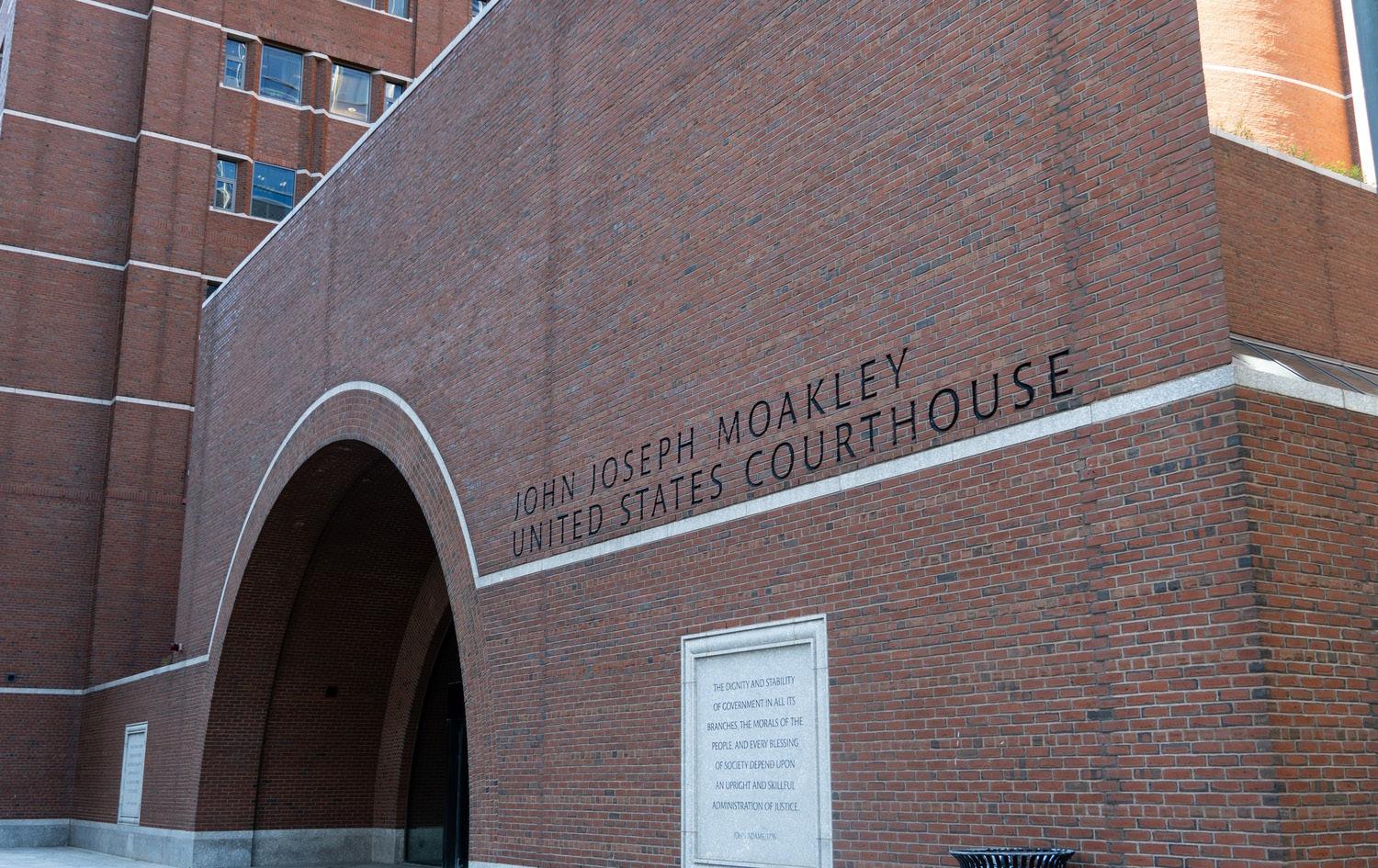


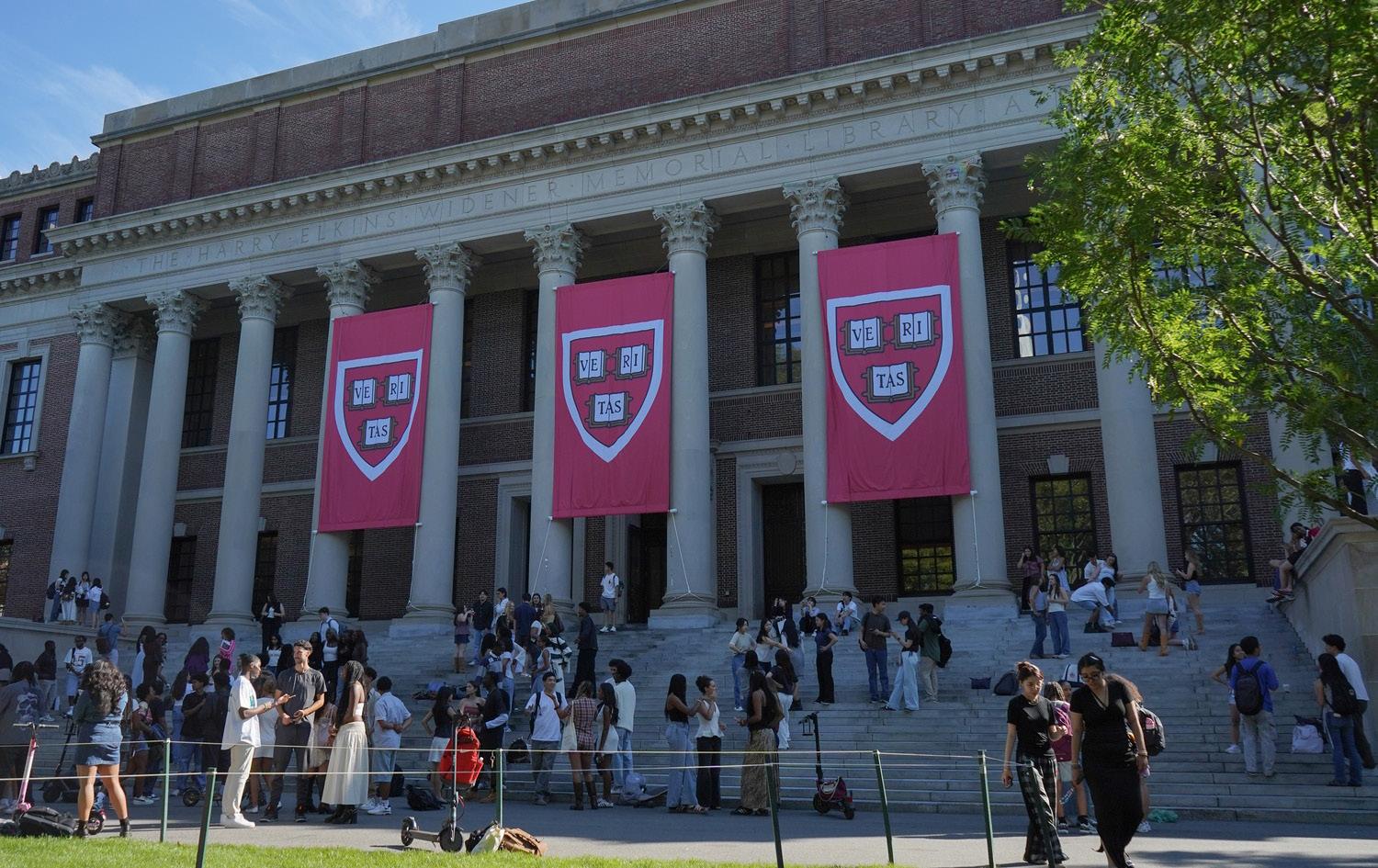

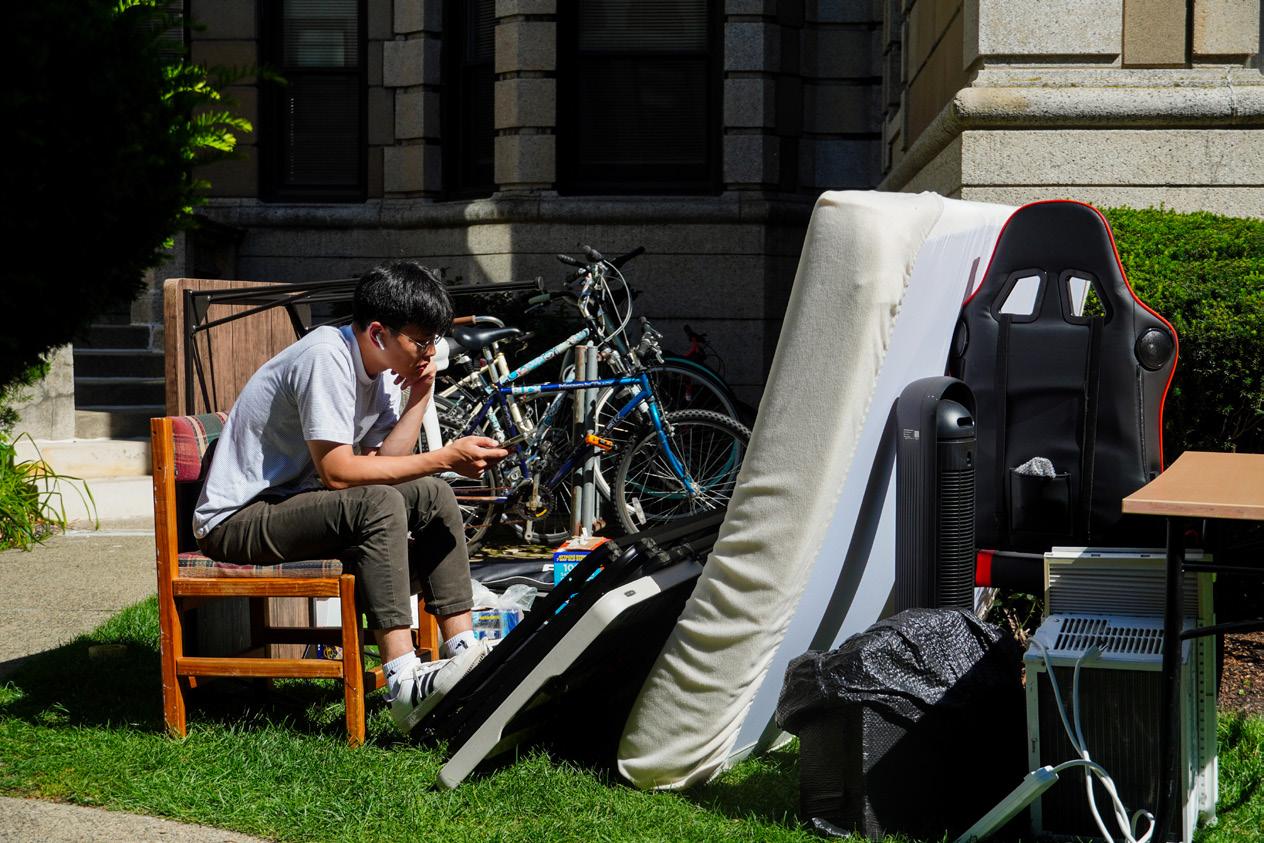
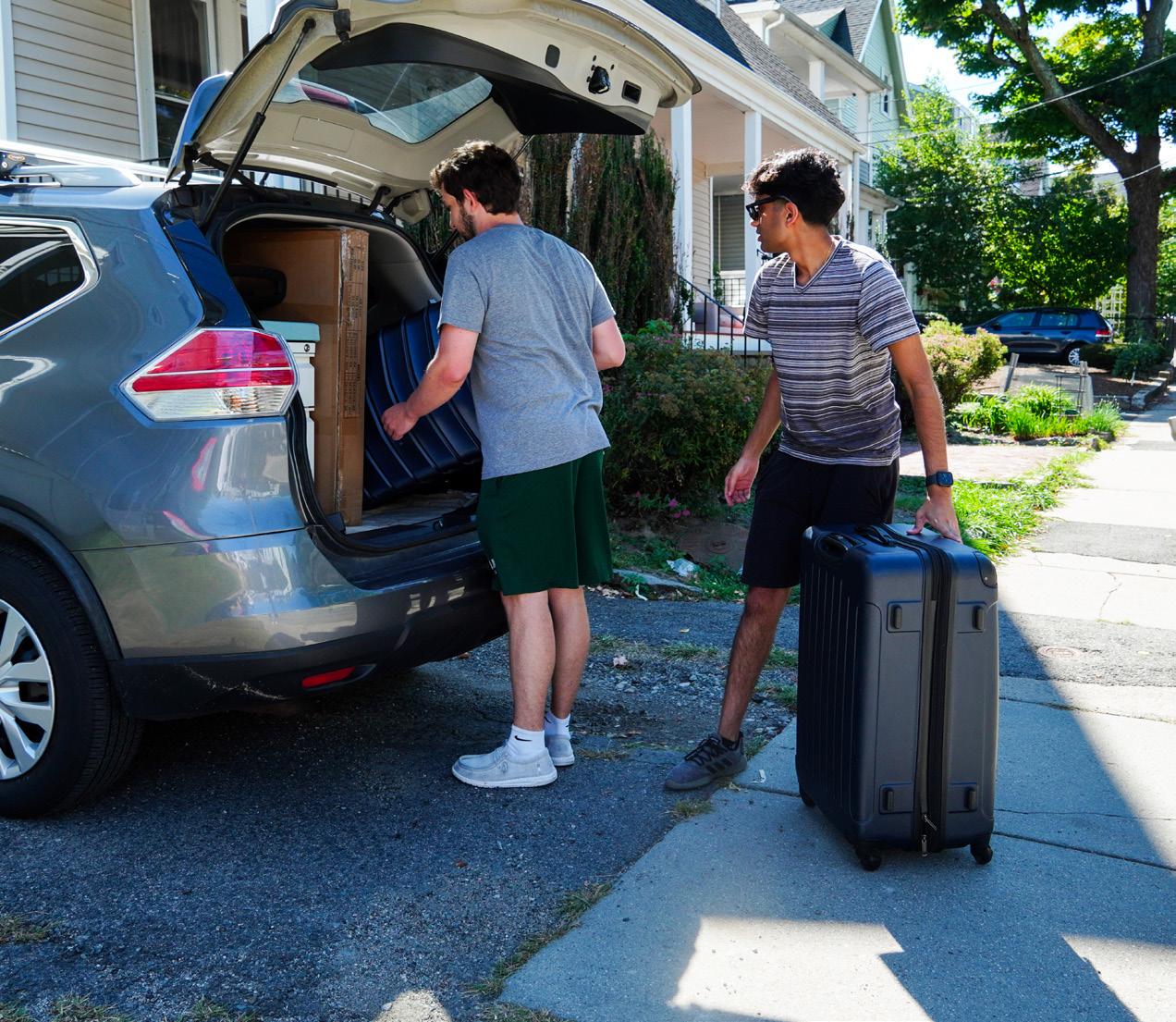
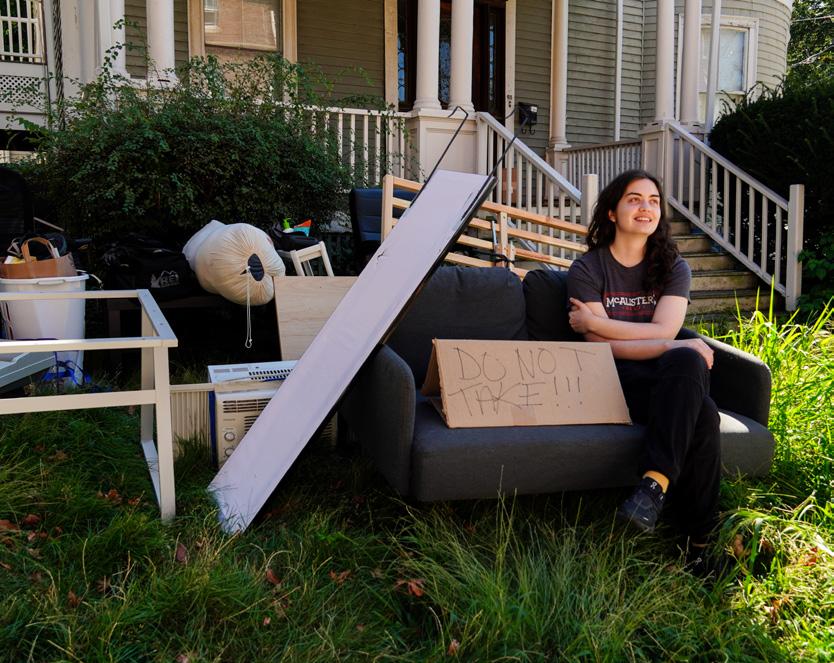
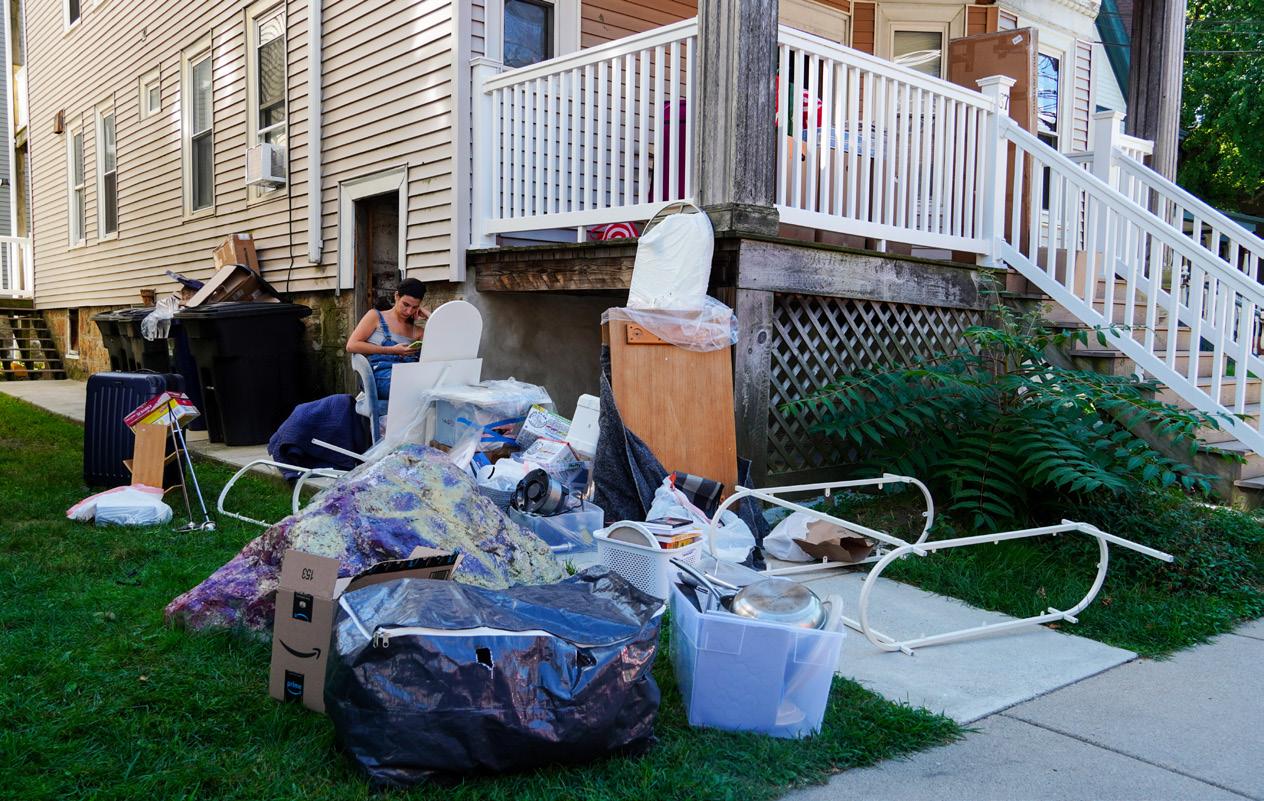
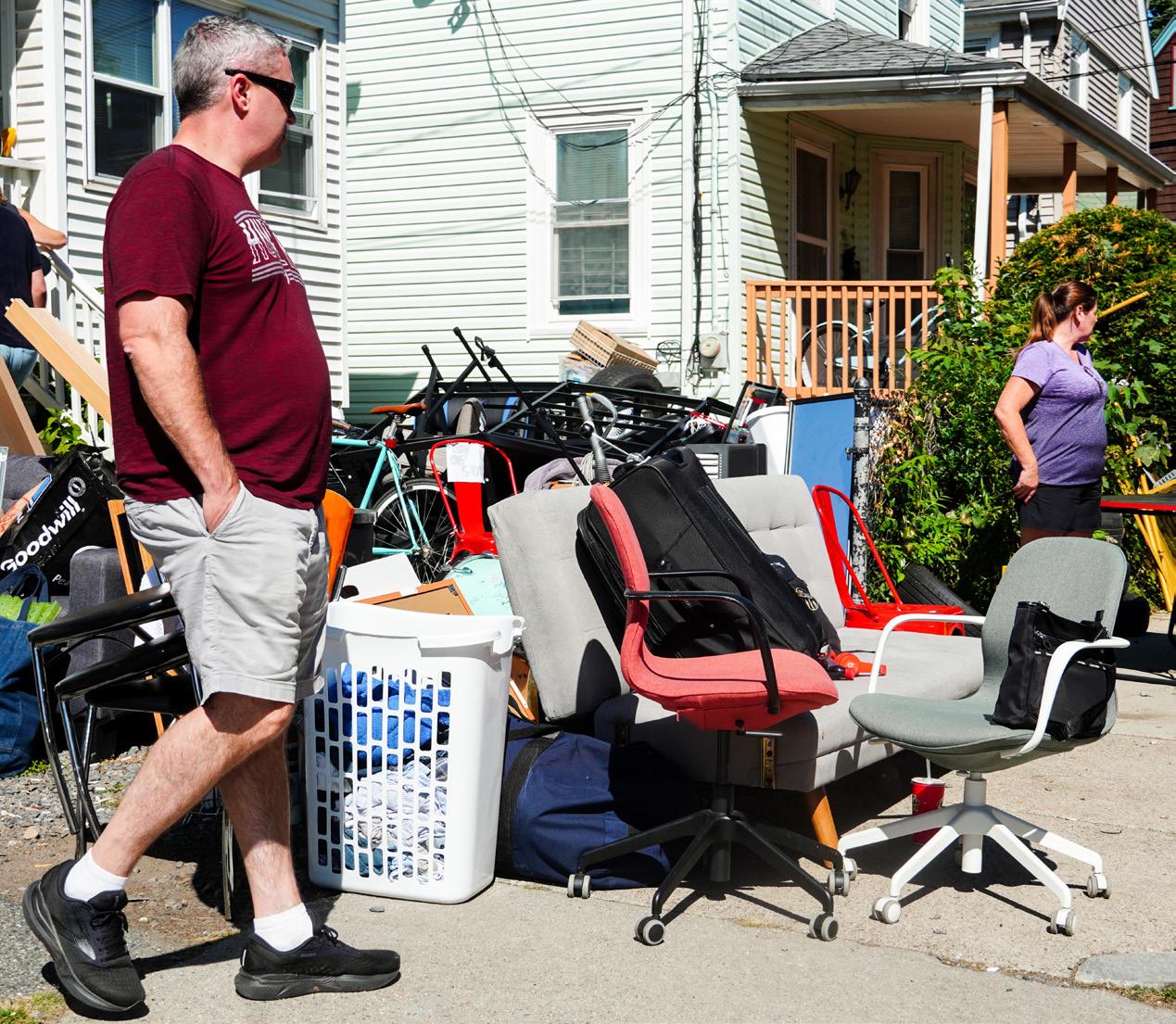
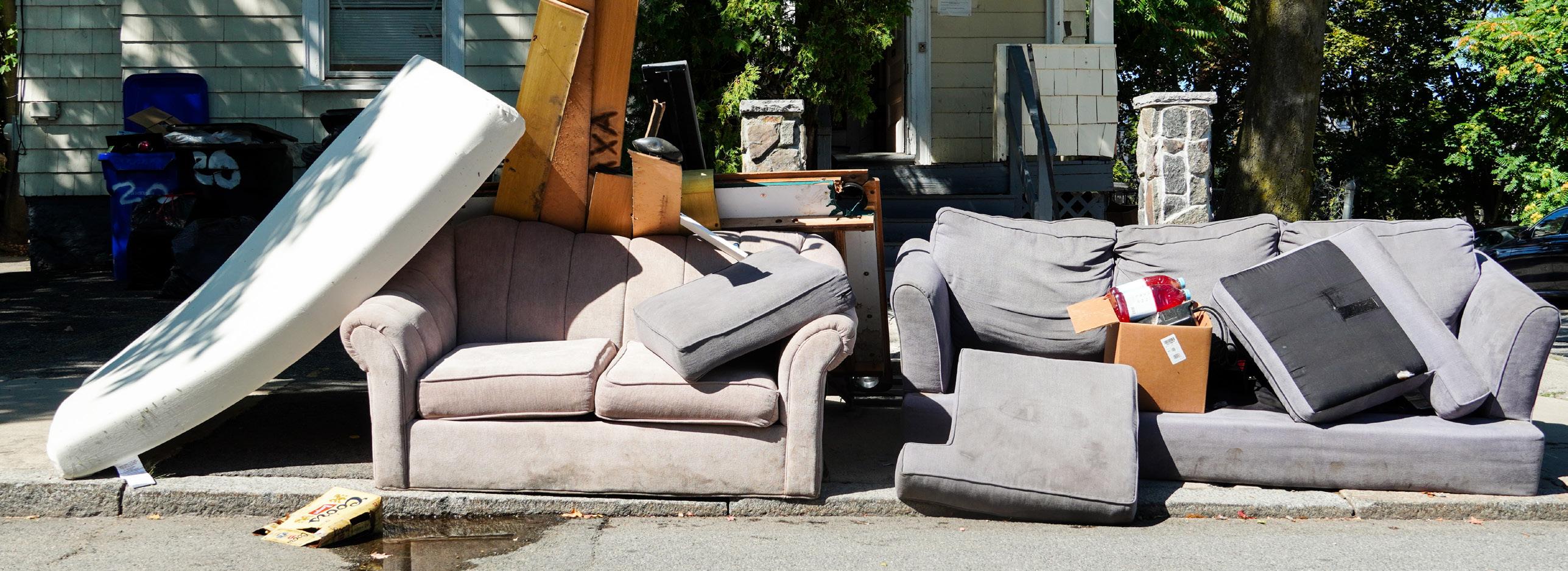
HEALTH SECRETARY RFK JR. FACES DEFENDS HIS TENURE IN SENATE HEARING
Health and Human Services Secretary Robert F. Kennedy Jr. appeared before the Senate Finance Committee in a contentious three-hour hearing on Thursday, where he faced questions from senators about vaccines, Medicaid, and the C.D.C. Kennedy has overseen widespread institutional changes — including firing the C.D.C. director and thousands of employees, as well as appointing vaccine critics to an influential federal advisory committee — and narrowed access to vaccines over the last seven months of his tenure, drawing sharp criticism from lawmakers and the public alike. Kennedy defended his decisions before the senators in a tense and combative exchange with senators from both political parties.
EARTHQUAKE IN AFGHANISTAN KILLS MORE THAN 1,400 PEOPLE
A magnitude 6.0 earthquake
eastern Afghanistan near the
kistan border
Sunday, killing more than 1,400 people and injuring 3,000 others. An aftershock of 5.2 magnitude close to the epicenter of the quake in the city of Jalalabad in Nangarhar province rattled the nearby provinces on Tuesday, according to the U.S. Geological Survey. This marks the country’s third major earthquake since the Taliban seized power in 2021, further stretching the resources of the war-torn nation, already grappling with a weak economy and deep cuts to aid funding. Rough terrain and limited international aid assistance have complicated rescue and relief efforts.
AT LEAST 15 DEAD AFTER LISBON STREETCAR DERAILED
Lisbon’s historic Elevador da Gloria streetcar derailed and crashed Wednesday, killing 15 people and injuring 18 others, according to emergency services. The yellow-andwhite funicular car, which is popular with tourists and is one of the city’s symbols, appears to have crashed into a building where the road bends. The cause of the derailment remains unclear, with the company that operates the streetcar offering its condolences to the victims in a social media post and stating that scheduled maintenance had been carried out. Lisbon Mayor Carlos Moedas called the accident “a tragedy of the like we’ve never seen,” announcing that a day of national mourning would be observed on Thursday.
KIM JONG UN VOWS SUPPORT FOR RUSSIA
During bilateral talks in Beijing on Wednesday, North Korean leader Kim Jong Un said his country would support Russia’s army as a “fraternal duty,” and Russian President Vladimir Putin praised the bravery of North Korean soldiers who fought alongside his troops to repel a Ukrainian incursion into Russia.
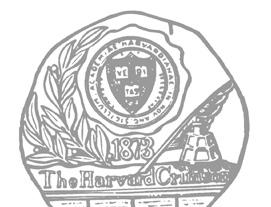
Start every week with a preview of what’s on the agenda around Harvard University
Friday 9/5
CRIMSON JAM
Harvard Yard, 5:30 p.m.
Celebrate the end of the first week of classes by joining your classmates in the Yard for picnics, yard games, and a concert from Bryce Vine. Student performers will take the stage before the headliner — giving students a chance to cheer on their peers.
Saturday 9/6
ASIAN AMERICAN DAY FESTIVAL
Boston Common, 10:00 a.m.-4:00 p.m.
Celebrate the 15th Annual Asian-American Day Festival on Boston Common with music, food, and cultural performances throughout the day. The festival features stage performances, vendors, and community organizations.
Sunday 9/7
THE 31ST ANNUAL CAMBRIDGE
CARNIVAL
Central Square University Park Commons, 11:00 a.m.-5:00 p.m.
Celebrate African and Caribbean culture at Cambridge Carnival International’s annual festival, featuring live music, dazzling costumes, dynamic dance performances, and a vibrant selection of food and craft vendors.
Monday 9/8
HARVARD BOOKSTORE TALK WITH FARA DABHOIWALA
Harvard Bookstore, 7:00-8:00 p.m.
Harvard Book Store welcomes Fara Dabhoiwala, senior research scholar at Princeton University for a discussion of his new book What Is Free Speech?: The History of a Dangerous Idea.
Tuesday 9/9
BIKE IT UP IN CENTRAL SQUARE
Kendall/MIT Open Space, 5:00-7:00 p.m.
Enjoy free bike tune-ups, safety resources, music from MIT student DJs, lawn games, and community activities. Free safety checks with a bicycle technician are available on a first-come, first-served basis. Registration is recommended for updates and weather-related changes.
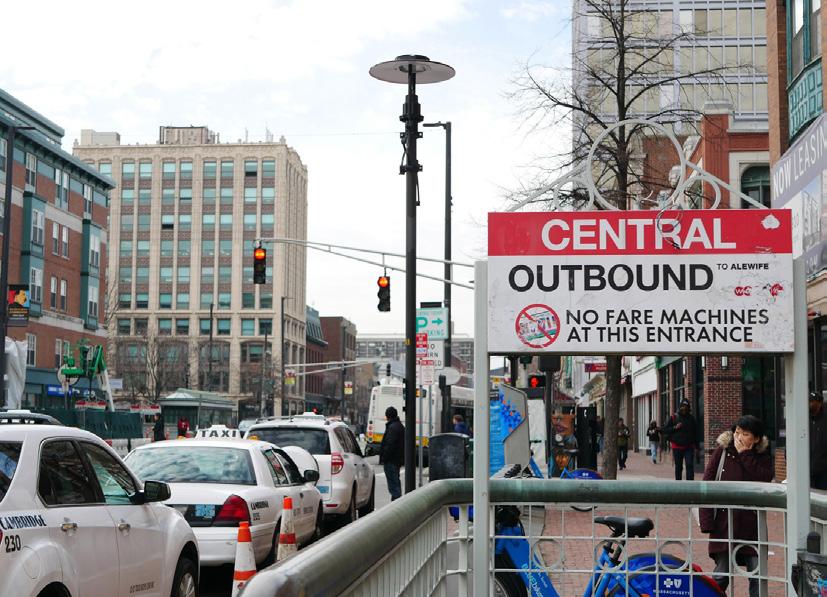
Wednesday 9/10
BLOCK PRINTING WORKSHOP AT THE HIVE
Cambridge Public Library, 5:30-7:30 p.m. Learn block printing in this hands-on workshop using hand-carved rubber linocut blocks and modern laser engraving techniques. Participants will sketch, carve, and print their designs on paper, and see a demonstration of the Hive’s Zing laser cutter.
Thursday 9/11
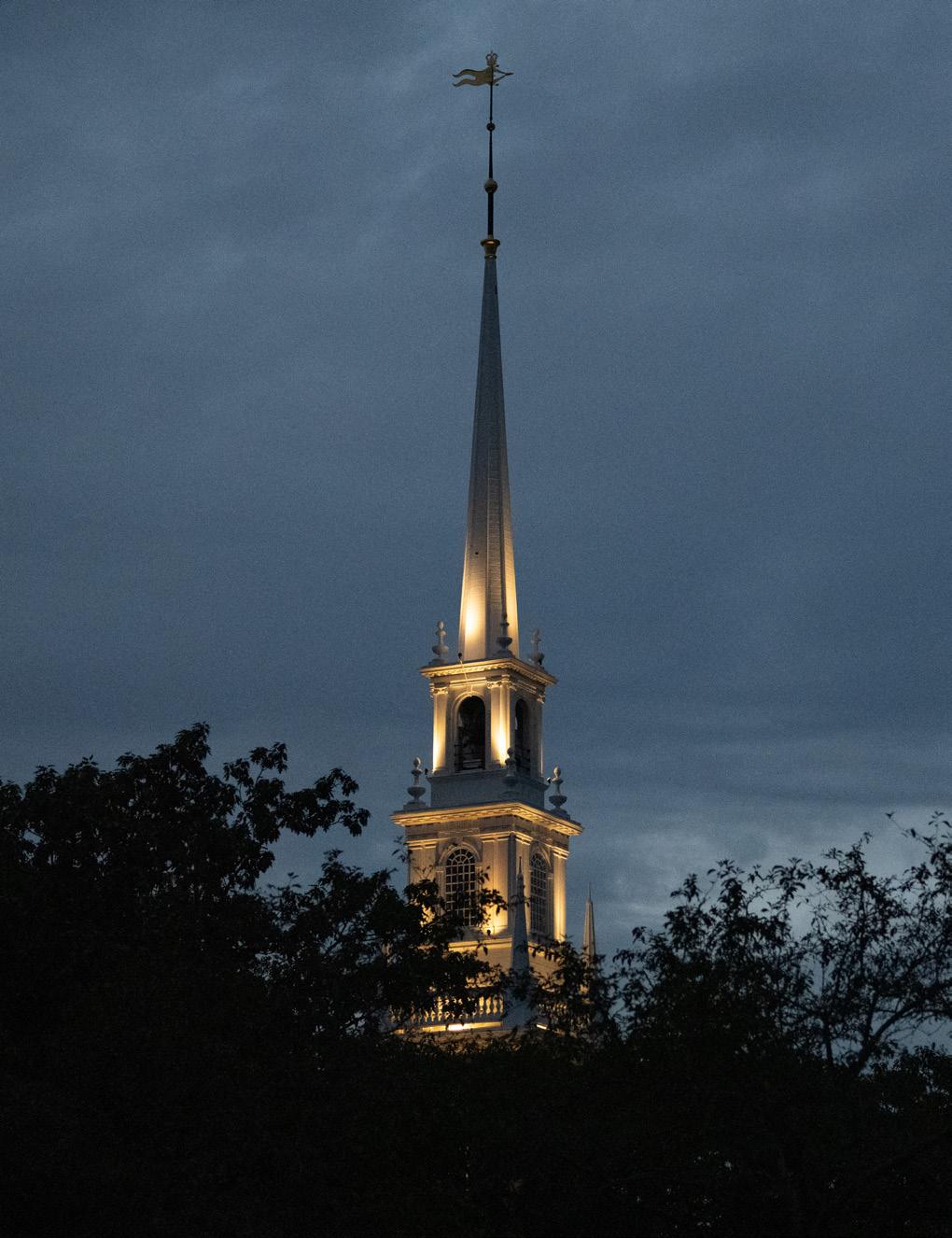
Friday 9/12




Harvard College’s disciplinary review board tripled its case load during the 2023-24 academic year, calling 90 students to appear for non-academic behavior, according to a report released over the summer.
More than half of students subject to discipline during that period were accused of personally violating protest policies or participating in unsanctioned protests, according to records subpoenaed by a congressional committee. According to the College’s summer report, one student was required to withdraw as a result of an Administrative Board ruling.
Accelerating the upward trend in disciplinary cases that began the year prior, 2023-24 tracked a campus reeling in the wake of Hamas’ Oct. 7, 2023 attacks on Israel that had come alive with pro-Palestine protest activity. The University also tightened protest rules in early 2024, giving administrators clearer license to hand down disciplinary sanctions. Before 2022, disciplinary cases had been steadily decreasing.
Of the 90 cases reviewed, one student was placed on probation for alcohol misuse, and another was placed on probation for sexual misconduct. In the other 88 disciplinary cases, most of which were connected to protest infractions, 58 students were placed on probation – the highest number reported since at least the 2017-18 year. Students placed on probation are monitored by the Ad Board and can be asked to withdraw if they
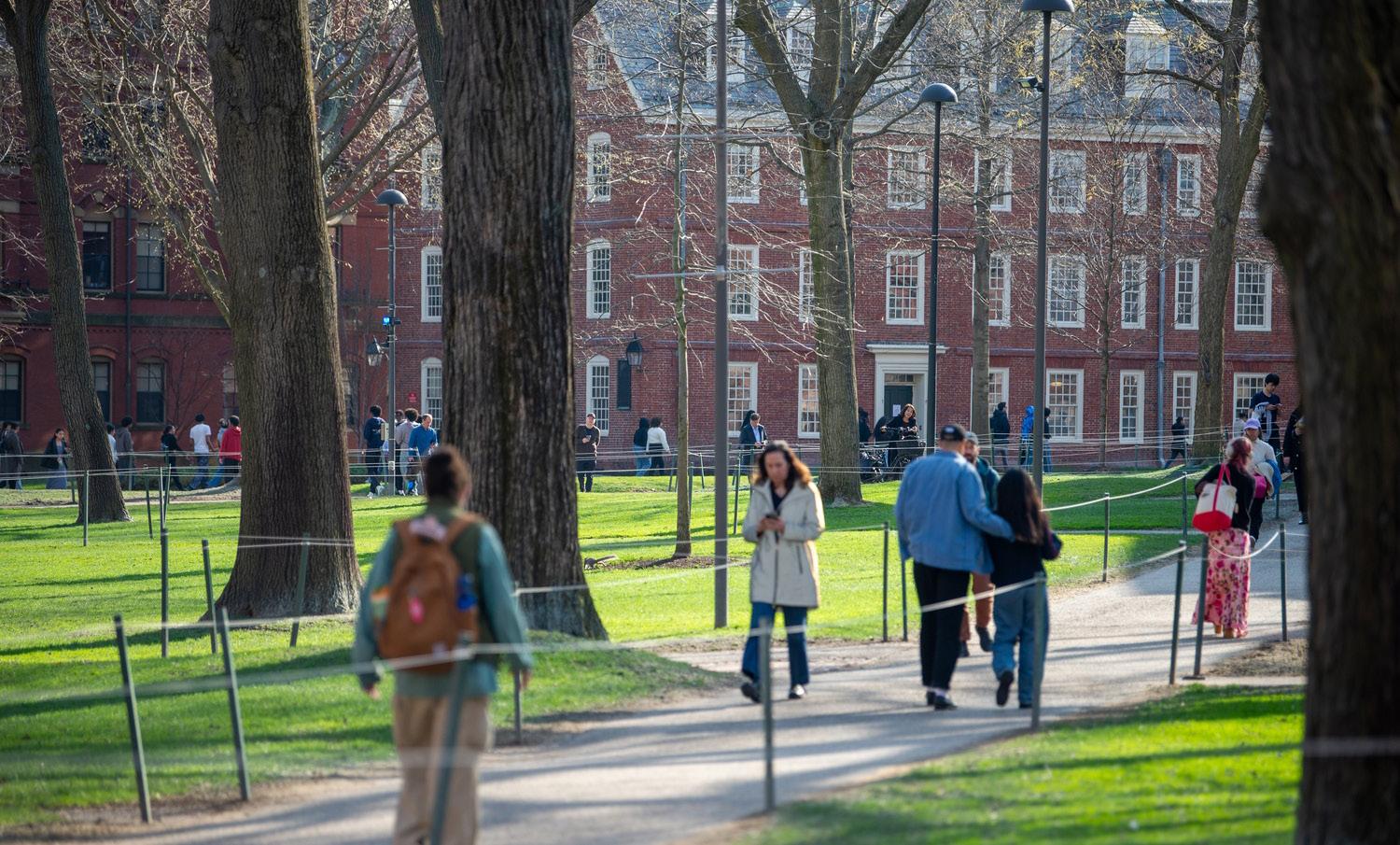
commit subsequent violations.
Nearly all of the students placed on probation were sanctioned for their participation in the November 2023 pro-Palestine occupation of University Hall and the April-May 2024 pro-Palestine encampment, according to University documents subpoenaed by Congress. Students were charged with violating rules on the use of campus spaces and disrupting normal campus activity.
Thirty-one students were formally admonished but not placed on probation, up from 14 the previous year. Forty-four students were also required to withdraw for academic reasons — not including dishonesty — in the 2023-24 year, according to a separate report.
Harvard College spokesperson Jonathan Palumbo wrote in a statement that the College “is committed to the transparent reporting of data and ensuring a wide range of information is available to the community.”
Palumbo declined to comment on year-to-year changes in the
data. The Ad Board’s reviews of social behavior have always included sexual misconduct and drug and alcohol offenses, but the volume of protest-related cases that the body oversaw last year was unprecedented. In the midst of the pro-Palestine encampment in Harvard Yard, administrators relied on the threat of Ad Board proceedings to encourage the group to leave.
The Ad Board had initially suspended five students and placed more than 20 students on probation for their involvement in the 20-day Harvard Yard stakeout, but the body later downgraded the suspensions to probations of varying lengths and softened charges against other disciplined students.
Faculty of Arts and Sciences Dean Hopi E. Hoekstra later convened a committee of faculty and administrators to review the Ad Board’s practices after many faculty members and students criticized the disciplinary actions for the pro-Palestine protesters as out of sync with past board precedent.
The Harvard Undergraduate Association is accepting direct donations for club funding, following a $10,000 donation from former Undergraduate Council member Ian T. Simmons ’98-’00. Simmons, who is related through marriage to Harvard Corporation senior fellow Penny S. Pritzker ’81, made the donation early last month — opening the door for an independent source of revenue for student organizations.
HUA Co-Presidents Abdullah Shahid Sial ’27 and Caleb N. Thompson ’27 hope to use these funds to get closer to meeting club funding requests, which typically exceed one million dollars each semester.
The HUA has historically relied on the Student Activities Fee, an optional $200 payment in student tuition, for the bulk of its funding. But as more students have opted out of the SAF, the Dean of Students Office took action — stepping in to cover the dip in HUA funding last year. Sial and Thompson promised to “lobby the DSO to consistently contribute to the club funding pool” during their campaign last spring. Once elected, though, they also spoke of their plans to establish a channel for alumni to donate to student organizations, amid federal funding cuts. Their ultimate goal is for student life to “not be fully financially dependent on the College.” Sial, an international student from Pakistan, has been an outspoken critic of the Trump administration’s attacks on the University. He said he connected with alumni and potential donors through his activism.
“While I was speaking at a few protests and engaging with requests on national television when international students were being directly attacked by President Trump, I had many, many individuals reach out who were alums, who

were donors, who wanted to express support, and were wondering how they would help the program,” Sial said.
But before these pledged donations could be accepted, Sial and Thompson needed to find $10,000.
“For us to get a gift account, we needed a donation,” he said. “The College told us that if you have a pledge willing to donate $10,000, then they can get the ball rolling on making gift accounts.”
“This is a chicken and egg problem,” he added, explaining that smaller donations were “useless” to the HUA without the initial $10,000. They found a solution in early August, when Simmons agreed to donate $10,000 to set up the gift accounts.
“Creating more opportunities for undergraduates is especially important at this challenging time for higher education,” Simmons, a member of the College’s National Advisory Board on Public Service and the Harvard Kennedy School Center for Public Leadership’s Leadership Council, wrote in a statement to The Crimson.
Now, anyone can make a donation through the Harvard Alumni website. All donations will be funneled through a gift account run by the University, which takes a 15 percent gift tax for their services of managing the finances.
While a vast majority of the HUA’s entire budget goes towards funding student organizations, Sial and Thompson have clarified that all donations will go towards clubs.
Last year, 85 percent of the HUA’s budget was allocated to student organizations.
“When we ask for donations, we make it very, very clear this will be used on student clubs themselves,” Sial said. “We will make sure that all of that money goes to student clubs themselves, and it’s not part of our own operating budget.”
The Dean of Students Office also clarified that this additional source of HUA funding will not factor into how much SAF funding the association — and student organizations — will be able to receive.
“This gift account is not factoring into decisions for student activities fee allocations,” Andy Donahue, Assistant Dean of Student Engagement and Leadership, said.
“This is an HUA-driven initiative to find additional resources and funds for student clubs and organizations.”
The co-presidents hope to establish a system where anyone can donate without needing to be contacted on an individual basis.
“We just leveraged whoever we knew at the moment, and they just happened to be people who were against international students being threatened to this extent,” Sial said. “Once the infrastructure is properly set up, this won’t be a distinction which we will be drawing, or will be drawn. Anyone who is interested, they will be able to donate to us and to maintain student life.”
Hoekstra agreed to institute recommendations from the committee’s March 2025 report, which included only allowing appeals from students who were required to withdraw from the College as a result of their sanctions and instituting a minimum requirement for the number of tenured faculty serving on the Ad Board.
Since the 2023-24 academic year, the number of protests has substantially decreased, and campus pro-Palestine groups have not staged any high-profile demonstrations like the building occupation and the encampment that followed October 2023.
Instead, as Harvard became a face of resistance to the Trump administration amid fights over federal funding and international enrollment, protests have largely been organized in support of the University and against the U.S. president. None have triggered disciplinary action.
The University will cover the costs of Harvard Hillel’s security measures this year amid a national surge in antisemitism and under pressure from the White House, which repeatedly accuses Harvard of failing to protect Jewish students.
Leaders of Hillel, Harvard’s center for Jewish life, had long advocated for financial assistance for security measures – calls that got louder after Hamas’ Oct. 7, 2023, attack on Israel. A University spokesperson wrote that “recent tragic events in communities across the country” have furthered “Harvard’s resolve in our efforts to combat antisemitism on our campus.”
Antisemitic attacks have been on the rise across the country since 2023. In May, two Israeli embassy employees in Washington, D.C., were shot outside an event hosted by the American Jewish Committee. The Anti-Defamation League tracked 9,354 cases of antisemitic assault, harassment, and vandalism in 2024 — a 344 percent surge over the past five years.
The security funding change was first reported by Jewish Insider in July, and confirmed to The Crimson by Hillel leadership. Both Hillel and a spokesperson for the University declined to comment on the cost of security measures.
Hillel’s security has also long been integrated with Harvard’s main system. The organization’s central building is monitored on University video surveillance, and door access is granted through University ID cards. There is also a Securitas guard stationed inside.
“Harvard’s financial support for the ongoing security measures taken by Harvard Hillel is an important step in ensuring the safety of our Jewish community and it builds on the substantive actions we have taken and continue to take to combat antisemitism,” the University spokesperson added.
Harvard’s change also follows recommendations by its internal antisemitism task force, which released a report in April describing that many Jewish affiliates perceived the campus environment to be hostile. Several students interviewed by the task force said they feared for their safety after facing antisemitic harassment and threats of physical violence, according to the report.
Hillel Executive Director Jason B. Rubenstein ’04 praised Harvard’s decision to cover the security expenditures in an Aug. 1 statement.
“Harvard is enacting deliberate and principled action that defends and advances both Jewish life and academic inquiry,” Rubenstein wrote. “We should take this moment to appreciate the efficacy of Hillel’s advocacy and President Garber’s principled leadership.”
Rubenstein also celebrated Harvard’s two new partnerships with Israeli universities that administrators announced in July, including a new undergraduate study abroad program with Ben-Gurion University of the Negev and a postdoctoral fellowship for Israeli scientists at Harvard Medical School.
Jordan H. Mittler ’27, a Jewish student who frequently attends Hillel events, said he welcomed Harvard’s decision to cover Hillel’s security costs, but said he wished it had come sooner.
“Hillel is under Harvard’s umbrella,” he said. “Harvard probably should have been paying for Hillel security all along.” But Mittler also said the University’s focus on renewing its commitment to protecting Jewish students had “lightened up the mood a bit more on campus.”
“It’s definitely comforting knowing that Harvard’s getting involved,” he said. “We, of course, always need to have strong security here, even if we’re not in the middle of a crisis.”
large companies are hiring less, he encouraged students to explore new paths and take advantage of industry “disruption.”
“I predict that an AI infused economy will make a liberal arts and sciences education more valuable,” he said. “One of the most important skills you learn here is the ability to adapt to a changing world — and change is unavoidable.”
Deming’s focus on post-graduate outcomes for Harvard students stood in stark contrast to speeches given by his predecessor, former College Dean Rakesh Khurana. In Khurana’s first Convocation address in 2014, he encouraged freshmen to avoid focusing on “material goals,” and instead treat College as a “transformative experience.”
Listening to Deming with fellow freshmen, Lily H. Dagenais ’29 and Abby V. Ives ’29 said his pivot to AI caught them by surprise, though they were not expecting the new dean to delve into Harvard’s political battles.
“That part dragged a little bit,” Ives said. “But I think it’s a good message overall.”
“It’s very repetitive of what we’ve been hearing a lot lately, instead of talking about things that could matter a little bit more,” Dagenais
said.
Harvard President Alan M. Garber ’76 also addressed the class, though initially by the wrong label.
“Hello, members of the Harvard College Class of 1929,” Garber said.
“I’m afraid I’ll show my age very often,” he added after realizing the mistake. He went on to explain how his undergraduate journey at Harvard was enriched by peers he did not immediately think would be his friends.
Though he did not provide an update on Harvard’s settlement negotiations with the White House or its lawsuit over federal funding — on which a judge is expected to rule within days — he addressed the administration’s attempts to prevent international enrollment.
“I know some of you worried that you would not be able to make the journey here, would not be able to become part of our community,” he said. “We are so glad to see you. Harvard would not be Harvard if it did not include inquisitive, ambitious students from across the United States and around the world.”
During the program, a handful of students held banners on either side of the Memorial Church stage calling on Harvard to divest from Israel. Some protesters also
handed out fake convocation programs, which argued that Harvard has colluded with the government by making several of Trump’s demanded changes, despite administrators’ public insistence otherwise. Over the summer, Harvard closed offices for racial minorities, women, and LGBTQ students and removed first-generation and LGBTQ residential adviser roles. They also introduced a new antisemitism training for pre-orientation student leaders and residential life staff last month, facing criticism from students for not including any comparable training on racism or Islamophobia. Simon M. Karpinski ’29, another freshman attendee, said that in the face of intense public scrutiny and two high-stakes legal battles, the messages from Garber and Deming were “fantastic.”
“It really gave me a lot of hope for the future, a lot of hope for the people I’m going to be around for the next couple of years, and a desire, honestly, to get to know as many of these future world leaders as I can,” he said.
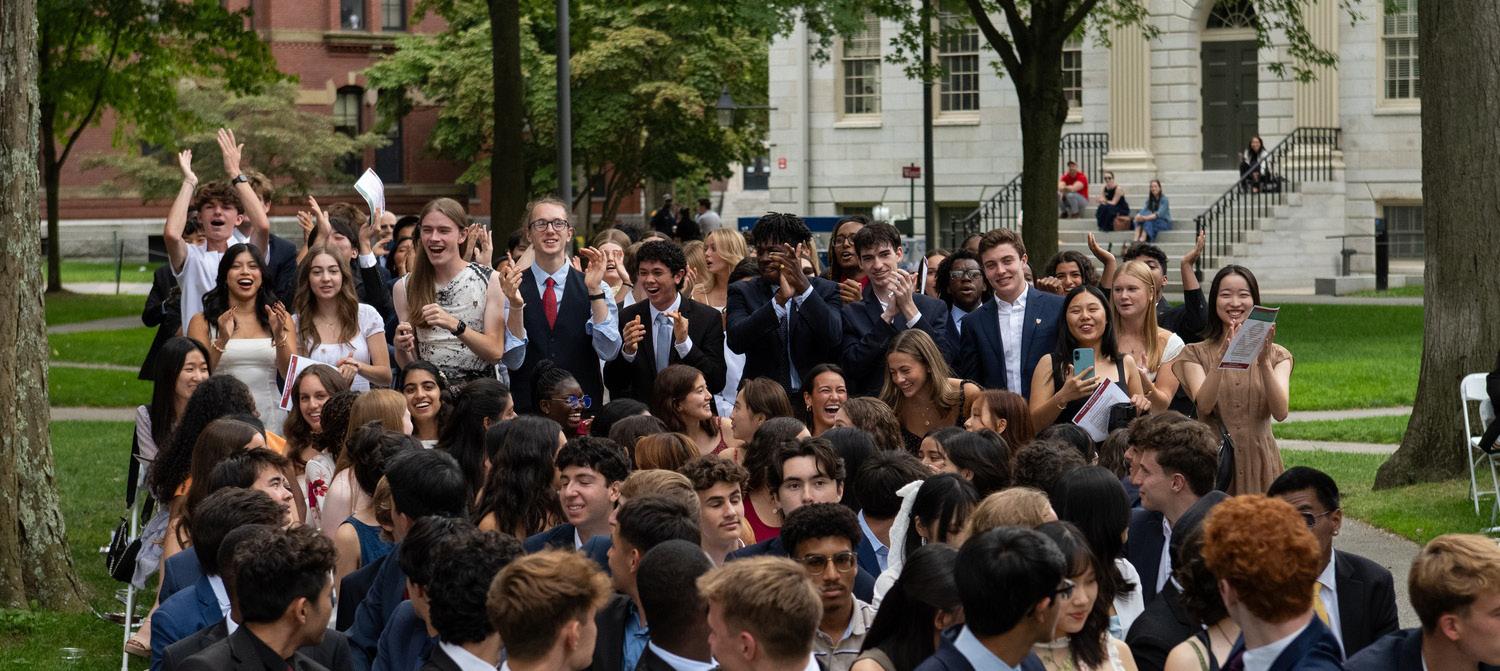
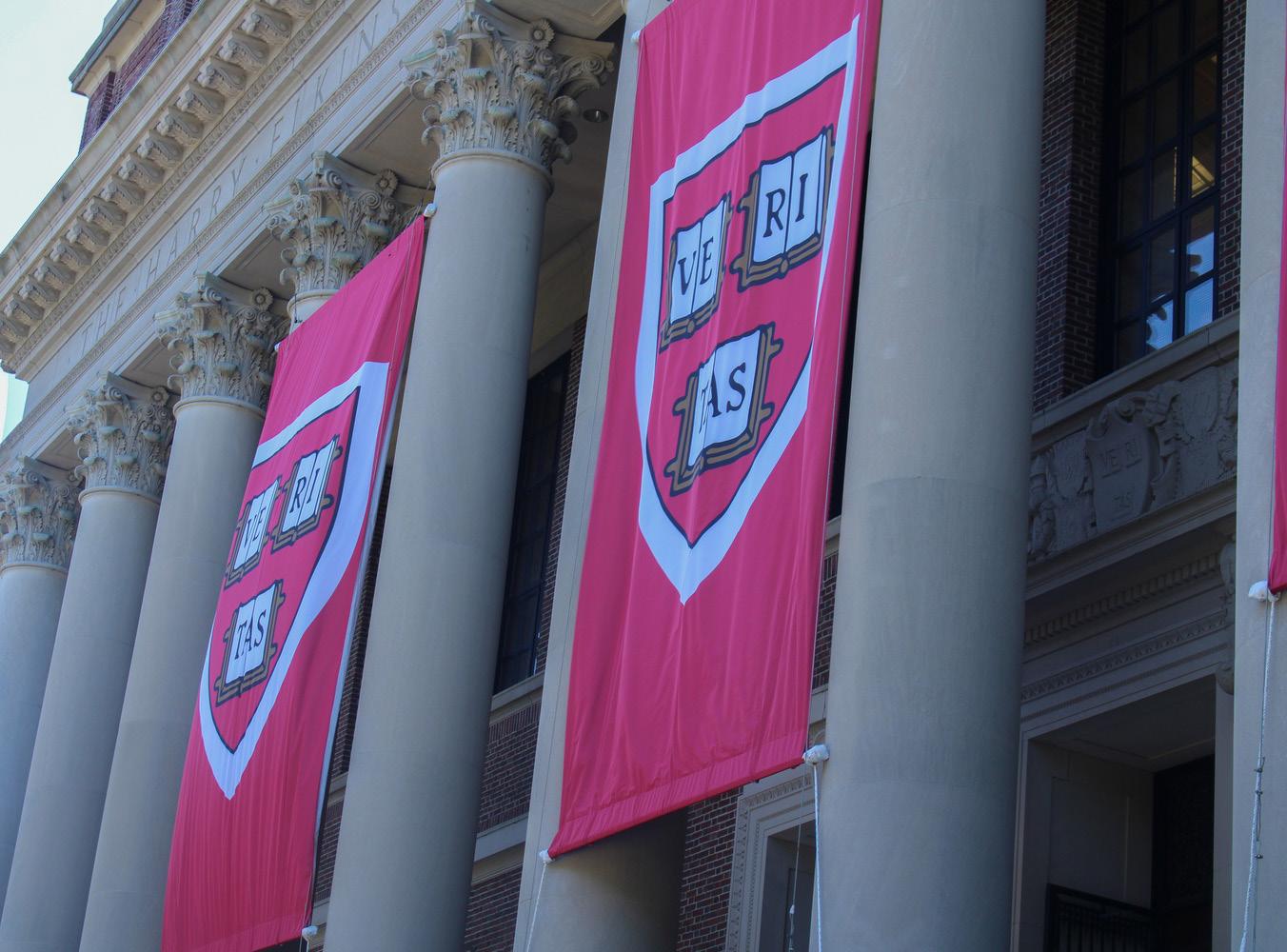
an appeals court, agencies are required to resume ordinary processing of funds that were halted by the freezes this spring.
The decision is a landmark victory for Harvard in its monthslong legal standoff against the Trump administration. But it also comes as Harvard quietly continues negotiation talks with the White House. In recent weeks, Harvard had reportedly agreed to commit $500 million toward workforce development initiatives in exchange for winning back the $2.7 billion in frozen grants and contracts.
But Burroughs’ ruling already restores the funding, potentially giving Harvard additional leverage in its talks with the White House. The order — and Harvard’s federal funding lawsuit — do not address the barrage of other actions that the Trump administration has slung at Har-
vard, including a string of investigations and repeated attempts to prevent its international students from studying in the U.S. In an email to Harvard affiliates hours after the ruling, University President Alan M. Garber ’76 praised the court’s decision as a defense of higher education’s core principles.
“This important decision affirms our First Amendment and procedural rights, upholds the principles of academic freedom, and validates our arguments in defense of critical scientific research and the core values of American higher education,” Garber wrote.
But Garber acknowledged continued uncertainty around the fate of Harvard’s federal funding, writing that the University “will continue to assess the implications of the opinion, monitor further legal developments, and
be mindful of the changing landscape in which we seek to fulfill our mission.”
The highly anticipated ruling followed requests from both Harvard and the federal government to settle the case through summary judgment, which allows a judge to decide based on the record rather than a full trial. Harvard had asked Burroughs to rule before a Sept. 3 federal deadline, after which the Trump administration could have argued it was impossible to restore the slashed funds. She issued her order with less than a day remaining.
Over the summer, the White House submitted more than 2,000 pages of documents relating to the freeze in an effort to justify the timing, and necessity, of the cuts. Shortly after, Burroughs heard arguments from lawyers for both Harvard and the Trump administration in a packed hear-
ing in a Boston courtroom.
At that hearing, she signaled skepticism of the government’s case, pressing Justice Department lawyer Michael K. Velchik ’12 to explain how cutting billions in research funding advanced the White House’s stated goal of combatting antisemitism. At one point, she called the White House’s rationale “a little bit mind-boggling.”
But Burroughs’ Wednesday ruling did not spare Harvard from criticism. Burroughs — who is Jewish — wrote that she believes Harvard responded only belatedly to antisemitic discrimination.
“It is clear, even based solely on Harvard’s own admissions, that Harvard has been plagued by antisemitism in recent years and could (and should) have done a better job of dealing with the issue,” she wrote — but add-
ed there was “little connection between the research affected by the grant terminations and antisemitism.”
And she objected to the idea that First Amendment rights should be curbed in the interest of fighting antisemitism.
“It is important to recognize and remember that if speech can be curtailed in the name of the Jewish people today, then just as easily the speech of the Jews (and anyone else) can be curtailed when the political winds change direction,” she wrote.
Burroughs was assigned to the funding case after Harvard’s attorneys argued it was related to an earlier lawsuit brought by the University’s chapter of the American Association of University Professors, which also challenged the funding review.
She proved to be a favorable draw for Harvard: over the past
decade on the bench, Burroughs, an Obama appointee, has overseen several high-profile cases involving the University. Most notably, she sided with Harvard in a 2019 challenge to its race-conscious admissions policy — a decision later overturned by the Supreme Court in 2023. The Trump administration tried to shift the case out of Burroughs’ hands to the Court of Federal Claims, whose 16-member bench has 10 Trump appointees. Burroughs largely rejected the maneuver, saying that Harvard’s First Amendment and Title VI arguments could not be appropriately resolved in federal claims court, though she agreed that she could not hear certain of Harvard’s APA claims.
Harvard faculty cheered a federal judge’s Wednesday order that restored billions of dollars in federal funding to the University, but several warned that the legal fight is far from over.
United States District Court Judge Allison D. Burroughs ruled that the Trump administration violated the Constitution by freezing $2.7 billion in federal funding to Harvard. Her order vacated the funding freezes and blocked the administration from reimposing unconstitutional conditions on the funding.
In the hours after the ruling was filed, faculty applauded the
decision as proof that the University had been unlawfully targeted by the Trump administration — and as evidence that Harvard could continue weathering the White House’s attacks.
“It’s an important victory,” Government and Sociology professor Theda R. Skocpol said. “It’s very important because it shows that an institution led by powerful people, connected to major
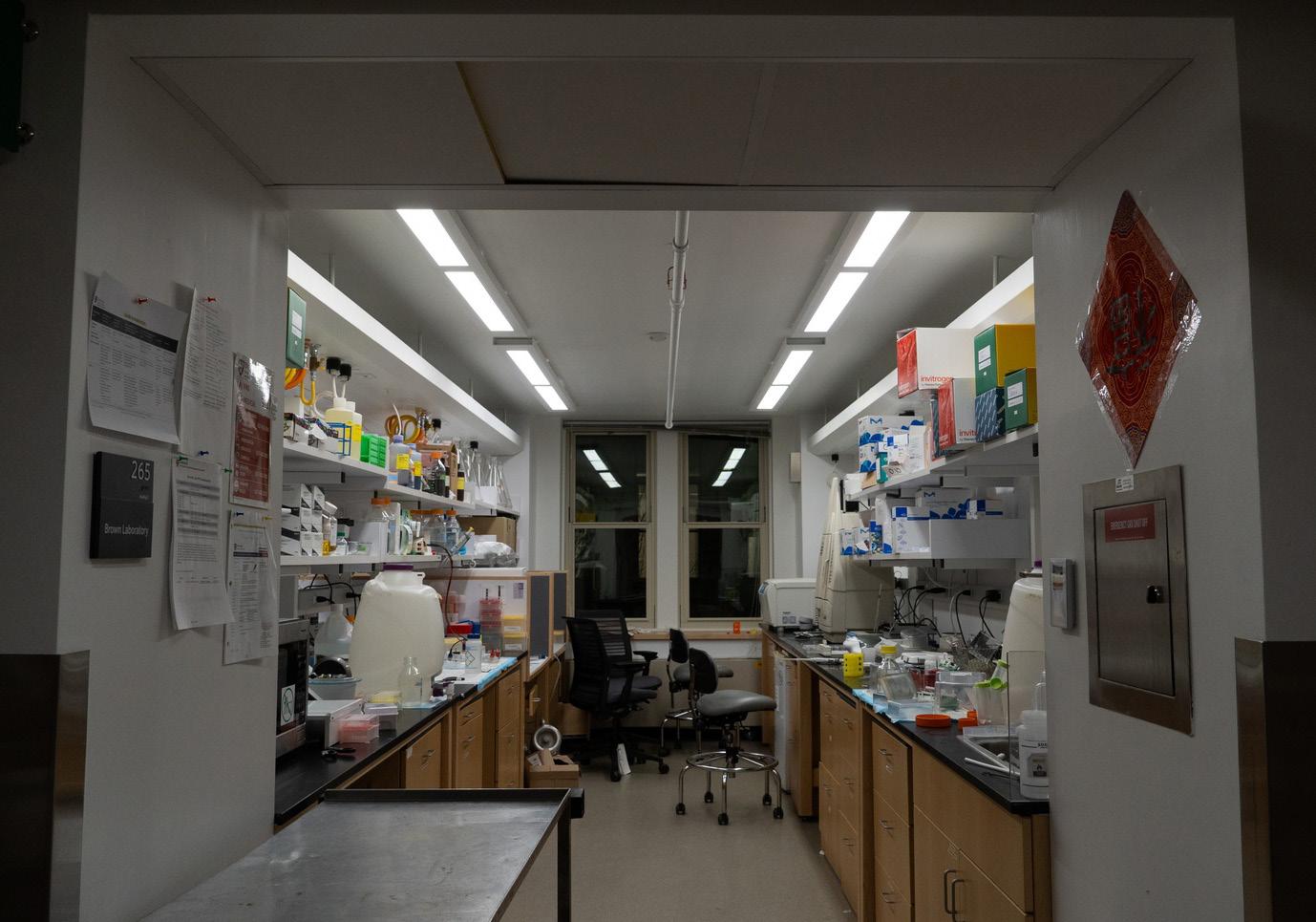
donors, and certainly not lacking in ambition, can stand up.”
Professors said they were especially glad that Burroughs had disputed the federal government’s claim that the funding cuts were a justified response to antisemitic incidents at Harvard. In her ruling, Burroughs wrote that there was “little connection between the research affected by the grant terminations and antisemitism.”
Still, faculty said the ruling would not be the final episode in Harvard’s protracted dispute with the White House. On Wednesday night, the Trump administration vowed to appeal Burroughs’ ruling, kickstarting a process that could escalate the case to the Supreme Court.
“I’m left with this sinking feeling that this is a kind of moral victory, but perhaps ultimately one that doesn’t really restore the University to where it should be,” Organismic and Evolutionary Biology Professor Peter R. Girguis said.
As the Trump administration prepares an appeal, the White House and Harvard can continue to negotiate an out of court settlement that would end the legal clash before higher courts have the chance to hear the case.
Rumors of an agreement have been circulating ever since the two parties restarted negotiations in June. For months now, the White House has been pushing hard for a settlement that could
cost Harvard upwards of $500 million. Harvard Medical School professor Philip A. Cole said he thought Burroughs’ ruling could give the University a better bargaining position in those talks.
“More of a sense of urgency for reaching a settlement — I consider that positive,” Cole said.
Burroughs’ ruling also marks a significant victory for Harvard’s chapter of the American Association of University Professors, a faculty group who filed suit challenging the Trump administration’s cuts. The group’s suit was joined with the University’s in April.
History professor Kirsten A. Weld, the president of Harvard’s AAUP chapter, called the ruling “a huge win for academic freedom.”
“It’s a huge win for the whole higher education sector in the United States,” she said. “It shows that when researchers and academics stand up to fight back against blatantly unlawful government attacks, they can win.”
Classics professor Richard F. Thomas, a member of the Harvard AAUP’s executive committee, said he was “delighted” by the decision. He highlighted that many faculty testimonies included in the AAUP’s filings were cited by Burroughs in her decision.
“It was a real ray of sunlight that came through when I saw the news,” Thomas said. “I was particularly proud of the role played
by the AAUP.” Despite the victory in court, the funding cuts have already had severe impacts on Harvard’s research ecosystem, forcing researchers to shelve projects and fundamentally alter their lab operations. The disruption has been particularly acute for faculty working with living specimens who could no longer sustain those projects without vital federal dollars.
“Some people would be able to pick up exactly where they left off. But for folks with labs where people have been let go, or animals euthanized, it’s going to be a lot harder,” History of Science professor Naomi Oreskes wrote. “There’s going to be lasting damage.”
Christoph Lange, a School of Public Health professor who said he lost hundreds of thousands of dollars in frozen federal funds, also warned the funding cuts and hiring freezes will have lasting effects on recruitment into the medical field.
“People don’t know what the future will bring,” said Christoph Lange, a School of Public Health professor who has lost hundreds of thousands of dollars in frozen federal funds. “Do they have a future in research? Do they have a future in academia?”
FUTURE FREEZES. The Trump administration still has plenty of options to put pressure on Harvard’s funds.
BY DHRUV T. PATEL, AVANI B. RAI, AND SAKETH SUNDAR CRIMSON STAFF WRITERS
Harvard won a milestone legal victory on Wednesday when a judge struck down the Trump administration’s freeze on $2.7 billion in federal funds — but government agencies still have options to keep federal dollars out of the University’s hands.
The White House vowed within hours of the ruling to file an appeal, and it may take weeks of court clashes — at least — before the fate of the frozen funds is decided. But legal experts said the administration could move separately to reduce the volume of new grants reaching Harvard through administrative or political channels, bypassing the courts entirely.
Most federal research grants, including those from the National Institutes of Health and National Science Foundation, are awarded competitively, with institutions from across the country — Ivy League and public alike — submitting proposals evaluated on merit.
That means grant reviewers have latitude to deprioritize Harvard in the process, not through formal policy but via informal discretion inside agencies. Because grant decisions involve subjective judgments, experts said such shifts are hard to detect and harder to contest, making them a likely path for the Trump administration to limit funding without incurring a legal fight.
Andrew F. Sellars, a law professor at Boston University, said federal agencies typically are not required to explain why a particular institution did not receive a grant, making it difficult to challenge or identify potential bias.
“It’s really hard in highly competitive grants to necessarily show that if Harvard was not picked that it was actually because Harvard was being disfavored,” he said. “Enforcing the idea that Harvard should be treated equally in these applications could be a real challenge.”
The Trump administration has already signaled a willingness to divert federal research funding away from Harvard. At a packed hearing in July, Department of Justice attorney Michael K. Velchik ’12 told Burroughs that the government had the authority to reallocate Harvard’s funding to other institutions more aligned with its priorities. He said the case was about “money” — not discrimination — and framed Harvard’s grants as discretionary.
And just hours after Burroughs issued her ruling, a White House spokesperson asserted that Harvard “remains ineligible for grants in the future” — a position first formalized in May directive from Education Secretary Linda E. McMahon, which barred the University from receiving new federal awards.
While Burroughs’ opinion prohibits the federal government from “refusing to award future grants, contracts, or other federal funding” to Harvard on unconstitutional grounds, it does not address informal efforts to sideline Harvard through discretionary or opaque grant decisions.
And those efforts, once difficult, may now be easier to carry out. An Aug. 7 executive order signed by President Donald Trump transferred authority over federal grant decisions to political appointees, instructing them not to “routinely defer” to career scientists or peer review panels.
The White House could also do exactly what Burroughs said it failed to do the first time to cut off future funding — follow the formal procedures under Title VI of the Civil Rights Act. Title VI authorizes agencies to cut funding if an institution is found to have discriminated, but only after giving notice of the alleged violation, conducting an investigation or hearing, and allowing the school a chance to respond.
In her Wednesday ruling, Burroughs faulted the government for skipping those steps and freezing Harvard’s grants without evidence or due process. Legal experts said that if the administration carried out a proper Title VI investigation, it could, at least in theory, lawfully withdraw Harvard’s funding.
“The administration could try again and go through those procedures,” said Thomas J. Healy, a law professor at Seton Hall University.
But Healy cautioned that Burroughs was likely to view the Department of Health and Human Services finding in June that Harvard violated Title VI, which was issued well after the funding cuts, as rushed and not the product of a full investigation — meaning the administration would need to build a stronger administrative record if it tried again.
“The problem is that the District Court has already concluded that the effort was essentially a sham to punish Harvard for its constitutionally protected expression,” he added.
Burroughs could respond by holding the administration or its lawyers in contempt of court if they continued to try to cut off grants in violation of her ruling.
But Stanley M. Brand — former general counsel for the House of Representatives — said such a rul-
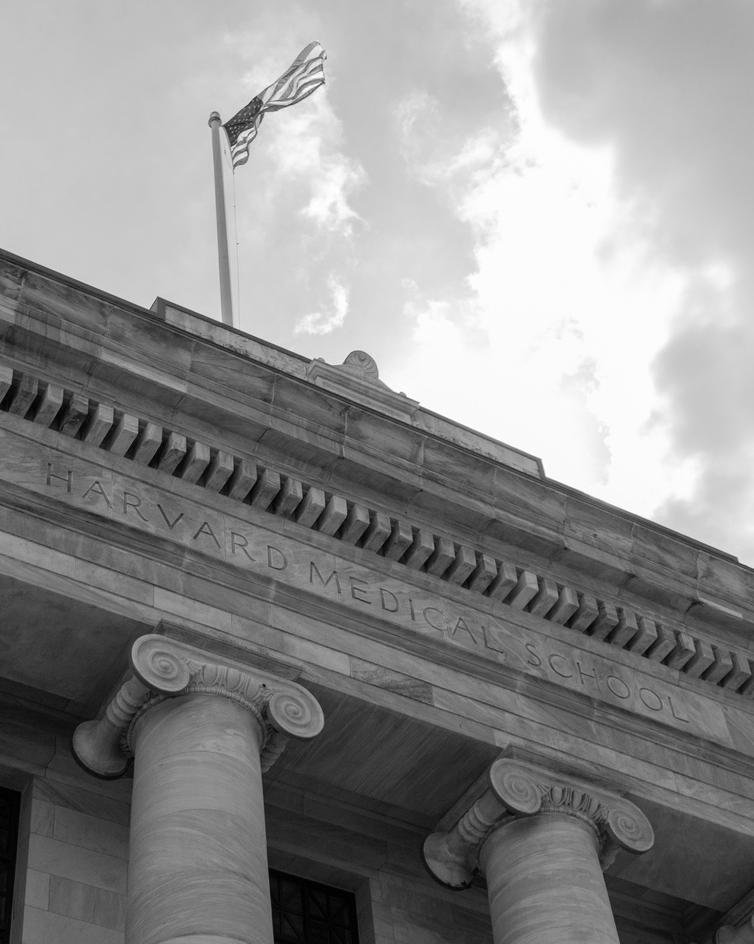
The RSDFSDF. BRIANA HOWARD PAGÁN — CRIMSON PHOTOGRAPHER
ing would likely carry little weight.
Since Trump returned to office in January, judges in numerous cases have threatened to hold the White House in contempt, but federal officials have not rushed to comply with their orders, Brand said.
“As Madison said, the courts are the least dangerous branch — they have neither sword nor purse,” he said. “What they have is the strength of their judgments
and the acceptability of those judgments.”
Trump has also tried to reduce research funding at the tap — proposing budget cuts at the NIH and other grantmaking agencies. That approach would not single out Harvard directly, but by shrinking the pool of available dollars, it could still significantly curtail the University’s share of federal support.
“There’s a world where Har-
vard gets its grants reinstated — insofar as they are Harvard grants — but grant money has generally been cut,” said Noah R. Feldman ’92, a Harvard Law School professor. “That will affect us more, just as a proportion, than it affects a lot of other universities, because we just have so many grants, because we have a lot of really good scientists.”
But moves from Trump to cut agency budgets have already faced resistance from congressional Republicans. The Trump administration tried to slash NIH funding in May, proposing a nearly $20 billion cut from the agency’s budget. But two days ago, House Republicans shot down the administration’s proposal, leaving NIH funding effectively unchanged.
White House spokesperson Liz Huston reiterated Trump’s accusations in a statement to The Crimson.
“Just as President Trump correctly predicted on the day of the hearing, this activist Obama-appointed judge was always going to rule in Harvard’s favor, regardless of the facts,” she said. “We will immediately move to appeal this egregious decision, and we are confident we will ultimately prevail in our efforts to hold Harvard accountable.” Huston did not respond to questions about where and when the administration intends to file its appeal. After Burroughs’ ruling, the White House has several legal paths for its appeal and all will likely involve a request for a stay on the Wednesday order, according to several legal experts. The White House can file a notice of appeal to the First Circuit Court of Appeals, where it is expected to ask for any emergency stay that would re-freeze Harvard’s funds while the case is pending. If that fails, it can press forward with a full appeal
in the First Circuit. Or, as it has done in similar disputes, the administration could bypass the appeals court altogether and seek emergency relief directly from the Supreme Court, asking the justices to block Burroughs’ order on the Court’s so-called “shadow docket.”
If the Trump administration pursues the former approach, Harvard’s legal victory on Wednesday appears secure — for now. Several legal experts said the First Circuit is unlikely to grant the Trump administration’s expected request to stay Burroughs’ ruling while the case is on appeal. Former Department of Health and Human Services general counsel Samuel R. Bagenstos said he doubted the First Circuit would disturb Burroughs’ decision.
“This is a really careful and well-reasoned opinion, and I don’t think the Court of Appeals will be persuaded that she got it wrong,” he said. In February, the First Circuit denied a similar request in a case brought by Democrat-led states after a Rhode Island dis -
trict judge blocked the administration from enforcing an Office of Management and Budget directive attempting to halt congressionally approved grants and loans. The appellate judges found the government failed to show it would be “irreparably injured” without a stay and that a pause was contrary to the public interest.
That case, like Harvard’s, centered on sweeping executive efforts to withhold funding without following standard procedures outlined under the Administrative Procedure Act. The First Circuit issued its ruling on the stay just 21 days after the lower court’s decision, indicating that the emergency motion route can move quickly — often within a week or two.
But a full appeal is a longer process. According to Harvard Law School professor Noah R. Feldman ‘92, the appeals could hear arguments later this fall — and issue a final ruling on the merits by December. That means that even if the administration pursues both tracks — an emergency motion and a full appeal — Harvard is likely to retain access to its research fund -
ing for at least the remainder of the year if the White House pursues the appeals circuit option. Feldman added that even if a stay were granted, it might not fully reinstate the freeze. The court could permit Harvard researchers to draw on current and future grants as well as apply for new grants while leaving past withheld funds in limbo.
“It wouldn’t be an absolute victory, but it would be a pretty good victory,” he said.
But the fight could also continue at the Supreme Court, which could leave the case on shaky ground. According to Feldman, a full appeal with the Supreme Court could take a year or more. But the White House could also try to speed up the timetable — either by appealing directly after losing in the First Circuit or by heading straight to the Supreme Court with an emergency application.
On the Supreme Court’s shadow docket, where individual justices can hear emergency appeals or forward them to the full court, injunctions are often stayed pending appeal within weeks, without full briefing or oral argument.
“Where the government has had some of the most success in the funding-related cases, has been in getting the Supreme Court to issue a stay of any sort of injunction pending appeal,” said Andrew F. Sellars, a law professor at Boston University.
“We’ve actually seen very few cases fully resolved.”
The Supreme Court’s emergency docket has already played a decisive role in related disputes. On June 16, U.S. District Judge William G. Young ’62 ordered the Trump administration to restore $3.8 billion in terminated National Institutes of Health grants for research on topics disfavored by the Trump administration, like race, LGBTQ health, and Covid-19 vaccines. The administration appealed directly to the Supreme Court on July 24.
Less than a month later, the justices issued a 5-4 ruling granting a partial stay, leaving some grants intact but allowing about $783 million to be cut as the case is processed in federal claims court.
The administration successfully argued that reinstating the terminated NIH grants would
cause irreparable harm to the White House because the grant funds cannot be recouped once spent by grantees.
Feldman said the Trump administration could attempt to similarly jump to the emergency docket in the Harvard case, asking the Supreme Court to lift Burroughs’ injunction and re-freeze the University’s funds while appeals proceed. Such an order would give Trump an immediate, symbolic victory, though Feldman said the government might ultimately have a stronger chance if the case proceeds through a full appellate briefing. Bagenstos said the Supreme Court may, in particular, may be more amenable to reviewing the Harvard case considering its conservative majority.
“This Supreme Court has been very solicitous of Donald Trump and his administration, and so they may well decide to get involved here, and they may well be asked to do so on an expedited basis,” he said.
EPSTEIN CIRCLE. Ghislaine Maxwell said former FAS Dean Henry Rosovsky received a “massage” through Epstein’s network.
BY DHRUV T. PATEL AND SAKETH SUNDAR CRIMSON STAFF WRITERS
Convicted sex trafficker Ghislaine Maxwell alleged that former Faculty of Arts and Sciences Dean Henry A. Rosovsky received a “massage” through disgraced billionaire and sex offender Jeffrey Epstein’s network, according to a transcript of a United States Department of Justice interview released on Aug. 22. In the two-day interview with Deputy Attorney General Todd Blanche in July, Maxwell said Rosovsky — an economist who twice served as Harvard’s acting president and died in 2022 — was among Epstein’s circle in the early 1990s and recounted seeing him at Epstein’s townhouse in New York.
“I saw him in a bathrobe at 71st Street, and he had received a massage, he told me,” Maxwell said.
Asked whether the masseuse was naked, Maxwell replied that she “wouldn’t have any idea.” She speculated that it was unlikely because of Rosovsky’s older age.
Federal prosecutors have said Epstein and Maxwell used the word “massage” as code for sexual encounters with the girls and young women they recruited. Epstein pled guilty in 2008 to Florida state charges of soliciting prostitution and soliciting prostitution with a minor, but died in prison in 2019 before he could be convicted on federal charges related to sex trafficking of minors.
Maxwell — a co-conspirator in Epstein’s sex ring — sat for the interview while serving a 20-year federal sentence for child sex trafficking. The DOJ held the interview as U.S. President Donald Trump came under fire for his association with Epstein and faced grow -
ing pressure over his administration’s handling of the Epstein case.
Maxwell’s credibility, however, remains in question. Federal prosecutors have accused her of lying under oath and she has faced perjury charges, with prosecutors saying she repeatedly misled courts to protect herself and Epstein.
Maxwell, who is seeking a presidential pardon, told Blanche she never saw Trump engage in wrongdoing with Epstein’s girls. Days after the interview, she was transferred to the Federal Prison Camp in Bryan, Texas, a minimum-security facility that houses only women, most of them serving time for nonviolent offenses and white-collar crimes.
The episode has been particularly fraught for Trump. On the campaign trail, he pledged to release Epstein-related files, but later backtracked, declaring the so-called “client list” a fiction created by “Obama, Crooked Hillary, Comey, Brennan, and the Losers and Criminals of the Biden Administration.”
Maxwell’s mention of Rosovsky adds a new twist to Harvard’s long and tangled relationship with Epstein, who has donated millions of dollars anonymously to the University.
In 1991, Epstein helped facilitate a $2 million donation from billionaire Leslie H. Wexner to fund the construction of Harvard Hillel’s Rosovsky Hall, named in the former dean’s honor, though Epstein did not contribute his own money. Rosovsky also frequented Epstein’s Cambridge office during his tenure at the helm of the FAS. Epstein hosted seminars on evolutionary biology on Harvard’s campus, which Rosovosky attended “a couple” of times before, he said, he “lost interest.”
Other Harvard figures have also been drawn into Epstein’s orbit. Harvard Law School professor Alan M. Dershowitz, who represented Epstein during his 2008 sex-crimes scene, has ac -
knowledged socializing with him but denied any misconduct.
In the interview, Maxwell said she believed Epstein and Dershowitz first met on Martha’s Vineyard through Lynn Forester de Rothschild. She recalled two encounters with Dershowitz in Epstein’s company — once with him and his wife on Epstein’s private island and another time at what she remembered as his Boston home.
“I actually remember that,” Maxwell said of seeing Dershowitz on the island. “And I remember, I think, going to his house in Boston.”
Asked directly whether she ever saw Dershowitz receive a massage or engage in misconduct, Maxwell said no.
“I don’t believe I ever even saw him in a bathrobe,” she said.
Dershowitz has previously acknowledged “very possibly” sending Epstein a birthday card in 2003, but denied knowing of Epstein’s crimes at the time and said he never “renewed a personal relationship with him” after representing him.
Blanche directly pressed Maxwell on her knowledge of Epstein’s relationship with figures at Harvard and at MIT. She said he was friendly with Harvard faculty including Biology and Mathematics professor Martin A. Nowak — who was temporarily sanctioned by the FAS for his extensive ties to Epstein — and the eminent evolutionary biologist Stephen Jay Gould. Both men may have attended dinners at Epstein’s house, Maxwell claimed.
Asked why Epstein cultivated ties to Harvard and MIT, she said “he really was profoundly interested in that area of science and in the brain.”
Several other prominent figures at the University have previously been implicated in Epstein’s network. Former University President Lawrence H. Summers had ties to Epstein in the early 2000s, including meetings in Boston after Epstein’s 2008 guilty plea. Asked about Summers,
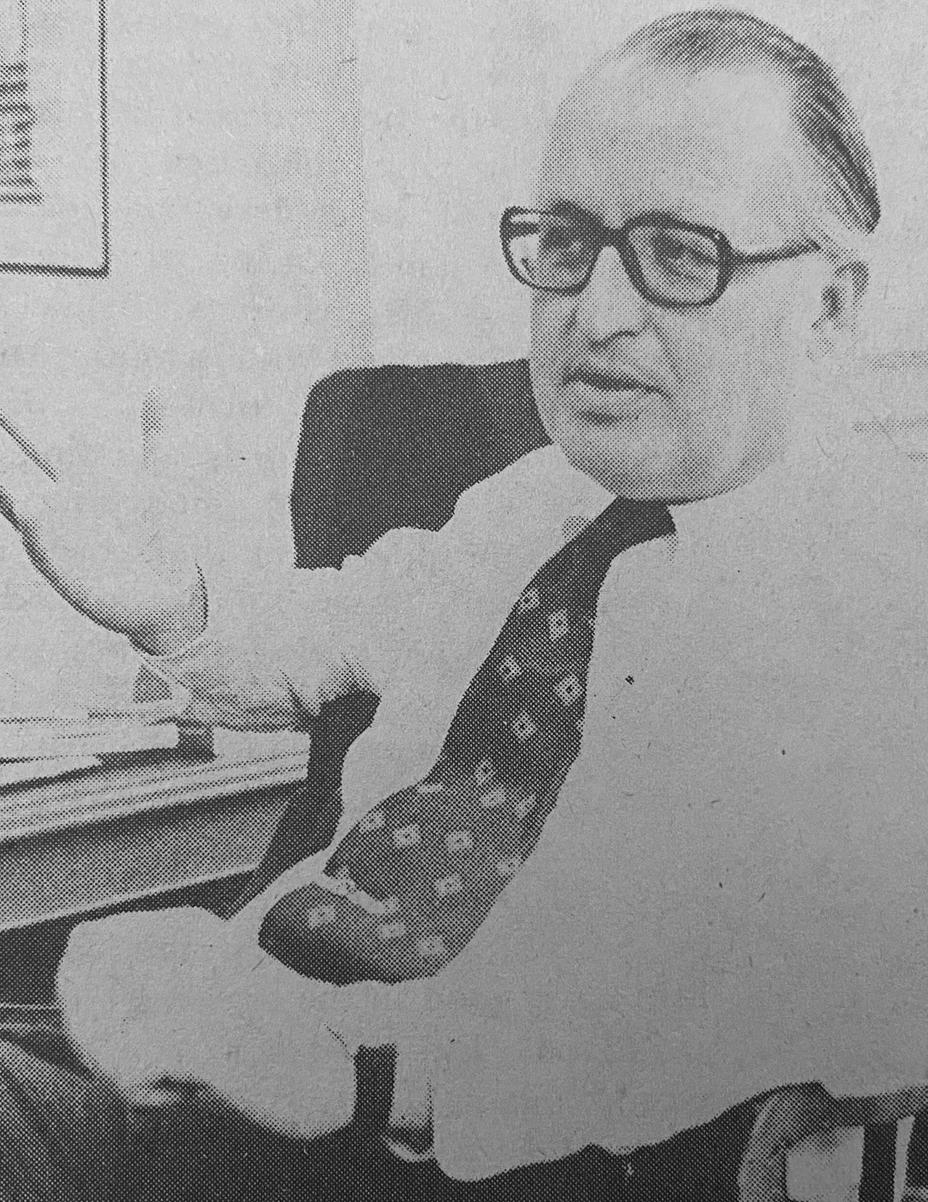
Maxwell claimed that he and Epstein were “friendly” but said she did not recall seeing Summers travel on Epstein’s plane. Trump has repeatedly invoked Summers as of late when pressed about his own ties to Epstein, calling the former Harvard president “best friends with Jeffrey Epstein” last month in the Oval Office.
Summers did not respond to a request for comment.
Harvard’s ties to Epstein extended beyond individuals. His largest single donation to the University — $6.5 million in 2003 — created the Program for Evolutionary Dynamics, run by Nowak, which was later shut down in 2021 after a University review revealed Epstein had been granted regular access to its offices. Maxwell said in the interview that Epstein’s ties to Harvard may have been facilitated by his client Leslie H. Wexner, the billionaire Harvard donor and former CEO of L Brands.
Harvard President Alan M. Garber ’76 called on affiliates to stand with the University as it fights the Trump administration in court in an address at Memorial Church Tuesday morning, warning that higher education will not survive without active support from its members.
“When confusion and hurry and a host of other calamities threaten to overwhelm them,” Garber said from the pulpit during Morning Prayers, “it’s
up to us, the beneficiaries of the greatness and endurance of institutions, to defend and protect them, to steady and ready them, so that they might continue to thrive.” Garber’s brief remarks — which follow in a tradition of presidential addresses on the first day of class — came just one day before a federal court is expected to rule in Harvard’s lawsuit against the Trump administration, which has frozen nearly $2.7 billion in federal funding and sought sweeping oversight of admissions, curriculum, and governance on campus. Though the court is likely to side with
Harvard, the Justice Department has indicated it will appeal — setting the stage for a protracted legal fight.
Harvard is also in settlement talks with federal officials to reinstate the funding without a court ruling.
The University is now considering a $500 million payment to lift the freeze — a figure first demanded by President Donald Trump and previously rejected in private by Garber.
But before the early morning churchgoers, Garber did not mention Trump, the pending court ruling, or the negotiations directly. Instead, allud-
ing only to “events outside our control” shaping a “challenging” year ahead, Garber framed his message as a call to action for the campus community.
“May this bring opportunities for us to affirm and fulfill the commitment to Veritas that unites and strengthens us as an institution and as a community,” he said.
Over the summer, the Trump administration intensified its pressure campaign against Harvard, levying new threats against the University’s accreditation, demanding records relating to misconduct on campus by international students, and for-
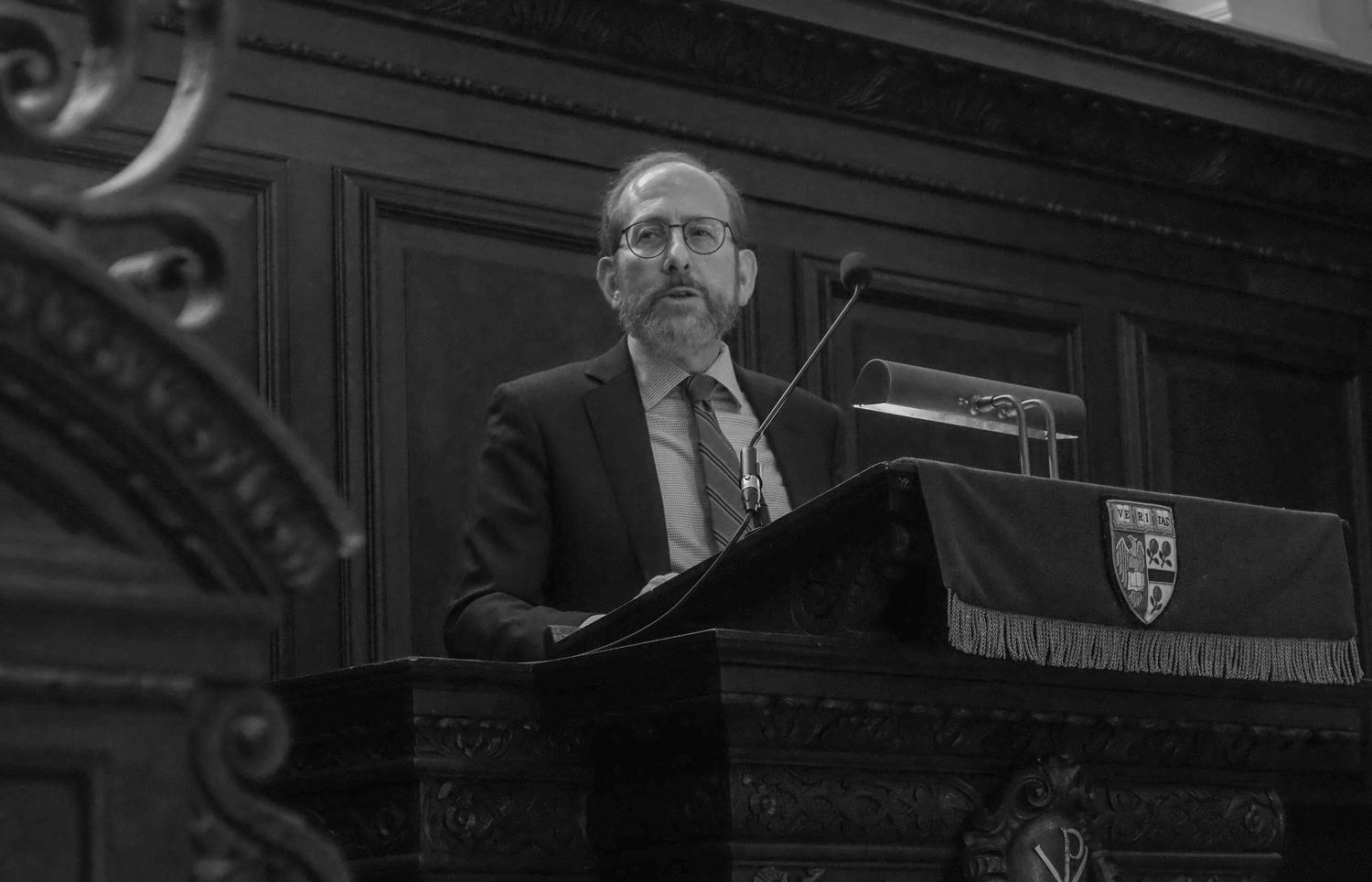
mally issuing a finding that Harvard violated Title VI. In his inaugural first day of classes address last fall, Garber used the same forum to acknowledge campus divisions and urge affiliates to “embrace each other” after a semester marked by pro-Palestine protests on campus. But this year, his tone shifted towards institutional preservation, casting universities as spaces where intellectual disagreement must be protected, not politicized.
“Though our efforts often lead to affirmation and agreement, they begin with confrontation and debate fueled by a shared desire for deeper and richer understanding,” he said.
Garber, who is Jewish, also said that his experience debating the meaning and application of the Torah alongside colleagues taught him the value of disagreement in pursuit of the truth.
“Academic institutions, like religious institutions, depend on our passion to seek truth,” he said.
Garber’s framing offered a quiet rebuttal to conservative critics in Washington who have long accused Harvard of lacking ideological diversity and suppressing conservative thought. While he did not engage those claims directly, he defended disagreement as a vital institutional norm.
“Institutions challenge us to resist our inclinations, to confront our assumptions, and to develop the capacity to explore different views with the seriousness they deserve,” Garber said.
“What do they need from us in return? They need our commitment,” he added.
dhruv.patel@thecrimson.com saketh.sundar@thecrimson.com
was passed last year.
Harvard will require students to attend hazing prevention trainings and compile a report on student groups involved in hazing incidents in response to a federal anti-hazing law passed last year.
The Stop Campus Hazing Act, which passed Congress with bipartisan support in Congress and was signed into law by former President Joe Biden in December, requires universities that receive federal financial aid to implement “research-informed” prevention programs and publish reports on student organizations’ violation of anti-hazing policies. The new law, which amends a section of the Clery Act, also requires universities to adopt policies that outline how to report hazing incidents and describe how incidents will be investigated.
Harvard College associate dean of student engagement Jason R. Meier said in an interview that the University has been working to create consistent policies and programs across all twelve of its schools, including hosting mandatory hazing prevention training for all student group leaders. Student leaders in the College were required to attend training sessions on Tuesday and Wednesday. In line with the new law, Harvard will now publish a report that names all student organizations found to have violated hazing policies between July 2025 and December 2025. The report will include the date and nature

of hazing incidents, as well as the findings of Harvard’s subsequent investigations. Meier said it will be publicly available in January 2026.
Harvard’s policies previously included a procedure for reporting hazing incidents in compliance with Massachusetts hazing law, but in response to the federal law, the University created a new hazing prevention website in June with educational resources and an anonymous hazing reporting form.
Meier said that students have multiple avenues to report hazing incidents, including through the new hazing website, the Office of Academic Integrity and Student Conduct, the Office of Student Engagement, and through resident deans and proctors. Many Harvard student groups, from athletics to pre-professional clubs, have long-held initiation traditions. But many
would not qualify as hazing, a higher legal threshold that considers whether an activity is likely to cause unreasonable risk of physical or psychological injury.
The University shares all reports of hazing with the Harvard University Police Department to determine if the incident meets the definition of hazing, according to Meier.
“Not all hazing activities are going to be in violation of the law, and if someone reports something that is creating a really dangerous atmosphere but doesn’t rise to that level, our hope is to work with the org and to maybe help them adapt their own processes so that the process is safer,” Meier said. “The hope is to adjust the process and to solve the problem, as opposed to punish.”
If the threshold for hazing is met and found to be in violation of the law, Massachusetts state law sets a fine of up to 3,000 dol-
lars, imprisonment for up to one year, or both. The Stop Campus Hazing Act did not codify additional criminal penalties for hazing.
Kyra E. Richardson ’28, who attended an anti-hazing training as a social chair for the Harvard Outing Club and a member of several other student groups, said that she did not expect her clubs would reconsider any of their traditions, but they might revisit how traditions are presented to emphasize that new members do not have to participate.
“The training will cause my clubs to have conversations about how we frame initiation processes for our new members so that they are completely aware of their autonomy to make whichever decision feels best for them,” Richardson wrote in a text message. She added later that she was not speaking on behalf of HOC or any other organization.
his tenure denial.
Former Harvard Business School associate professor Benjamin G. Edelman ’02, who sued Harvard in 2023 after he was denied tenure, alleged on Tuesday that the University had failed to preserve evidence in the case. When Edelman’s bid for tenure was shot down in 2018, he suspected that the denial was related to a series of emails he sent in 2014 demanding a refund for a $4 overcharge at Sichuan Garden, a Chinese restaurant in Brookline. Edelman’s emails to the restaurant’s owner went viral at the time — and made him the subject of both internet infamy and an HBS investigation into his conduct. In his 2023 lawsuit, filed in Suffolk County Superior Court, Edelman alleged that HBS had misrepresented his actions and illegitimately used the results of the investigation to disqualify him for tenure. In a document shared with The Crimson on Tuesday, Edelman claimed that Harvard had already anticipated that he was likely to sue if denied tenure.
A lawsuit would require the
University to keep any materials that were likely to become relevant during the discovery process. But after viewing internal communications that surfaced in discovery, Edelman wrote that he believes HBS officials deleted emails and scrubbed a device containing information about his case.
A spokesperson for HBS declined to comment, and spokespeople for the University did not respond to a request for comment.
From the start, Edelman’s tenure case was colored by the incident at Sichuan Garden. In 2015, an inquiry by a Faculty Review Board into Edelman’s conduct resulted in a two-year delay to the start of his tenure review.
Then, when Edelman — who had joined HBS on the tenure track in 2007 — went up for tenure in 2017, HBS reconvened the Faculty Review Board. This time, the school expanded the board’s purview to include conduct outside the scope of its initial review, according to Edelman’s lawsuit.
The board, led by HBS professor Amy C. Edmondson ’81, interviewed Edelman’s colleagues and compiled a string of 12 complaints about his conduct — which Edelman claims turned a faculty vote against him, ultimately leading to
On Tuesday, Edelman alleged that HBS’s then-senior associate dean for faculty development Paul M. Healy “completely wiped” an iPad containing notes and relevant documents regarding Edelman’s promotion process in July 2018. The deletions occurred eight months after they had already discussed a possible legal escalation, Edelman alleged.
Edelman also claimed that Edmondson, the FRB chair, had repeatedly deleted emails related to the review or his tenure denial, which later surfaced during discovery. According to Edelman, Edmondson produced nine messages that had been sent to the “Purges” folder in her Outlook email.
The folder can store messages indefinitely on Microsoft’s servers, even after they have been deleted and then wiped again from the “Recoverable Items” folder, if they are subject to a litigation hold. Messages in “Purges” are not accessible to end users.
Edelman alleged on Tuesday that Healy, Edmondson, and thenHBS Dean Nitin Nohria were well aware of the potential for a lawsuit when they allegedly deleted the documents.
“Litigation was reasonably an-
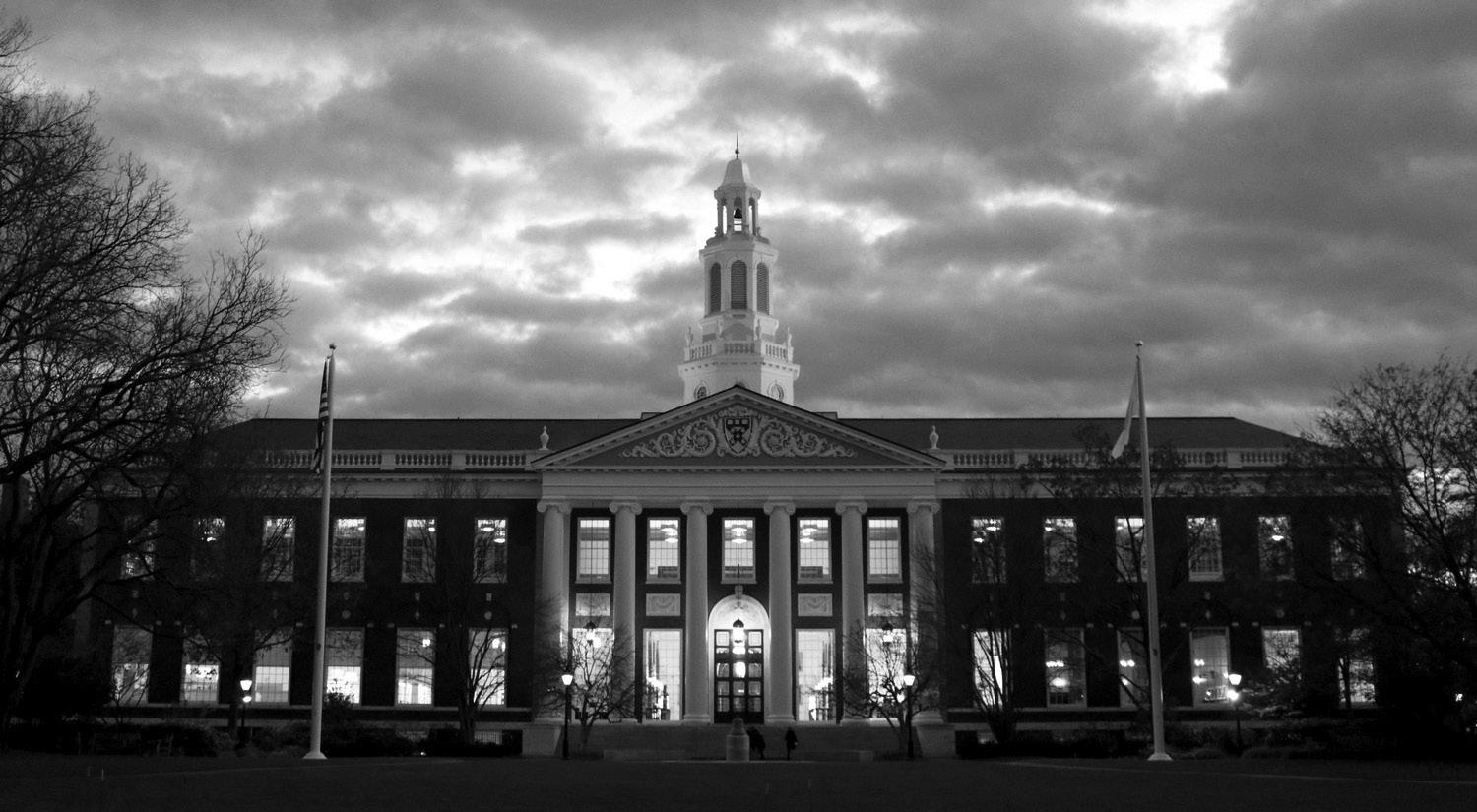
ticipated by 2015, and documents show HBS leaders repeatedly acknowledged this risk,” Edelman wrote.
Edelman and Healy met in April 2018 to discuss the FRB process, and Healy testified in a deposition that at the time of the meeting he already “assumed” that Edelman “might consider litigation,” according to Edelman’s Tuesday statement.
Edelman added that Healy wrote to Nohria in May 2018 that it “sounds like Ben is preparing to go to the next level.”
“These sources leave no doubt that not only was it reasonable to anticipate litigation, but HBS leaders actually anticipated litigation and discussed it repeatedly, both with me and on their own,” Edelman wrote.
In his Tuesday statement, Edelman also alleged that HBS executive dean for administration Angela Q. Crispi repeatedly misquoted him during his promotion process to paint him in a negative light. He claimed that Crispi resented him over a dispute that took place between 2013 and 2015, in which Edelman fought against a plan to install smaller projector screens in HBS classrooms.
Citing statements made by Crispi during her deposition, Edelman alleged that she presented her recollections of interactions with Edelman as verbatim quotes and urged the Faculty Review Board to insert them into its 2017 report.
Harvard moved to dismiss Edelman’s lawsuit in March 2023, one month after it was filed. But the judge overseeing the case sustained all three counts of Edelman’s complaint in March 2024, noting that Harvard may have breached its contract with Edelman if his allegations were true. Since then, the University has produced more than 23,000 pages worth of documents for Edelman to review.
Edelman and Harvard have requested a judgment in the case before the end of April 2026.
“I am interested to see how the new policies will actually affect student teams and clubs and whether anything will change regarding what faculty see and report,” Richardson wrote.
Ben U. Davis ’27, vice president of the Harvard Half-Asian People’s Association, wrote in a text that he felt the training did not fully clarify the “distinction between traditions and hazing.” Davis, who is a resident of Kirkland House, also wrote that he worried one House tradition — in which members march around while a band plays at the start of the semester — could be classified as hazing.
“The training, to me, made it seem like even things like this could be seen as hazing and that’s not necessarily something I subscribe to,” Davis wrote.
While Harvard’s hazing policies impact all undergraduate and graduate student activi-
ties, some groups remain outside their scopes. Harvard cannot directly regulate or punish final clubs — which have historically been implicated in hazing incidents — because they are not recognized by the University. However, Meier said that students in final clubs can be found responsible on an individual basis if they are implicated in reports of hazing.
“If we get a report that ‘an individual in a final club is hazing someone and here are the activities,’ you can bring them to the Administrative Board as an individual,” Meier said. “So we may not be able to hold a final club accountable, but all students, regardless of affiliation, abide by the rules in the College handbook.”
Sanjana Jain ’27, vice president of professional development for Harvard Undergraduate Global Research and Consulting Group, wrote that while GRC did not have an “intense” initiation process, the training influenced her thoughts on how to plan club events in a
“The
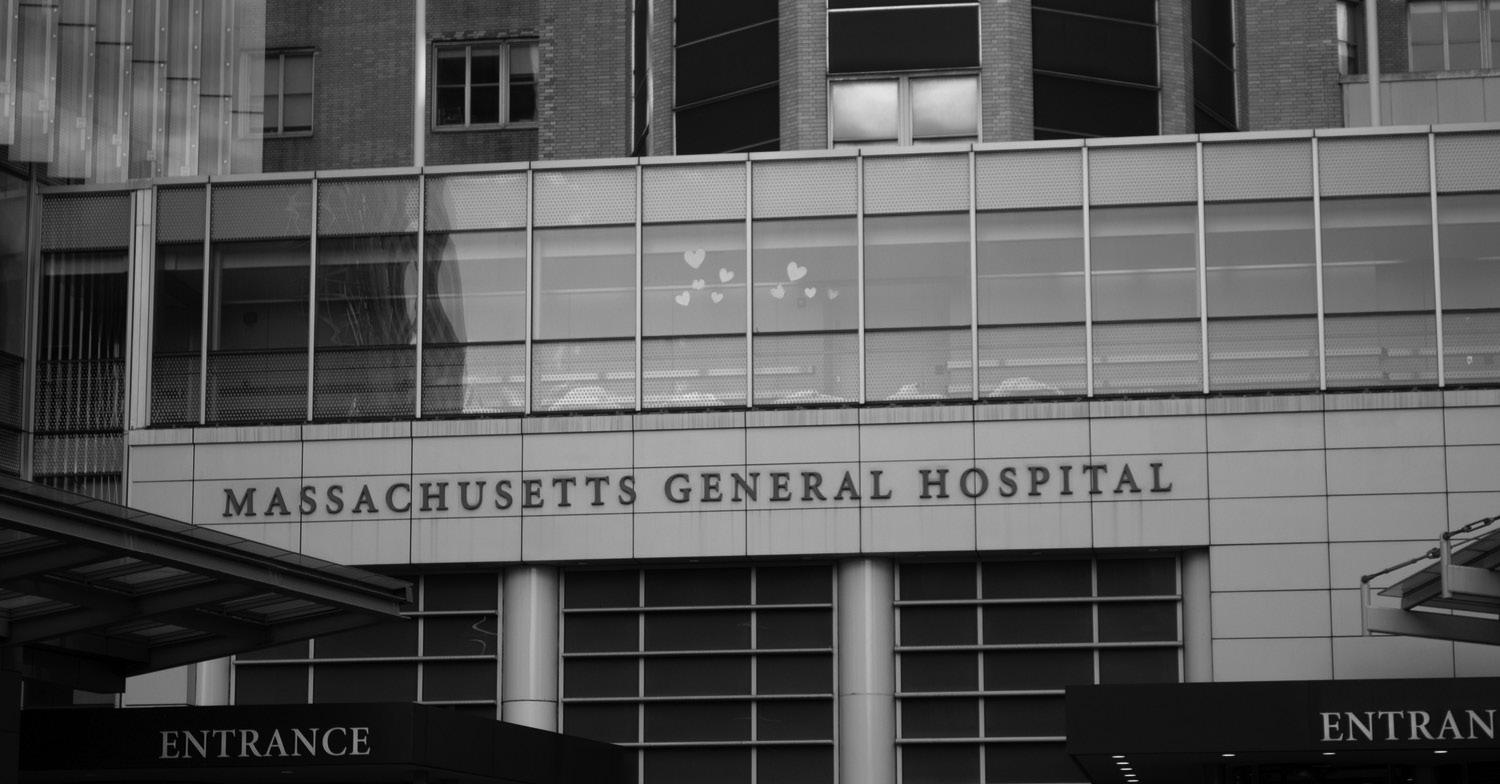
Former Harvard Medical School professor Curtis L. Cetrulo was sued for medical malpractice in July by two transgender patients who allege their phalloplasties were botched at Massachusetts General Hospital.
The plaintiffs, who filed separate suits anonymously, both reported complications after Cetrulo performed surgeries in 2021 and 2022 to construct their penises using abdominal tissue. They argue the procedures, performed as part of gender affirming care, were too experimental and that Cetrulo had not informed them of the possible risks.
Both patients said they experienced severe pain, permanent scarring, disfigurement, and disability, and had to undergo additional surgeries. One patient also alleges he had to have his penis removed altogether.
They have requested a jury trial and demanded financial compensation for pain and suffering experienced as a result of the surgeries.
Cetrulo, who was a professor at HMS from 2015 to 2023, is a well-known plastic surgeon and led the MGH team that performed the country’s first successful penis transplant. He was the clinical director of reconstructive transplantation service at MGH and an associate profes-
sor at HMS before he left in 2023 to join Cedars Sinai as a professor and surgeon. He did not respond to multiple requests for comment for this article.
MGH is also named as a defendant for retaining Cetrulo. A spokesperson for Mass General Brigham, which owns MGH, wrote that “no experimental gender-affirming surgeries have ever been performed in our program.”
“We strive to ensure patients are fully informed about risks and complications before procedures, empowering them to make the best decisions for their treatment,” they wrote. “Mass General Brigham’s transgender surgery program has extensive expertise in performing advanced gender-affirming surgery and uses the latest medical technology to ensure optimal outcomes.”
Phalloplasties, which are performed on patients who have experienced trauma or cancer in addition to transgender men, have become more common in the last decade. But unlike the procedures at the center of the suit against Cetrulo, most phalloplasties use tissue from the forearm instead of the abdomen. The plaintiffs allege the procedures caused them significant mental and emotional distress, including depression and anxiety as a direct result of the defendant’s “negligent conduct.”
BY SYLVIA A. LANGER
Last month, Harvard decided to evict the Harvard College Women’s Center from its previous home under Canaday Hall, the latest in a series of disappointing decisions in which the University decided to prioritize its image over its students.
I worked for the Women’s Center last year. I witnessed students rally around apolitical, uplifting events like tote bag painting and fireside chats with professors. You can imagine my surprise when I learned that Harvard had apparently shut down the center, not in a message from my supervisors, but when the College quietly dismantled the center’s website and removed their designated office space.
Alongside the Women’s Center, the Office for BGLTQ Student Life and foundation for Intercultural and Race Relations were similarly affected amid mounting pressure from the Trump administration. Harvard replaced them with a new “Office of Culture and Community,” whose website notably lacks mentions of diversity, equity, and inclusion.
While the move might sound like bureaucratic restructuring or a meaningless name change, it reveals an unspoken yet potent truth: Harvard couldn’t care less about its own students.
To many, DEI is a dirty word. But behind its politicization, spaces like the Women’s Center served as lifelines and essential forums for expression for many students. In my year with the Women’s Center, I attended a career development seminar with female doctors. I volunteered at a menstrual equity event that provided period products to any who stopped by. I hosted a community building event highlighting women’s history at Harvard.
The new Office of Culture and Community displays vanishingly few mentions of race, gender, or sexuality anywhere on its website. The offices that it is replacing were designed to support students in navigating a system that was never designed for them. How can an office that can’t talk about gender or sexuality support female or LGBTQ students? How can an office that can’t even say the word race support students of color?
More importantly, why would the College purge its DEI offices without engaging the students who not only benefited from these spaces, but also committed great time and energy to run them?
This disconnect isn’t new. From admissions criteria to grading policies to campus protests, administrators have long been forced to weigh their own compelling interests against those of the student body. But recently, Harvard’s administrators seem to simply disregard the latter entirely.
In just the last few months, the University oust-
ed more than 800 workers from the Harvard Graduate Students Union and took down a “Black Lives Matter” banner hung by two professors in their office windows. And Harvard has spent the last several years cracking down on student protest following demonstrations against the war in Gaza.
These actions send a clear message: Harvard cares more about its institution’s financial priorities than intellectual discourse, and more about its reputation amongst high-power stakeholders than its own students. Students have a right to protest and a right to feel safe and represented in the Harvard community.
Not only will this restructuring harm the student body, it will only create more problems for the administration as well. By refusing to provide its students with transparent communication and open dialogue, Harvard paves the pathway to even stronger resistance. If students are not given a space to provide their own perspectives and air their grievances with the administration, they will demand it — by any means necessary.
Consider the takeover of University Hall in 1969. After months of protest against Harvard’s involvement in the Vietnam War and an unwillingness of the administration to collaborate with students, violence ensued. Protestors marched on then-University President Nathan M. Pusey’s residence, tacking a list of demands to the door. The following afternoon, demonstrators stormed University Hall, forcing out administrators and grabbing files.
In response, Harvard shut down the Yard and called the police. Officers beat and clubbed demonstrators. Students were tried and found guilty of criminal trespassing. It was only after violent protest, student arrests, and bloodshed that Harvard eventually made minor concessions to the demonstrators, demoting ROTC to extracurricular status and involving students in the appointment of Afro-American studies faculty.
History shows us that a hostile environment will not suppress student voices, it will only amplify them. What will it take — and what harm will ensue — before Harvard finally listens?
The existence of the Women’s Center was antithetical to the Trump administration. Why? Because, to Trump, with compliance comes conformity. Only ideas that align with the politics of the federal government will be tolerated. It seems that Harvard has already adopted a similar plan of action. Disrupting unions, destroying spaces of hope and resistance, forcing suppression – all while hiding behind obscure emails, vague letters, and quiet restructurings.
As they shutter diversity offices and enact strict protest policies, the administration attempts to find the mysterious reason why students feel uncomfortable voicing their beliefs on campus. The space left under Canaday Hall may no longer be the Women’s Center, but its emptiness should serve as a warning sign of Harvard’s dangerous trend towards quiet acquiescence and against students.
–Sylvia A. Langer ’28, a Crimson Editorial editor, lives in Currier House.
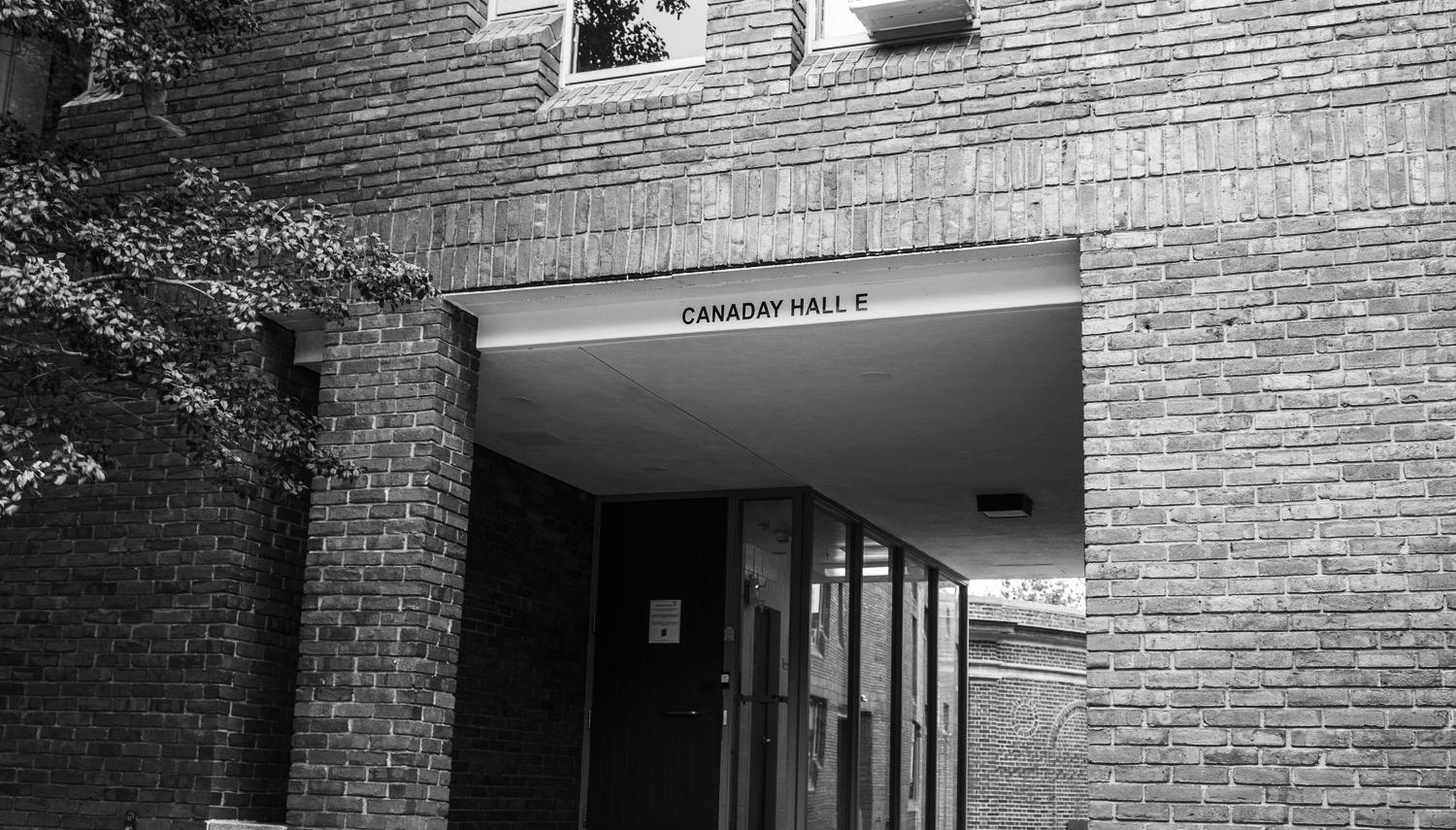
BY ANNUSHKA AGARWAL
Attending a humanities seminar at Harvard is a bit like playing Mafia. Everyone sits around a table, lies with reckless abandon, and evades eye contact for about an hour. Only in seminar, the deception is much more obvious than in Mafia. There’s the relentless ambiguity: “I think the scene destabilizes the binary between interiority and exteriority in the text.” The arcane references to books not assigned in the class: “Have we considered that the author is playing upon the Hegelian Dialectic?” And, of course, the contrived yet incontrovertible anecdote: “Tolstoy’s work really spoke to me as a child of divorce who was raised in Catholic school.”
Why don’t students stop pretending and just read the book? Magazine writers consider the under-read Harvard student a delicious curiosity. They attribute our reading difficulties to a range of cultural phenomena — smartphones, shrinking high school syllabi, the professionalization of higher education.
I have a different diagnosis: students don’t read because they don’t have to. A typical humanities course assigns a few papers and maybe an end-of-semester exam. Participation grades are generous. Instructors rarely call upon students randomly. Why read when there are a dozen other demands on one’s time?
Our current incentive system discourages reading, and the best way to change student behavior is to test students more regularly. We could start each humanities lecture with a
five-minute quiz, asking basic factual questions about the reading: “Which of these arguments was not made in the text?” “What is the name of the main character’s wife?” “Was she still alive at the end of the story?”
Some students might refuse to read and fail the quizzes. But if there is one thing that unites Harvard’s undergraduates, it is an unnatural sensitivity to failure. We go to great lengths to avoid an A-minus, even when it matters little. This University selects for perfectionists. That is why, when students are forced to read, they usually do. History 23: “Immigration Law,” has short quizzes on reading material at the start of each lecture. According to the Q Guide — a course evaluation system — almost half of students spend 6-8 hours a week on the course, a figure above the department average. As one

student succinctly explains, “The quizzes are annoying, but they’re not too bad and actually do make you do the readings.”
I think part of the reluctance about testing comes from a hopeful view of education: students should read books because they are curious, not because they want to do well on a test. From this perspective, a percentage score degrades the process of learning, making school a game of optimization rather than a place for intellectual creativity. One flaw with this argument is that Harvard is already a game of optimization. Students carefully allot their time to professional clubs, corporate recruiting processes, and courses outside the humanities, which are more likely to have exams or regular problem sets. This culture might be regrettable, but it’s here to stay. Humanities classes need to begin punishing those who don’t read — as artificial as these punishments might be — in order to compete for students’ time.
A more glaring problem is that students aren’t living up to the ideals of self-directed learning. While plenty of students are curious and want to read more, there’s a difference between motivation in the abstract and at the moment of decision.
Wanting to be a person who reads is different from actually reading. The purpose of testing, or deadlines, or an attendance policy, is to give students the structure they need to make the decisions they want.
It’s a little paternalistic, but everything about an American university is a little paternalistic. We can make ethical judgments about why students have difficulty committing to their coursework, or we can begin rewarding the kind of behavior we expect.
This is a philosophy we accept in many other areas of higher education. Many law professors cold-call their students with questions about assigned cases, not-so-gently nudging them to pick up a book. A typical undergraduate math course has a problem set due every week or two: nobody assumes students will attend every topology lecture and absorb the relevant concepts out of sheer love for mathematics.
By and large, problem sets are effective in encouraging students to put in the work – about ten hours per math course per week, according to course reviews. It is only in the humanities that we assume undergraduate students’ intrinsic motivation will be enough to keep them afloat. Testing isn’t the enemy of intellectual curiosity. It’s an ally of convenience — an invitation to stop hoodwinking our peers on a weekly basis and hit the stacks instead.
–Annushka Agarwal ‘27, a Crimson Editorial Editor, is a double concentrator in History and Mathematics in Kirkland House.
BY THE CRIMSON EDITORIAL BOARD
After a dark few months for our University and our country, a glimmer of hope has emerged.
Yesterday, a federal judge ruled in favor of Harvard in its lawsuit against the Trump administration for cancelling $2.6 billion worth of federal grants.
The decision marks a new phase in the fight against authoritarianism in America. If the rest of civil society, from universities to law firms to everyday people, learn one thing this week, let it be this: Resistance is possible, necessary, and — most importantly — it can work.
Harvard wasn’t the first institution to face a federal shakedown. In the early months of the second Trump administration, Columbia University confronted fire from Washington and accepted a host of reforms seemingly handed down from the White House. Many law firms, facing pressure over factors including associations with clients adversarial to Trump and firmwide DEI policies, also bent the knee. The message was clear: Get in line.
In April, Harvard was asked to follow suit. That month, the University received a letter from the Trump administration demanding ideological oversight of the students Harvard admits and the faculty it hires to teach — all under the pretext of protecting Jewish students. The University made the only choice consistent with its commitment to academic freedom, but it came with a multi-billion dollar price tag. Since then, matters only worsened. From President Trump’s firing of the Bureau of Labor Statistics commissioner after the agency released unfavorable job numbers, to his apparent attacks on the independence of the federal reserve, the White House continues to threaten core pillars of American life. Universities haven’t been exempt either. Besides Columbia, Brown University recently agreed to pay $50 million to aid workforce development in the state, apparently to avoid “government intrusion.”
Against that backdrop, the ruling in Harvard’s lawsuit provides a welcome reminder that universities don’t have to sacrifice their values in service of their research. Of course, there will be more letters filled with infeasible or unconstitutional demands. But now, there’s a precedent for how to fight back. Still, Harvard’s own fight is very much ongoing.
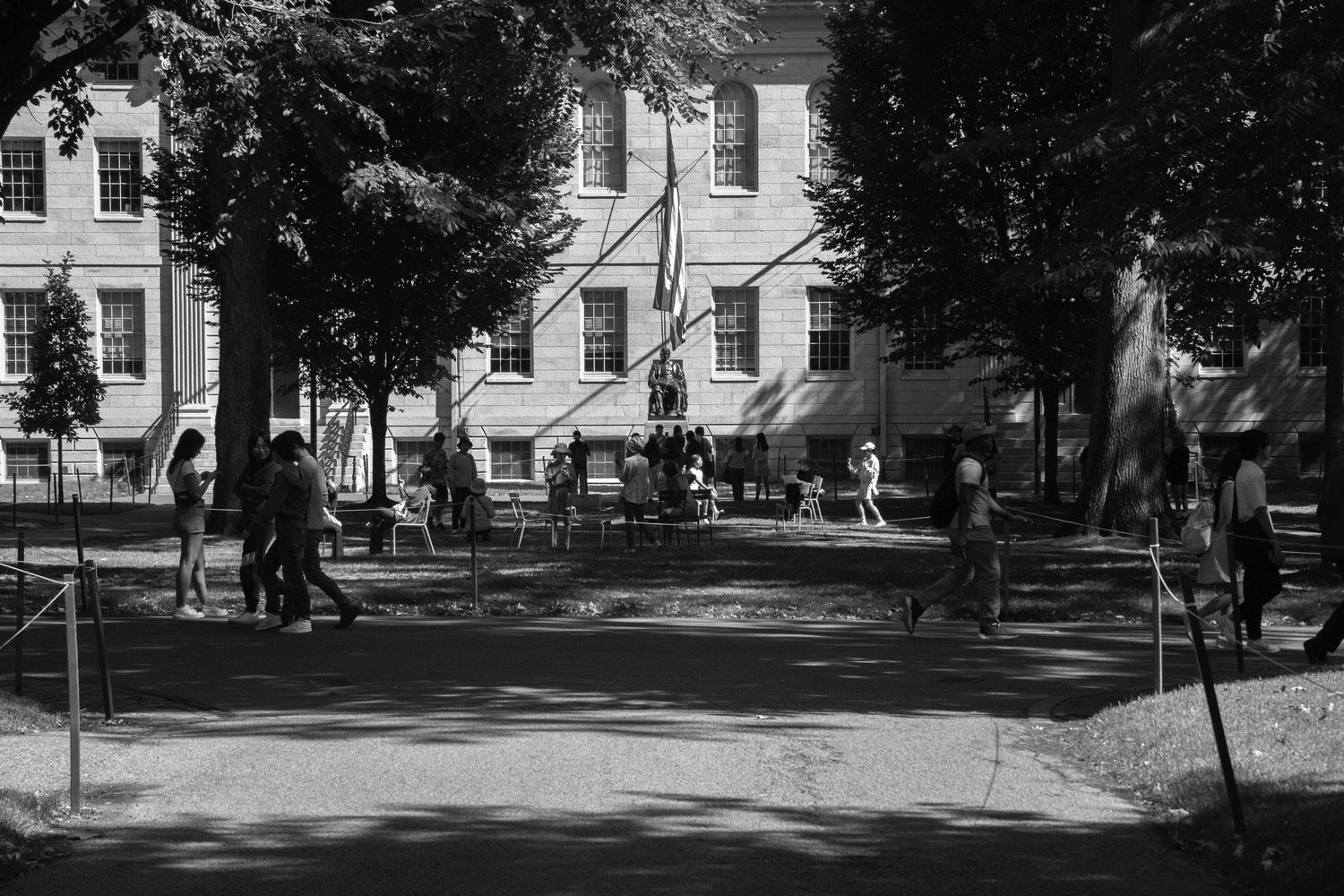
The ruling itself was to be expected, delivered by an Obama appointee who has ruled in the University’s favor in other litigation. The White House has already announced its intentions to appeal, and the process could be long. Now is the time to steel ourselves for what’s to come. The University should take the ruling as an opportunity to hold true to the principled stance it espoused when it first sued the Trump administration. The decision should embolden Harvard to reject a dangerous settlement and prompt a rethink-
ing of the internal changes it’s made, seemingly with the aim of pleasing the White House.
From the replacement of the Women’s Center and other DEI offices with an opaque and sanitized “Office for Culture and Community” to the clampdown on scholarship and student activism on campus, Harvard has dealt some serious blows to its core values of academic freedom and inclusion.
If our University can hold the line against authoritarian overreach in Washington, it must also find the courage to do so here at home.
BY AMELIA F. BARNUM
Students answer emails and play minesweep -
er. An unintelligible stream of sound flows from a figure in the front of the room.
No, this isn’t a class from Charlie Brown — it’s the all-too-frequent reality at Harvard.
There’s no need to go over the studies showing the negative effects of technology in the classroom. After all, for our generation, COVID-19 online classes are a not-so-distant memory of isolation and apathy. Yet Harvard continues to allow
a classroom culture where students hide behind laptop screens.
Calling all neglected teaching fellows and Jonathan Haidt groupies: There is an answer to Harvard’s academic prioritization crisis. Unlike many of Harvard’s problems, it’s an easy fix: Ban laptops from classes and lecture halls.
Harvard’s administration, amidst their push to encourage students to prioritize academics, has identified screens as a barrier to learning but left classroom screen policy up to individual professors and departments. Many professors still haven’t taken the leap into luddism. It’s time for the
College to take a top-down approach to screens in the classroom.
The College has taken other steps like eliminating the option to take General Education and Quantitative Reasoning with Data courses pass/ fail, apparently based on the belief that harsher grading can pressure students to dedicate themselves to the process of learning.
If the goal of these changes is incentivizing love of learning, why does the solution focus on grades?
In the meantime, the judge’s ruling provides a blueprint for other institutions. Here’s hoping they follow suit.
–This staff editorial solely represents the majority view of The Crimson Editorial Board. It is the product of discussions at regular Editorial Board meetings. In order to ensure the impartiality of our journalism, Crimson editors who choose to opine and vote at these meetings are not involved in the reporting of articles on similar topics.
Grade-obsessed students aren’t usually the ones who revel in the process of learning; they’re the ones packing their schedules with easy-A classes and curating a Linkedin profile. Banning screens is an answer to students’ academic neglect: It would increase classroom engagement as well as create a culture where the benefits of in-person learning can be fully realized. Currently, a sort of laissez faire classroom prevails: students who want to learn will listen to the lecture, and the rest should feel free to email, text, study for other classes, shop, apple-snake game ’til they drop.

Unfortunately, even for would-be luddites, barriers remain in the fight for classroom engagement: The incessant multitasking of peers signals to impressionable first-years that multitasking is the norm and that paying attention to lecture isn’t. And even if the pro-learning students manage to overcome underproductivity guilt, we are presented with yet another barrier to class engagement: the distraction of the activities on screens in front of us.
Harvard’s Derek Bok Center for Teaching acknowledges these problems while avoiding an explicit device ban in the classroom. Instead, the Center’s technology policy says that “using technology judiciously can encourage class participation.”
Even a University committee recognizes the problem: A report published last February proposed that faculty should dissuade the use of cell phones and internet-enabled technology during class as well as harshen absence policy and grading standards. The latter two policies now appear in the Student Handbook. What is stopping the College from implementing a screen-free classroom policy?
Sadly, it seems the College is afraid of tearing screen-addicted students away from their devices and asking for their full attention in class. No professor wants to take the drug away from the addict. As it stands, the benefits of in person education — socializing, engaging more thoroughly with the material, and learning how to conduct oneself in places where we have to speak publicly — can feel like they’re as good as gone. Instead, it often seems that we’ve doubled down on the sterile, joyless dystopia of online school. By banning laptops in classrooms, Harvard’s administration can take the choice away from professors or TFs who might be scared to antagonize themselves while making a concrete step towards becoming a place that prioritizes people who care about learning.
Perhaps if students were actually forced to listen in class (or at least to not actively ignore), they’d end up taking more classes they find legitimately interesting, and embracing the sort of vulnerability that comes with making eye contact with a professor and with peers.
Learning in a Harvard classroom is a privilege. Let’s not let laptops get in the way.
SEEKING OFFICE.
Timothy R. Flaherty is running to replace his client, Paul Toner, on the Cambridge City Council.
Timothy R. Flaherty, the attorney currently representing embattled Cambridge City Councilor Paul F. Toner, has quickly become the most well funded candidate in the race for his client’s former Council seat. Shortly after Toner announced he would not be running for reelection — a decision made months after he was charged for patronizing a high-end brothel network — Flaherty pulled papers, vying for the newly open seat on the Council.
Now, according to the Commonwealth’s Office of Campaign and Political Finance, Flaherty is the leading fundraiser in the Council race. He raised $85,282 — more than three times as much as his next closest competitor, current councilor Burhan Azeem. Flaherty has received just under 80 donations — the average coming in at $756 — with only 15 coming from Cambridge residents. Flaherty, a lifelong Cambridge resident and first-time Council candidate, is one of 20 candidates battling for the nine seats on the Council, with a pool of eight incumbents and 12 challengers, including Flaherty. He is running on the platform of getting past “polarization” on the Council and finding areas of “common ground and compromise,” according to his campaign website. Flaherty cites his work as a prosecutor and 25 years as a
Flaherty raised $85,282 more than three times as much as his next closest competitor.
istration has suggested seizing control.
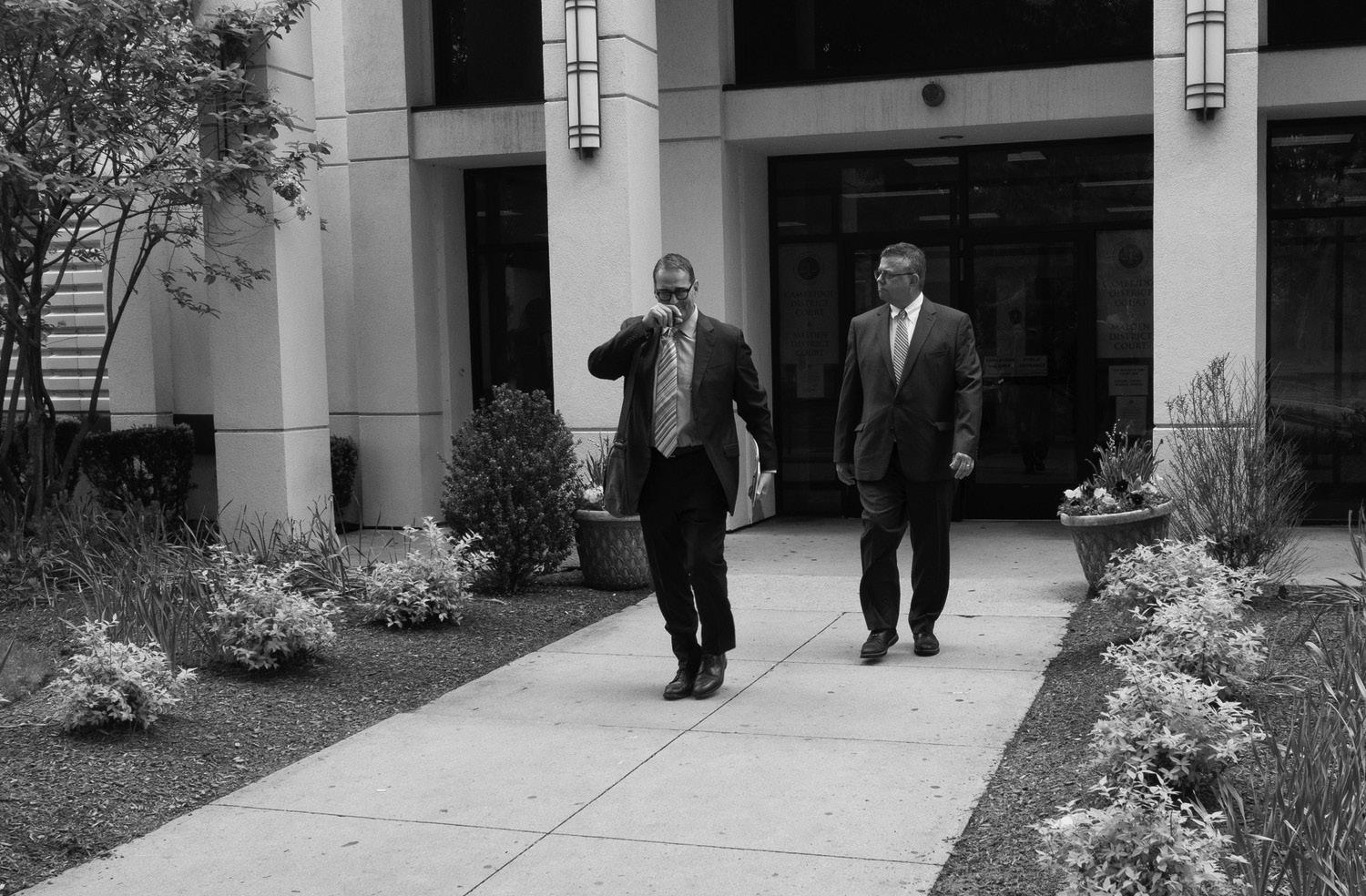
criminal defense attorney experiences preparing him to serve on the Council.
But his role in the Toner case puts him at the center of a divisive issue facing the council.
In the months since Toner was named in court in connection with the case, a slew of residents, a majority of his fellow councilors, and Cambridge State Representative Mike Connolly have all called for his resignation. Flaherty has defended his client in the courtroom — and in the court of public opinion, regularly supporting Toner in the media.
Flaherty has continually defended Toner’s image and position on the Council, personally advising him not to resign from his seat.
Not only is Flaherty connected to the embattled councilor as his attorney, but Toner has also contributed $500 to his campaign — a further sign of friendship between the pair.
Flaherty’s involvement with the brothel case is not his first controversial legal battle. In 2016, Flaherty resolved a federal indictment for witness tampering by pleading guilty to willful disruption of court proceedings, a misdemeanor, in state court.
The case involved Flaherty paying a $2500 bribe to a victim on the condition that he not cooperate with law enforcement and prosecutors in a hate crime case involving one of Flaherty’s criminal defendants.
Flaherty defended his record as a lawyer in a statement and noted that his client in the case was found not guilty.
Flaherty’s involvement with the brothel case is not his first controversial legal battle.
“Over 10 years ago, I was accused by the federal government of something I didn’t do when I tried to enter an accord and satisfaction with a man who claimed he was assaulted by my client
shawn.boehmer@thecrimson.com jack.reardon@thecrimson.com
The Trump administration has set its eyes on Boston’s South Station, hinting at a federal takeover similar to Union Station in Washington, D.C. But federal officials face an uphill battle to control the state-run transportation hub.
Steven G. Bradbury, the U.S. Deputy Director of Transportation, visited South Station last weekend, where he suggested the administration may seize control of the station.
“We need to address the stations along the Northeast Corridor,” Bradbury said. “Similarly, here in South Boston we need to address the cleanliness, the crime, the safety and security of the station for the rail workers, for the passengers, because the people of Boston deserve that.”
The statement came the same day that the federal government took control of D.C.’s Union Station — the next phase of the Trump administration’s “beautification” of D.C. Since deploying the National Guard to patrol the city in August, rates of violent crime are down, though crime rates had been decreasing consistently since 2023. Unlike Union Station, which is owned by the Department of Transportation, South Station is owned by the Massachusetts Bay Transportation Authority. This means that the federal government lacks the authority to take control of the station — a fact that local leaders have stressed since Bradbury’s statement.
Boston Mayor Michelle Wu ’07 strongly rejected the possibility of a takeover in a statement to reporters on Thursday.
“This is not a game of authoritarian monopoly,” Wu said.
“This is a government with laws and a constitution that clearly shows who is in control of what.”
“South Station is not the property of the federal government, and there’s no legal way for anything like that to happen,” she added. Vehicles pass by South Station in Boston. Though the transit hub is owned by the Massachusetts Bay Transportation Authority, the Trump admin-
Threats of federal interference in South Station is not Boston’s first run-in with the Trump administration. Federal officials have repeatedly targeted the city for its sanctuary city policies, calling on Wu to testify before Congress last March.
Attorney General Pam Bondi sent a letter two weeks ago threatening to prosecute city officials and withhold federal grants and contracts unless Boston agrees to carry out mass deportations. Wu condemned Bondi’s statement, and she has repeatedly stated her reluctance to comply with the demands.
“This federal administration’s false and continuous attacks on American cities and millions of our residents are unprecedented,” Wu wrote in her response letter to Bondi.
“The Trump Administration seeks to divide, isolate, and intimidate our cities, and make Americans fearful of one another,” she added.
The Department of Homeland Security has threatened to withhold funding from 200 cities — including Boston — that have been flagged for sanctuary city policies. Cambridge was previously named on the same list, but has since been quietly removed. A lawsuit is pending against the DHS, in which Cambridge has been added as a plaintiff.
Wu has made clear that Boston has and will continue to work with federal law enforcement.
“Our City’s longstanding and productive partnership with state and federal law enforcement to protect the people of Boston far predates your tenure,” she wrote to Bondi.
But despite promises of continued collaboration, Wu has made it clear that the city will not yield its autonomy to the Trump administration.
“The United States Constitution establishes that local governments, closest to the people, hold the authority to enact public safety policies without the threat of unlawful interference from the federal government,” she wrote.
BY ANGELINA J. PARKER CRIMSON STAFF WRITER
Each September 1, hundreds of U-Hauls and pickup trucks descend upon Allston as thousands of resident leases end and students move in and out of their housing for the school year.
Residents refer to the tradition as “Allston Christmas” in honor of the free furniture, clothes, and wall decorations that flood Allston sidewalks as students and renters leave their unwanted belongings out for others to take.
“My new desk came from down the street,” Alex X. Perre -
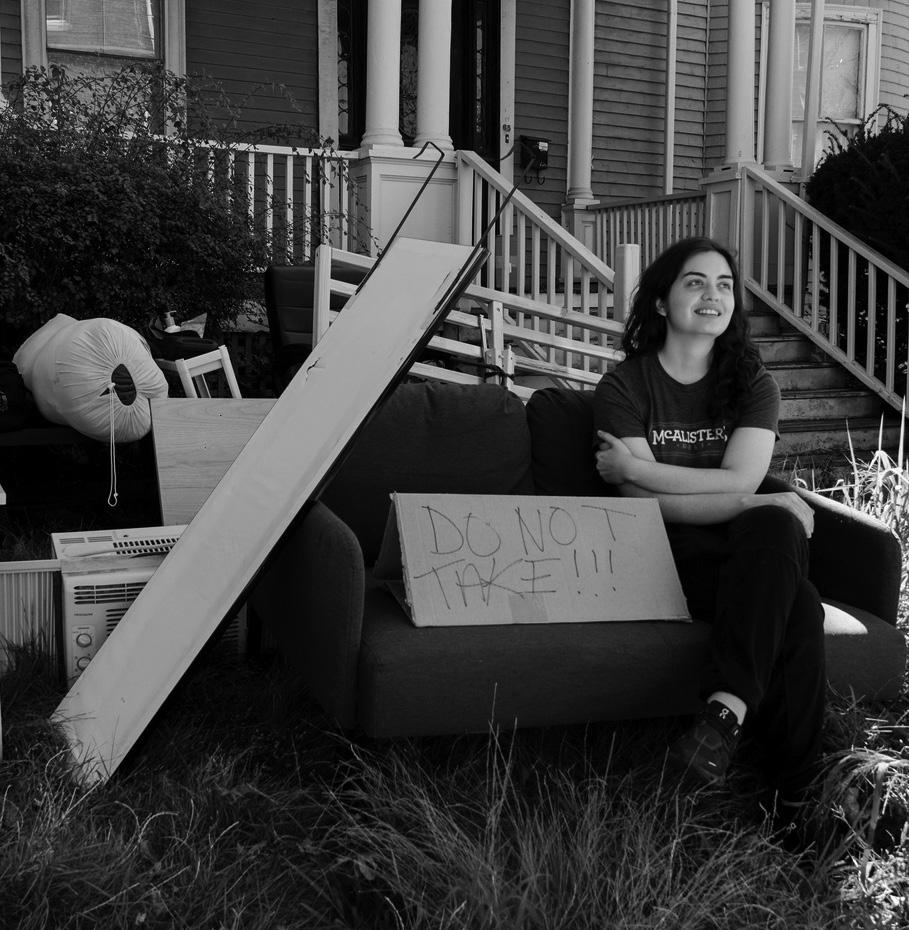
ra, a junior at Boston University, said.
“One of my roommates just got a lamp, actually maybe multiple lamps, and our dining room table also came from one of our neighbors,” Perrera added.
Student renters make up a significant portion of Allston residents, with about 14 percent of the population attending surrounding universities. With the high renter turnover comes an influx of traffic as residents move in and out of apartments.
The city of Boston issued over 2,500 moving permits for the past weekend alone, deploying parking officers, sanitation crews, and inspectors to monitor the neighborhood during the annual tradition.
Perrera described Allston Christmas as “a tough situation for a lot of people” from his doorstep as parents and students flooded past on the sidewalk.
On the street, moving trucks and residents’ cars stalled in bumper-to-bumper traffic.
“We were lucky. We can move in a day early,” Perrera said.
Laura B. Dees, a Boston University law student who spent the day helping her friends move out of their rented Allston home, said they prepared a pile of clothes and furniture specifically to give away for free.
“There’s the free pile. Someone was filming content in it earlier. They had a tripod and a camera, and they laid in it, and they were playing guitar. It was crazy,” Dees said. Erin S. Scheier, another junior at Boston University, watched as her neighbors attempted to move out within a specific timeframe to avoid additional fees from landlords.
“It was super hectic this morning — lots of trucks, lots of people moving things out,” she said. But September 1 is “even more hectic,” according to Scheier. “It’s probably going to be insane, because everybody who is starting their lease for September 1 will be moving in.”
George B. Kreidler, another Boston University student renting in the Allston area, found it difficult to find suitable furniture in the bustle of Allston Christmas.
“We’ve seen a lot of stuff — it’s been like trash. We haven’t really found that many big pieces of furniture yet,” Kreidler, who was on the hunt for a new couch, said.
“It’s stressful and exciting,” Perrera said. “You know, it’s nice to feel productive and to make a place your home. So that’s always fulfilling.”
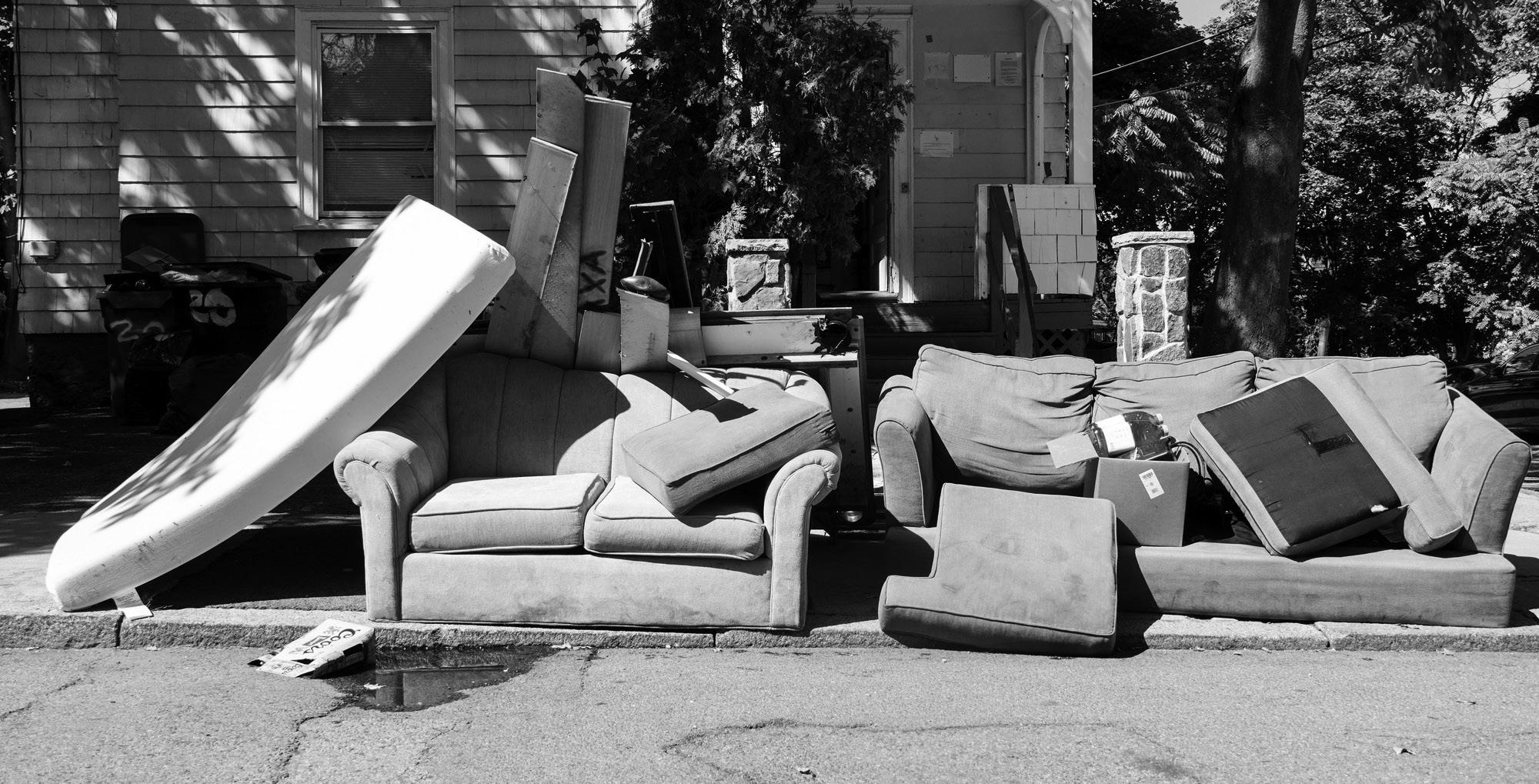
City, and we will vigorously defend our laws and the constitutional rights of cities, which have been repeatedly upheld in courts across the country.”
“We will not yield,” she added.
The Department of Justice
filed a lawsuit against the City of Boston and Mayor Michelle Wu ’07 over its sanctuary city policy on Thursday, claiming that Boston is “among the worst sanctuary offenders in America.”
The lawsuit targets a city policy, the Boston Trust Act, which prohibits police from working with ICE on civil immigration enforcement efforts, including prohibiting police officers from asking immigration status, sharing information with ICE, or “performing the functions of an immigration officer.”
The Boston Police Department and Police Commissioner Michael A. Cox are also named as defendants in the lawsuit which alleges they are withholding information of people in City custody who are subject to federal immigration custody.
The Department of Justice claimed in the lawsuit that the city of Boston reflects an “intentional effort to obstruct the Federal Government’s enforcement of federal immigration law,” the Department of Justice said in the lawsuit.
Wu blasted the lawsuit as the Trump administration pursuing its “authoritarian agenda,” and claimed that Boston is “the safest major city in the country.”
“This unconstitutional attack on our city is not a surprise,” Wu wrote in a statement on Thursday. “This is our
Attorney General Pamela J. Bondi published a list of sanctuary jurisdictions last month, promising to bring litigation and end sanctuary policies. The lawsuit marks the latest of a series of lawsuits against “sanctuary jurisdictions” including Democrat-led cities in New York, New Jersey, and California.
“Boston’s refusal to cooperate with federal immigration authorities results in the release of dangerous criminals from police custody who would otherwise be subject to removal,” the press release accompanying the lawsuit read, “including illegal aliens convicted of aggravated assault, burglary, and drug and human trafficking, onto the streets.”
The lawsuit continues with a condemnation of Wu, saying “her resistance endangers public safety.”
During a Wednesday candidate forum in Needham, with Wu and mayoral opponent Josh Kraft, housing and immigration took center stage.
Wu was questioned on the sanctuary policy, which has defied the Trump administration’s immigration crackdown. She touted the policy for making Boston safer and helping Boston’s immigrant communities cooperate with police in a more willing manner.
“We have the safest major city in the country exactly because every member of our community knows that they can trust when they call 911, someone will come to help,” she said. “They don’t have to worry about negative consequences. ”
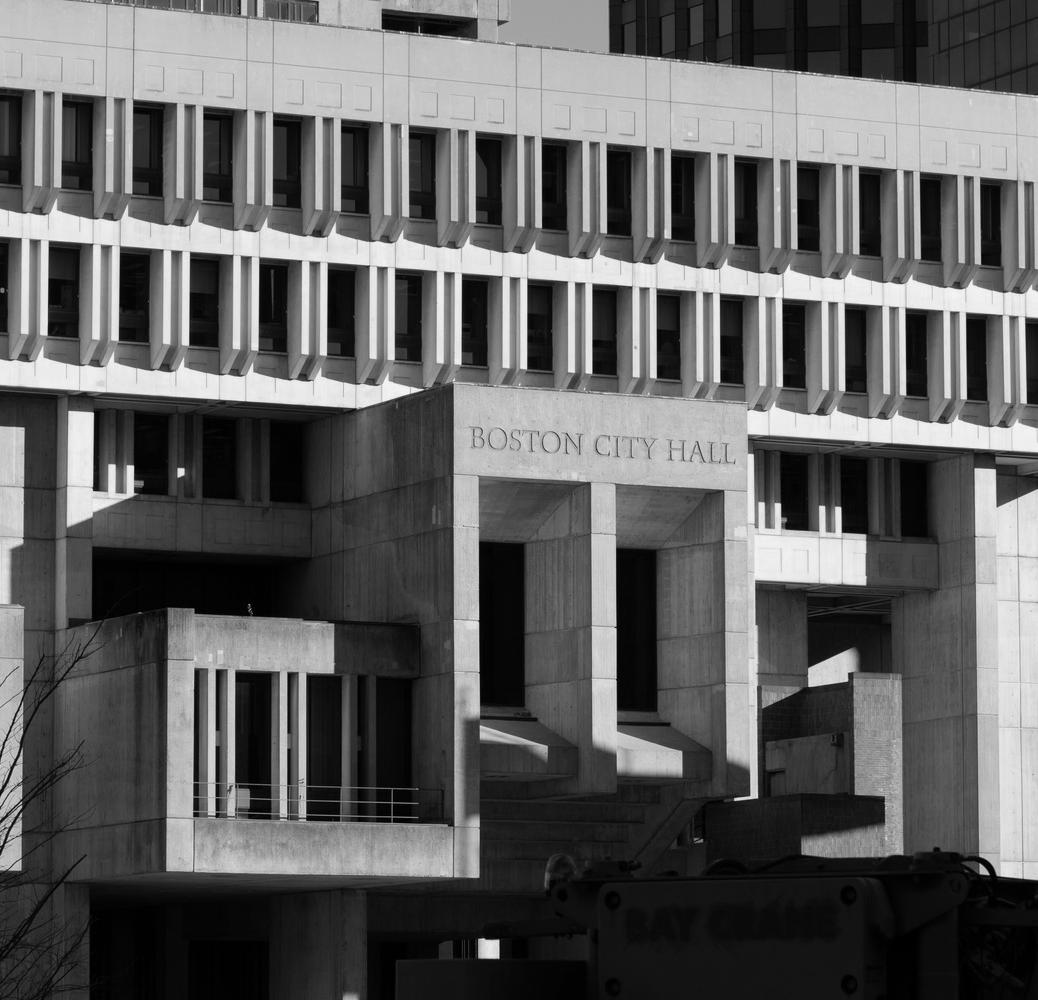
Wu has repeatedly been scrutinized for the city’s sanctuary policies, notably this past March when she appeared in front of the House Oversight
Committee to testify on the city’s sanctuary status. Despite harsh questioning from Republicans, Wu continued to defend the city’s record on crime and immigration. As Wu’s re-election approaches, and the mayoral primary set for next Tuesday, the lawsuit against the city will add
pressure, and more national attention, to the mayor.
megan.blonigen@thecrimson.com frances.yong@thecrimson.com
to Judge Talwani.
As former Boston City Councilor Tania Fernandes Anderson faces sentencing this Friday for counts of wire fraud and theft of federal funds, she comes into the hearing with the vocal support of several of her former colleagues — including Allston-Brighton’s own councilor.
In a July letter to Judge Indira Talwani ’82, who is presiding over Fernandes Anderson’s case, Breadon asked her not to incarcerate the disgraced councilor as federal prosecutors seek a yearlong prison sentence. Instead, Breadon asked the judge to “consider placing (Fernandes Anderson) on home confinement,” writing that the
councilor had showed “heartfelt commitment to effectively serve the most vulnerable populations in our city,” and that the arrangement would help her continue supporting her family.
Fernandes Anderson entered the council four years ago alongside Breadon, and was noted for breaking many barriers at the time: she was the first Muslim, African immigrant, and formerly undocumented person to hold the office.
But late last year, federal agents arrested Fernandes Anderson outside her Dorchester home and accused her of receiving a $7,000 kickback from a family member in a City Hall bathroom the year before.
Prosecutors pointed to Fernandes Anderson’s financial struggles at the time, saying she had missed rent and car pay -
ments prior to the kickback scheme.
The councilor has since stepped down from her post — following pressure from Mayor Michelle Wu and the city council president — and pleaded guilty to two of the six federal charges. (The remaining four were later dropped.)
Scott Lauer, her court-appointed lawyer, declined to comment in advance of Friday’s sentencing hearing.
Though Breadon wrote that Fernandes Anderson had “undoubtedly fallen short in our expectations of a public servant,” she also underscored Fernandes Anderson’s dedication as a foster mother and her record as a former nonprofit leader.
Breadon joined several other local political leaders in writing supportively of Fernandes
Over the spring and summer, more than 90 people submitted letters in support of Fernandez Anderson, including Boston City Councilors Julia Mejia and Brian Worrell, State Representatives Christopher Worrell and Russell Holmes, and State Senator Liz Miranda.
All of them emphasized Fernandes Anderson’s generous and compassionate character and track record as an advocate, but stopped short of excusing the corruption convictions.
Holmes noted that the Fernandes Anderson has fostered 17 children, and cited her nonprofit work revitalizing areas in Dorchester.
In an interview this week, Breadon also praised Fernandes Anderson for bringing to light disparities in funding across the city’s neighborhoods
during her time chairing the council’s Ways & Means committee.
Most of all, Breadon said, Fernandes Anderson highlighted the city’s relative lack of funding to Allston-Brighton, now a long-running gripe among the neighborhood’s civic leaders.
“A lot of my recent advocacy for a new community center, for example, was born out of Councilor Fernandes Anderson highlighting the disparities in capital investment across different districts in the city,” Breadon said.
In 2024, Breadon criticized the Boston city council’s capital projects budget for allocating four times less funding to Allston-Brighton than almost all of the other neighborhoods in the city.
Most recently, the city has faced high pressure from resi -
Nine caregivers, members of the public, and teachers urged district leaders to halt the Cambridge superintendent search during Tuesday’s School Committee meeting, following months of controversy around the process.
“This process has been a failure of transparency and community involvement and must be reset,” Chris Montero, president of the Cambridge Education Association, said. Montero was one of the several residents who attended the meeting to advocate for the process to be restarted after the November elections.
Cambridge Public Schools has been without a permanent superintendent for more than
a year, after School Committee members voted to remove Victoria L. Greer amid concerns about her management style. In July 2024, the committee appointed David G. Murphy as interim superintendent. The School Committee has faced mounting backlash from local stakeholders who feel they have been left out of the ongoing search process. The CEA — the union representing district teachers and staff— issued a scathing statement last month urging for the search to be restarted with greater public input. Soon after, the union launched a petition to halt the search, which has since drawn more than 1,500 signatures. Montero and others cited the petition as evidence of broad opposition and faulted the committee for dismissing public concerns. Several speakers also criticized the lack of communi-
cation and outreach in the process to date. Lilly Havstad, a CPS parent who is also running for School Committee this fall, echoed those frustrations.
“There has been little meaningful engagement with the educator, students, and families who will be most affected by this hire,” she said. “This is a failed search.”
The district partnered with private search firm The Equity Process and has named three finalists for the role — including Murphy. School Committee challenger Arjun K. Jaikumar criticized the process, calling it flawed and potentially biased toward the interim superintendent.
“There’s a widespread suspicion in the community that this search is, and has always been, conducted with the intention of hiring the current interim superintendent,” Jaikumar said.
“If he winds up getting the permanent job, he will take it under a cloud of suspicion that isn’t his fault. This process hasn’t served him well, or the other candidates either,” he added.
“It’s past the point of last minute adjustments. It’s time to halt this search process and start over.”
CPS parent Rosa Rosario also stepped to speak, addressing the School Committee in Spanish to highlight her concerns about the superintendent process. But her time was interrupted as the committee attempted to find someone to translate. After several minutes of deliberation, members voted to suspend the rules and allow member José Luis Rojas Villarreal to translate and read Rosario’s written statement aloud after public comment ended. Rosario said that she felt like the district had not adequately communicated to non-English
speaking caregivers the details of the search process.
“Why does a district exclude our voices, like mothers, like fathers of color, if we don’t speak English? Why are we left outside from decision making, such as this one that’s so important? Why are we not informed directly in our language and in a clear manner?” her statement read, as translated by Rojas.
“This exclusion is not a small detail. It’s a lack of respect to our communities and to everything that we contribute towards public schools,” she added.
The School Committee organized three public forums with the CEA, the Cambridge Families of Color Coalition, and School Council Chairs last month to give stakeholders another chance to weigh in on the search. During the week of Sept. 15, committee members plan to conduct site visits to each candi-
dents to fund a new community center in the neighborhood after its only one has been scheduled for demolition since 2019 and has slowly shuttered since then.
In the interview, Breadon also praised Fernandes Anderson’s constituent outreach, calling her “innovative in how a city councilor would serve their neighborhood.” Just days after Fernandes Anderson’s Friday hearing, District 7 residents will begin the process of filling her seat, choosing two out of the eleven primary challengers to proceed to the general election. Breadon, meanwhile, will gear up for a general contest against challenger Pilar Ortiz in November.
emily.schwartz@thecrimson.com
claire.michal@thecrimson.com
from April 23 to May 12. This is the sixth installment in a series on the survey results. The preceding pieces focused on faculty views about Harvard’s lawsuit against the Trump administration, University governance, academic freedom, antisemitism and Islamophobia, and classroom issues. This piece covers faculty’s political opinions.
Roughly 63 percent of Harvard faculty who responded to The Crimson’s annual survey of the Faculty of Arts and Sciences identify as liberal — continuing a steady decline in the percentage of survey respondents who say their political beliefs lean to the left.
Approximately 29 percent of faculty respondents said they were “very liberal” and 34 percent said they were “somewhat liberal.” Just 9 percent of respondents identified as conservative, with 8 percent saying they were “somewhat conservative” and 1 percent saying they were “very conservative.”
The responses mark a slight drop in the proportion of liberal respondents compared to the results of the previous year’s FAS survey.
Last year, The Crimson reported that 22 percent of faculty identified as “very liberal” and 48 percent as “liberal.” This year’s data showed a slight increase in the percentage of respondents who identify as conservative — up from less than 6 percent last year.
The Crimson’s FAS survey was distributed to more than 1,400 faculty members, including both tenure-track and non-tenure-track faculty, with names collected from the FAS’ public masthead. Faculty were asked about demographic information, politics, and campus issues. The email survey had 406 responses, with 260 fully completed and 146 partially completed. The survey was open for three weeks,
Conservatives on Campus
For years, critics both within and outside Harvard have raised concerns that the University’s faculty leans too liberal and lacks representation of conservative, libertarian, or right-wing views. “Harvard needs conserva-

repeatedly found that significant majorities of the faculty lean progressive. But over at least the last four years, a lower proportion of survey respondents have identified themselves as liberal. In 2024, 70 percent of Harvard faculty characterized their political leanings as liberal, and in 2023, more than 75 percent said their politics lean left. The previous year, that share of respondents who said they were liberal was above 80.
Still, faculty were overwhelmingly negative about Donald Trump’s presidency on the 2025 survey. A 93 percent majority said they were “very dissatisfied” with his second term as president. Only three individual professors reported being “somewhat” or “very satis-
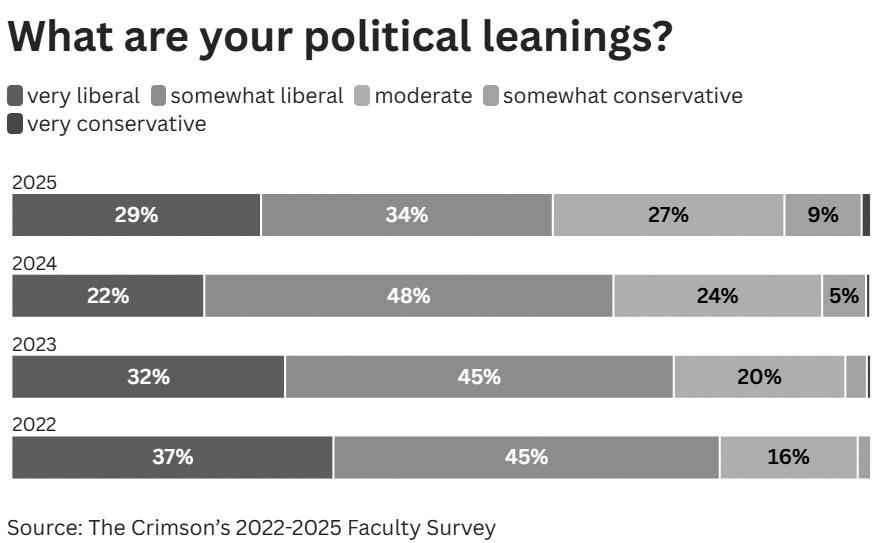
tive faculty to improve the quality of what is commonly heard and thought, to expand the range of its moral and political opinion, and to help restore demanding academic standards of grading,” Government professor Harvey C. Mansfield, one of Harvard’s most prominent conservative thinkers, wrote in an oped calling for Harvard to hire more right-leaning faculty earlier this year.
The Crimson’s FAS survey has
fied” with the president.
The political leanings of Harvard’s faculty have become a target for the Trump administration, which demanded in April that Harvard broaden the “viewpoint diversity” represented within its academic programs, student body, and faculty — or go without federal funding.
At Harvard, University officials have also begun pushing for broader viewpoint representation,
though potentially with a less explicitly conservative bent. The University’s twin task forces on battling antisemitism and Islamophobia recommended that Harvard establish a new center for pluralism that would host programming on “recognizing the diversity of identities and ideologies on campus” and advancing respect and cooperation among affiliates.
The Wall Street Journal reported in July that Harvard was considering establishing a center for conservative scholarship modeled after Stanford’s Hoover Institution.
A University spokesperson told the Journal that Harvard was instead accelerating work on an initiative that “will not be partisan” but “will ensure exposure to the broadest ranges of perspectives on issues.”
It was not clear whether the center referenced in the Journal article was the pluralism center recommended by the task forces. But the spokesperson told the Journal that the initiative would support “viewpoint diversity.”
Harvard and FAS spokespeople did not respond to a request for comment for this article.
In The Crimson’s survey, faculty were asked whether they believe Harvard should make a “concerted effort” to hire more conservative faculty. Most respondents opposed the proposal, with 34 percent “strongly” disagreeing and 23 percent “somewhat” disagreeing. Just 23 percent of respondents said that Harvard should focus on making more conservative hires.
Faculty respondents also reported their party-based voter registration. A 53 percent majority were registered as Democrats, and 28 percent were registered as independents. Just 5 individual professors said they were registered Republicans.
Political donations from professors have overwhelmingly skewed to Democrats. Ahead of the 2024 election, FAS faculty members contributed almost $430,000 to Democratic candidates and PACs between January 2023 and October 2024 — a trend mirrored at the Harvard Kennedy School and Law School.
Divestment From Israel
The Crimson’s survey asked faculty whether they supported calls for Harvard to divest from Israeli companies that operate in the West Bank. Divestment is a central demand for many pro-Palestine activists — including the protesters who established an encampment in Harvard Yard last spring.
But a 41 percent plurality of faculty respondents said they believe Harvard should not pull its investments from Israeli companies, while 36 percent said the University should. The results mark a notable change from last year, when a nearly 41 percent plurality of respondents said they believe that Harvard should divest. At the time, 31.3 percent of respondents indicated the University should not pull its investments.
The shift occurred as the Trump administration attempts to punish Harvard for the actions of pro-Palestine protesters — and as Univer-
and
of Gaza’s population into famine or severe hunger. Earlier this year, the Harvard Management Company reinvested $150 million in Booking Holdings Inc. The company — one of just 14 firms and funds that HMC holds direct public investments in — has faced fierce criticism for
direct HMC to “use its endowment funds to endorse a contested view on a complex issue that deeply divides our community.”
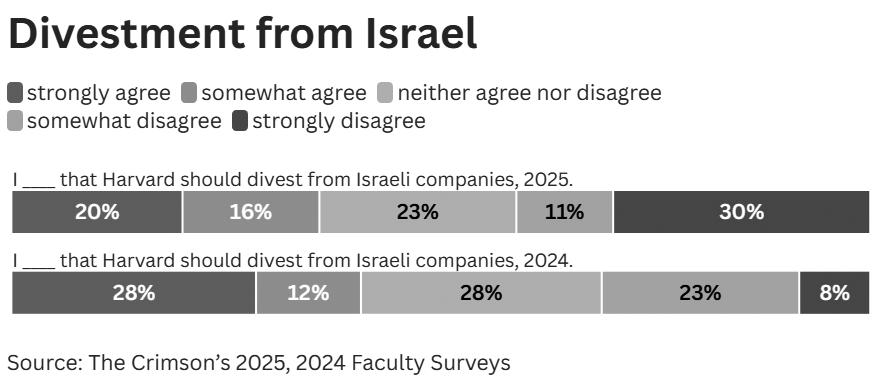
More than a dozen Harvard College freshmen are living in the DeWolfe housing complex — traditionally an upperclassman dorm — rather than in Harvard Yard due to a larger-than-normal freshmen class.
College freshmen usually live in one of 17 dorms located around or inside Harvard Yard. This year, however, 16 freshmen were placed on the first floor of 20 DeWolfe St., one of two apartment buildings that usually serve as overflow housing for Dunster, Quincy, and Mather Houses.
Some freshman students placed in DeWolfe said they initially were confused when they received their housing assignment, as DeWolfe is not listed on the freshman housing website.
“I was like, am I even living on campus?” Sirina Ganne ’29, a freshman DeWolfe resident, said. Christian H. Capella ’29, another freshman living in DeWolfe, said that at first he was worried he would be isolated from the rest of his class.
“My mom especially was really, really mad, because usually the whole experience about Harvard is being in the Harvard Yard,” Capella said.
Since moving in, however, he’s found it easy to meet new people. For instance, during orientation, a birthday party held in the neighboring dorm, he said, turned into a “rager.”
“People just kept on showing
up and showing up,” Capella said.
“Obviously I was pretty stoked about that, because my whole issue with DeWolfe is not meeting many people, and obviously that’s not been a problem.”
According to Angela Zhang ’27, a Peer Advising Fellow for DeWolfe, the College’s placement of freshman in DeWolfe was due to lack of space in the traditional freshman dorms to accommodate a larger-than-normal class size.
The Harvard College Facebook, which serves as an internal directory of Harvard undergraduates, currently shows 1,682 students enrolled in the Class of 2029, an apparent increase from the 1654 students who had committed to the College by late May.
The previous freshman class, meanwhile, had 1,647 students. Harvard’s freshman classes typically include around 1,650 matriculants, according to data from past years’ admissions web pages.
The College’s Admissions Office told students in a mid-August meeting that the college admitted roughly 25 to 30 extra students in case international students would not be allowed to enter the U.S. due to president Trump’s attack on student visas.
A Faculty of Arts and Sciences spokesperson declined to comment on the placement of freshmen in DeWolfe housing.
This year is not the first time that DeWolfe has housed freshmen. In the 2017-18 school year, 28 freshmen lived in DeWolfe due to an unexpectedly high number of freshmen enrolled in the Class of 2021 caused by a record-high yield rate of 84 percent.
According to Ganne, the distance between the Yard and DeWolfe has a few downsides.
“Nobody wants to walk us home, because it’s far,” Ganne said.
Still, Ganne added that the placement does not impede their ability to socialize with their peers.
“The walk to the Yard is a little bit far, and maybe we’re away from everybody, but we can go hang out there. And the past couple nights, people have come to DeWolfe,” Ganne said.
Zhang wrote in a statement to The Crimson that she hopes the experience creates a “tighter community” for the students living in DeWolfe.
“I don’t think being a PAF for DeWolfe is that different from being a PAF for other entryways, other than us having fewer students,” she wrote.
DeWolfe’s rooms also have kitchens, bathrooms, and air conditioning, amenities not often found in the traditional freshman dorms.
“I was happy once we saw our rooms, because we had kitchens and our own bathroom, we had AC,” Camille R. Maccarone ’29, another freshman DeWolfe resident, said.
Capella too said the amenities will help him make the most of the unique residential experience.
“I like it because I love eating frozen pizza too. So I can do that here, which is fun,” Capella said.
BY SAMUEL A. CHURCH AND
Currier House Faculty Deans Sylvia I. Barrett and Latanya A. Sweeney, the first LGBTQ couple of color to lead one of Harvard’s 12 upperclassman Houses, will step down at the end of the academic year after 10 years in the position. Barrett and Sweeney’s departure comes at the end of their second five-year term in the role — the maximum amount of time faculty deans can serve.
“This year is a milestone: it marks Sylvia’s and my tenth — and final — year as your Faculty Deans,” they wrote in a Tuesday email to the House. “Together, we’ve built and nurtured a vibrant community that we are deeply proud of. From the Wall of Women to Currier Coffeehouses and countless other traditions, so much of what makes Currier special today has grown and thrived during these years.”
Barrett and Sweeney moved into Currier in 2016 with their son, Leonard. Sweeney is a professor of government and technology with appointments in the Harvard Kennedy School and Faculty of Arts and Sciences, and Barrett is a business attorney.
The day after Barrett and Sweeney’s announcement, College Dean David J. Deming circulated a form to Currier affiliates where they could nominate potential successors. Deming wrote that his office would partner with Currier Resident Dean Amanda Lobell to begin the search process for Barrett and Sweeney’s replacements in the coming months. Lobell will lead a faculty dean search advisory committee to evaluate candidates.
“For the past ten years, Latanya and Sylvia have been extraordinary leaders and wonderful colleagues, and it is clear how much they care for each of you,” Deming wrote in the Wednesday email to House affiliates. “I am so thankful for their commitment to building

a welcoming, vibrant, and inclusive community at Currier and for their stewardship of the House.” Tom Nelligan ’27, a Currier resident, said whoever is selected to follow Barrett and Sweeney would have “big shoes to fill.”
“Every interaction has been just overwhelmingly positive,” he said. “Every time you hear about them, it’s nothing but good things.”
Nelligan, who spent last year living in Cronkhite — an overflow building for Currier about a ten minute walk from the main House — said he appreciated how often Barrett and Sweeney made the trek to see them and make them feel part of the House.
“I was kind of surprised they showed up,” he added.
Sydney C. Black ’27, another Currier resident, said she had fond memories of Barrett and Sweeney bringing out fun games and activities — like Segways for students to ride on — during open houses.
“They’ll definitely be missed, and I’m excited to see who our next faculty
SHOULD I STAY OR SHOULD I GO? International students weighed the risks of travel under Trump’s threats.
BY
Tarun S. Sasirekha ’27, a student from India, was planning to spend the summer researching with a professor in Japan before returning home to Chennai for his mother’s 50th birthday in August — a plan he had finalized over winter break.
But out of fear that the Trump administration would bar him from entering the country again as an international student at Harvard, Sasirekha canceled both plans and stayed put.
The Trump administration repeatedly attempted to prevent Harvard from hosting international students in the spring, and the case was still pending over the summer even though a federal judge had temporarily preserved international enrollment. The University’s international office had been warning students to reconsider travel and avoid Boston Logan Airport.
“Every HIO member I talked to were like, ‘Please don’t go,’” Sasirekha said. “They just said, ‘Don’t go, don’t leave the country.’” He received free Harvard summer housing and dining hall access.
Though Harvard’s legal battle over international enrollment was not resolved by Wednesday’s ruling on federal funding, the University and White House are currently negotiating the terms of a settlement that would also end attempts to prevent international students from attending Harvard, according to the New York Times. But international students did not know that when they packed up their dorms and left campus in the spring.
Days after most students had left campus, the Department of Homeland Security revoked Harvard’s Student Exchange and Visitor Program certification, which every student visa holder at the University relies on to attend the school and stay in the country.
The revocation was temporarily blocked in court, and international students were left to weigh their

own risks over the summer when deciding whether to take internships abroad or visit family. The Trump administration’s decision to appeal the block in June only introduced more risk into their calculus.
Ismail Assafi ’27, an international student from Morocco, said that dilemma meant he spent more time away from home. Assafi was hoping to spend the beginning of summer at home in Morocco with his family before returning to Harvard to conduct research with a professor. But after the DHS’ threat in May, Assafi said he did not want to be caught “waiting for some crazy thing to happen.”
“You have no idea how these things come together,” he said. “It’s completely unpredictable, so I was like, ‘Might as well just stay in the country.’”
Assafi canceled his trip and managed to secure University housing for the time he had planned to be away.
Rumors of sweeping travel restrictions had been swirling since Trump took office in January. In March, Secretary of State Marco Rubio announced the administration had already revoked more than 300 student visas, fueling concerns that Harvard’s international population could soon be at risk.
And on April 6, Harvard announced that it had discovered three current students and two recent graduates with revoked visas.
The next day, Woodbridge International Society Co-President Saskia Hermann ’28 sent a reminder to WIS members that the application for on-campus summer housing would close that evening. She wrote that she had met with HIO officials, who told her that international students who applied would not be rejected because leaving the country could put a student’s ability to return in jeopardy.
Hawraz H. Jamal ’25, who is from Iraq, also decided not to risk
BY BIANCA G. CIUBANCAN AND DARCY G LIN
Two Adams House dormitories — Russell Hall and Westmorly Court — opened their doors this fall to residents, who said they were “very pleased” with the long-awaited renovations even as parts of the House remain closed off behind bolted doors and stretch wrap.
Though Adams House unveiled its refurbished dining hall on Aug. 26 and residents moved in as early as Aug. 18, iconic amenities such as the Pool Theater, the Franklin Delano Roosevelt Suite, and the Glass Elevator were still under construction and inaccessible to residents as of Sept. 2.
“If there’s one thing that I would say is not perfect — they’re still finishing up a lot of the common spaces,” Grayson E. Caffrey ’28 said. “They’re finishing up a lot of the cool common spaces, like the Pool Theater and the FDR suite.”
“It’s really minor, but it would’ve been cool to show that to my parents when they were helping me move in,” Caffrey said.
Adams House’s three building complexes were renovated in phases, beginning in 2021 with Claverly Hall. The House’s renovation, part of the College’s $1.4 billion House Renewal project, was originally slated to end in fall 2022.
But roadblocks encountered during the pandemic — including a five-month construction moratorium — delayed the timeline significantly. Renovations on Russell Hall and Westmorly Court began in June 2023 and were expected to be completed by this summer.
More than two years later, some Russell Hall rooms were still undergoing work as students moved in.
“I feel like they did a great job,” Stella S. Kwon ’26 said. “They’re still actively installing things, though, which is pretty funny.”
“We didn’t have a bathroom mirror for a couple of days and then a man came and installed it,” Liz Zheng ’26 added. Wilson Chung ’28 said that most rooms are “pretty much set,” except for minor wrappings in common areas.
“In one of the common rooms, the sofa still has plastic wrap on top, so we couldn’t use the common room,” Chung said. Abdullah Shahid Sial ’27 — who was on campus early as a leader for the First-Year International Program, a pre-orientation program for international students — said that he ate in Adams on its opening day. Though the indoor dining hall was complete, he said that there was still ongoing construction on the outdoor atrium portion of the dining hall. Adams House residents were given different timelines for the remaining projects: the House’s faculty deans announced at sophomore orientation that all renovations should be completed by the end of the semester, with the Pool Theater prepared by October. Some House tutors told their entryways to expect completed renovations within the next couple of weeks, students said. Adams House’s facilities will be completed at different times, according to a college spokesperson: the FDR Suite is under review,
an inspection is being scheduled for the Glass Elevator, the Pool Theater is on track to be completed in the next few weeks, and the Bell Tower will be complete by the end of this semester.
“As a House, we are beyond thrilled to be back in our buildings after six years of renovations,” Adams House Faculty Deans Mercedes C. Becerra ’91 and Salmaan Keshavjee wrote in response to a request for comment, adding that the “renewal process maintained the historical character of Adams House” and has increased the number of student work and hangout spaces.
“Like any renovation, there are still a few things to finish here and there, and we are looking forward to that happening over the next couple of months,” they wrote.
Students said they were more than satisfied with the renovations and seemed unfazed by the unfinished projects.
“I never knew what it looked like before because I’m a sophomore but it’s really nice. So I’m very pleased,” Henry Zeghibe ’28 said, calling the renovations “beautiful.”
“I think people are happy to wait,” Zeghibe said. “I don’t think anybody’s too upset that we’re waiting a little.”
Zheng said that her Russell Hall dorm has a “diabolical amount of space.”
“My friends come and I show them all the new stuff and I can secretly see the jealousy flash in their eyes,” she said, before adding, “that’s a joke.”
bianca.ciubancan@thecrimson.com darcy.lin@thecrimson.com
traveling outside the U.S., though he had planned to return home for the summer and work remotely for a Singaporean venture capital company.
He managed to secure Harvard housing after explaining his situation to the HIO, but it meant staying up all night to work on Singapore time.
“There was times where I had to be up at 2 a.m.,” he said.
But not every student chose to upend their summer plans. Hunter M.J. Haynes ’27, who is from New Zealand, said leaving was worth this risk.
“After talking with the HIO and with my parents, I came to the, in some ways cynical view, that if it ever got to a point in which I was denied entry back into the country with my passport, perhaps it’s a sign that I don’t really want to be there, or should be in this country anymore anyway,” Haynes said.
“Whatever will be, will be.
Whatever won’t, won’t,” he added. Still, Haynes — who traveled to Australia, India, and parts of Southeast Asia over the summer — acknowledged that he may have changed his plans if he were from a country with stricter entry requirements into the U.S.
“I think if I held a passport that wasn’t from New Zealand and was perhaps from a country that has a lot more stricter visa entry requirements into the U.S. — or has a much less favorable relationship with the country — I probably would have changed my plans quite considerably,” he said.
Lenny R.A. Pische ’27, who is from Italy, was in Brazil when the DHS first revoked Harvard’s SEVP status on May 22. He thought about rescheduling his return to the U.S., or forgoing plans to attend Harvard’s summer school in Shanghai later in the summer, but ultimately kept both arrangements in place. When he came back to the U.S.
through New York on May 27 — days after a judge granted Harvard the temporary block in their lawsuit against the threats to international student enrollment — he faced no difficulty at the airport.
“I was asked zero questions, and literally nothing happened,” said Pische, a former Crimson News editor.
The HIO offered several sessions with students throughout the summer to answer questions and provide updates on the ongoing court battle. But without a conclusion to the legal dispute, many students were still left to wonder about the future of their college career.
Alfred F.B. Williamson ’27, a student from the United Kingdom who studied abroad in Denmark, said the mental toll of the prolonged struggle between Harvard and the White House made it impossible to concentrate on his program.
“I wasn’t able to live in the present,” Williamson said. “I wasn’t able to focus on what was in front of me in the way that I expected to be able to, because in the back of my mind there was this battle going on between Trump and Harvard.” While most international students were able to make it back to campus this fall, at least one residential life staff member was not as lucky.
Thayer Hall proctor Hannah M. Desouza was unable to obtain a valid visa in time for the beginning of the school year. Oak Yard Resident Dean Madeleine A. Currie wrote that she would hire a replacement as soon as possible in a September 3 email to students in the affected entryway. Desouza wrote in an August 23 email to her entryway that she was facing visa processing issues. She did not respond to a request for comment. But for students, there are several upcoming breaks that will once again raise the question of travel safety. Sasirekha, the student from India, said that while spending the summer in Cambridge alleviated his visa worries, it didn’t ease the strain of being away from home.
“At this point, I’m flying back home this winter, no matter what happens,” Sasirekha said. “If you want to take my visa, just take it. I don’t care anymore.”
samuel.church@thecrimson.com cam.srivastava@thecrimson.com
‘Honestly, I’m Fine with It’: Eliot Residents Settle In to the Inn
BY BIANCA G. CIUBANCAN AND DARCY G LIN CRIMSON STAFF WRITERS
Eliot House students are scattered across Harvard Square as their House is renovated — and many of them don’t seem to mind.
The renovations, which began in June, are set to conclude by the end of 2027. Until then, Eliot residents are living in the Inn at Harvard, dormitories on Prescott St., and University-owned apartments above businesses in Harvard Square.
Though it is far away from many of the apartment-style rooms Eliot upperclassmen are now living in, many Eliot students appreciate how the House has embraced the Inn.
“If you compare the Inn — the way it looks right now — to the way Adams made the Inn look, it’s clear that we’ve embraced the Inn just a lot better than I think previous Houses have, as making it a space as Eliot as possible,” Dev Ahuja ’27 said.
An important symbol of Eliot House was the art found in its basement tunnels. Right before renovation work started, that art was scanned and printed on bright blue banners that are now hanging on the walls of the Inn.
Despite the attempt to make the Inn home, students still miss a sense of convenience that was present in pre-renovation Eliot.
“I’m in Hampton. The living situation is fine. I just miss
the convenience,” Ahuja said.
“Being able to walk 10 seconds from my dorm to the dining hall is a convenience that I miss.”
As Eliot residents are scattered across the Square, some students said they have less opportunities to develop friendships with their peers.
Rose M. Jewell ’26 said the House “feels a little different.”
“Last year, for instance, I probably would have seen a lot of people by now, just by hanging out in the dining hall, rather, compared to now, where you actually have to go out of your dorm and come to the dining hall,” she said.
“While the Inn isn’t bad, it’s definitely not the same. Like, for example, our swipe lady, Grace. She was talking to me about how she feels sad that she can’t sit where she used to watch everybody,” Ahuja said.
An Eliot flag flies outside the dorm used temporarily during house renewal projects.
An Eliot flag flies outside the dorm used temporarily during house renewal projects. By Mae T. Weir Students are also sad about the temporary loss of House spaces designated for gatherings and food. Eliot’s grille, a gathering place known for its late-night food and social atmosphere
“Some of the stuff that was more-so tied to the physical building of Eliot House, like the grille or the Golden Arm,” said Stella Lei ’27, “It’s a bit sad to not have those things.”
Despite the challenges, Eliot’s House Committee is com -
mitted to keeping the House spirit alive. One of the House’s hallmarks is steins, which are gatherings every other Thursday with pizza, sangria, and beer in Eliot’s basement grill.
“We’re gonna keep doing that —although I don’t really know where — but we’re definitely gonna keep doing that,” Eliot HoCo member Henry Moss ’26 said. Many upperclassmen are also coming to like their living arrangements in the apartment-style rooms given to them.
“The actual living, like my room, is pretty nice — like four singles, kitchen,” Moss, a Crimson Editorial Board member, said. “I’m in Fairfax, or overflow housing. Honestly, I’m fine with it. I got to experience old Eliot, which is nice, and then Fairfax is cool, like the apartment-style living,” Jewel said. “It’s cool to experience, I guess what I’ll be going into in my future.”
bianca.ciubancan@thecrimson.com


the culture built by head coach Bill
On a Mother’s Day afternoon at just eight years old, junior Truman Pauley took the mound for the first time — and promptly walked five straight batters. When the coach offered to pull him, Pauley firmly shook his head.
“No,” he told him, his father Matthew Pauley recalled. “I’ve got to figure it out.”
He did — escaping the inning and planting the stubborn resolve that would carry him from Pacific Palisades PONY baseball all the way to Harvard, and this July, to the New York Mets as a 12th-round draft pick. Pauley was drafted to the big leagues alongside fellow pitching teammate and senior Callan Fang, who is heading to the Minnesota Twins. For Truman, the moment was surreal.
“It’s just been a dream of mine since I was a little kid,” he said. “It
was an incredible feeling. Just a lot of emotions hit me all at once.”
While Harvard students return to Cambridge for the start of the year, Pauley is still tossing filthy pitches for the Mets’ Single-A Affiliate in Port St. Lucie, Florida and will resume his studies in two weeks. His contract is valued at nearly $400,000. By age 10, Pauley was throwing complete games in all-star tournaments. At 12, he led his team to the brink of the PONY World Series. And in those years, he became more than just an athlete with a strong arm, but an engineer of the game whose focus was always on developing new, unhittable pitches to best his opponents. His signature “gyro slider” — a hard, downward-breaking pitch — became his weapon of choice.
“His pitching coach said it was one of the filthiest pitches he’d ever seen,” Matthew Pauley said.
Though larger baseball programs beckoned, Truman Pauley chose Harvard. The combination of rigorous academics, a family legacy — his great-grandfather was a catcher for the Crimson— and
Two
Harvard alumni — Graham Blanks ’25 and Gabby Thomas ’19
— scooped bronze medals at the 2025 USA Track and Field Outdoor Championships this past weekend, securing themselevs a place representing the United States at World Championships. The pair were joined in Eugene, Oregon’s Hayward Field by Sophia Gorriaran ’27, Victoria Bossong ’25, and Abbe Gold-
stein ’21. Blanks, a two-time NCAA men’s cross country national champion, beat out opponents for a third place finish, earning his professional first national championship medal with a time of 29:03.66 in the men’s 10,000 meters. The race was close for nearly the entire duration, coming down to the final lap where three athletes — Blanks, Nico Young, and Grant Fisher — were neck and neck ahead of the pack. Blanks has seen himself in this situation before, often competing closely
Decker sealed the decision.
“He wanted a Harvard degree,” Matthew Pauley said. “That was super important for him and for us.”
“Harvard baseball has been a huge game changer for my path, and obviously school is something I value a lot,” Truman Pauley said. In a statement, Coach Bill Decker celebrated Fang and Pauley’s contributions to the Crimson — and said he was looking forward to following their journeys beyond O’Donnell Field.
“They have worked extremely hard to be in this position, and at the same time, have been diligent as student-athletes at Harvard,” Decker wrote. “Replacing them next year will be challenging as it’s difficult to lose your top two arms — a combined 20 starts, 120 plus innings, and two great leaders, but we will survive.”
Even now, with pro ball underway, he plans to return to Cambridge. At Harvard, he studies mechanical engineering, though he may switch to physics to balance coursework with baseball. Either
way, he remains committed to com-
pleting his degree in fall semesters, even if professional baseball interrupts his timeline.
“There are so many guys from Harvard baseball who are playing pro baseball right now, and all of us go back to school and finish our degree,” Pauley said. “I’ll be back in the fall — I’ll just be a couple of weeks late.”
This past spring, the Crimson’s campaign started dismally at 4–21, plagued by narrow losses against powerhouse non-conference opponents. But Pauley’s emergence on the mound keyed a midseason surge that propelled the Crimson into the Ivy League Tournament.
The junior led the Ivy League in strikeouts (91) and opponents’ batting average (.171), while ranking third nationally in hits allowed per nine innings (5.37). On Apr. 11 against Princeton, he carried a historic no-hitter into the ninth, striking out 12 before a double broke it up. The performance earned him Ivy League Pitcher of the Week honors and sparked Harvard’s turnaround. In the postseason, Truman Pau-
ley delivered his defining moment: a complete-game gem against Columbia in which he struck out a tournament-record 13 batters and allowed just one unearned run. His composure, his father says, set him apart.
“It’s his gift,” Matthew Pauley said. “The ability to shake off a bad pitch and focus on the next one.
That mound presence is rare.”
Pauley’s dominance set the stage for what was otherwise a broader renaissance for Harvard baseball.
The Crimson, once mired in the Ivy cellar, rallied behind its ace to clinch a tournament berth, proving that the program could compete with the conference’s best. His performance also placed him among a growing cohort of Harvard players drafted in recent years — a sign of the program’s rising national profile.
On draft night, Truman holed up in a hotel room in Orleans to avoid the noise of his summer-league host family’s house. His parents and younger brother tuned in from Los Angeles, where the family lives, and connected by FaceTime.
“I didn’t know up until draft day
whether I was going to choose to go back to school or sign with a team,” he said. “But it just felt like the right opportunity for me and my family. I was immediately excited to start a new kind of path.” Soon after, he reported to Port St. Lucie to join the Mets’ Single-A affiliate.
“It’s the same game at every level — the field feels the same,” he said. “It’s just the amount of time you put into everything is higher. More weight training, more conditioning. Other than that, the game doesn’t really change.”
For Matthey Pauley, a lifelong Dodgers fan, celebrating in Mets gear required adjustment.
“It was pretty funny,” he admitted. “It’s going to be hard for me to wear blue and orange.” As for Truman Pauley, he has already come around.
“I paid more attention to the Dodgers growing up, but I never had anything against the Mets,” he said. “I’ve grown to love them really quickly.”
dhruv.patel@thecrimson.com
against the two.
Blanks fought until the very end of the race, though his opponents surged ahead in the final moments, leading to Blanks finishing within two seconds of the champion.
Following his podium finish on the first day of the meet, Blanks found himself at the starting line again on the last day, where he finished in thirteenth place in the men’s 5,000 meters, posting a time of 13:31.94. The four-time All-American honored athlete previously matched World Championships
standard for the race with a time of 12:59.89 at the Sharon Colyear-Danville Season Opener earlier this season. Blanks also represented Team USA at the 2024 Paris Olympic Games, finishing in ninth place for the 5,000 meters.
Thomas, a five-time Olympic medalist, scored another thirdplace finish in the women’s 200 meters with a time of 22.20. Just last spring, Thomas scored gold medals in the 200 meters, 4x100 meters, and the 4x400-meter relay at the Paris Olympic games. Thomas also qualified for the
women’s 100 meters semifinal, though ended up relinquishing her spot in the race, citing an ongoing achilles injury. Thomas has been battling the injury for weeks and had to take time off of training ahead of the meet. The decision to pull out of the 100 meters paid off, as Thomas raced to her podium finish in the 200 meters after making the call not to continue in the 100 meters. The race was unbelievably close — fourth-place competitor Brittany Brown trailed Thomas by a mere thousandth of a second, and fifth-place McKenzie Long followed Brown just a thousandth of a second later. Gorriaran and Bossong both advanced to the women’s 800 meters semifinals this past weekend. Goldstein competed in the women’s 1500 meters. Blanks and Thomas will compete in the World Athletics Championships in the men’s 10,000 meters and the women’s 200 meters, respectively. The biennial competition will take place mid-September in Tokyo.
BY SHAWN A.
the Thames, Harvard made history — taking home its first ever Henleyon-Thames Temple Cup. The finals race caps off the Crimson’s undefeated season, with five consecutive wins during the regatta
take home the championship. Harvard’s win broke a decade-long precedent of heavyweight wins at Henley. The regatta is open-weight, resulting in heavyweight and lightweight teams racing against one another. The course on the Thames has a constant headwind that typically favors heavier teams, and a lightweight crew has only won the tournament three times, most recently in 2009. Facing Oxford Brookes was a
chance of redemption for the crew — the team fell short of competing for the championship at last year’s Henley after losing to Oxford Brookes in the semi-finals.
For junior bow seat Kyle Sutherland, the mentality going into this season was essential for the team’s success.
“Even on the start line on Sunday at Henley, we had doubts about whether we would be able to beat Oxford Brookes, who we had lost to last year,” Sutherland wrote. “I think having that mentality all year is a big reason why we were able to succeed. We never took any opponent for granted, and never believed that we were better than any race.”
Sutherland also cited the team’s drive as a major reason for their success. Coming off a national championship victory in June, the team got straight back to work, just two days later.
“I think what drives people to make sacrifices like that is the pursuit of doing something that had never been done before by a Harvard lightweight team, and that spirit showed on Sunday when everyone, especially the 3 freshmen in our varsity, really rose to the occasion and met the challenge with composure,” Sutherland wrote. Sutherland wrote that before the tournament, people denounced the Harvard Lights as “delusion-
al” for setting their sights on the Temple Cup. Though he claimed that this year’s team was “likely the greatest team that Harvard Lights has ever had.”
Along with a dedicated roster of athletes, the team also has a large set of supporters, another key component of the decorated season. The race saw alumni and teammates alike gathering to support the Crimson, just as they did a year prior. This support is what makes Sutherland proud to represent Crimson, especially on international stages.
“The level of support we have speaks to the impact that the team
has on its athletes while they are at Harvard, and makes all of us proud to wear the H on the race course,” Sutherland wrote. While this was a first-of-its-kind victory for the crew, the team hopes that this momentous event will not be the last, but rather serve as an inspiration for years to come.
“So I hope this crew lives on as an inspiration for years of athletes and instills in them a belief that every year can be one like ours if people are willing to make sacrifices, work hard and believe in their goals,” Sutherland wrote.
Harvard women’s soccer fell to 0-2-1 (0-00 Ivy) after its first week of play. After losing the season opener to Massachusetts (2-1, 0-0) earlier in the week, the Crimson started the weekend on Friday traveling to Fairfield, C.T. Harvard started off strong, but lost the lead to Fairfield (4-1-0, 0-0-0 MAAC) late in the game, resulting in a 1-2 loss. Three days later on a beautiful Labor Day Monday, Harvard hosted Kansas State (4-0-1, 0-0-0) in a physical match that ended in a 0-0 tie.
Harvard 1, Fairfield 2 Starting off strong has become a theme for the Crimson in its inaugural week of play, and the first game of the weekend against the Stags was no exception. Before the conclusion of the third minute, Harvard completed a strong offensive series ending with freshmen midfielder Elsa Santos Lopez placing a dart into the lower lefthand side of the goal, only to have the shot blocked by the finger of the senior goalkeeper Katie Wright. Fairfield responded with a strong offensive of their own. Less than two minutes after the Crimson’s shot-on-goal, Fairfield moved the ball down the field to set up a clean center and toe the ball in for
an early goal. It was senior forward Maddy Theriault, Fairfield’s most efficient offensive weapon averaging over a goal a game, who was able to put the Stags on the board in the first six minutes. Still controlling the possession, the Crimson was now battling from behind. Harvard often was able to set up impressive breakaways and moved the ball efficiently down the sideline. However, these breakaways often occurred without a crosser in position, and without the ball making it into the box.
Another exciting shot on goal attempt came for the Crimson in the twentieth minute when a corner kick was lost in a sea of bodies in the middle of the box. Freshman defender Danika Miller found the ball with a smooth shot-on-goal
that looked like it was going in first as it headed towards the goal. Again, the keeper popped it up and it barely rolled over the crossbar.
To close out a hot first half, the Crimson set up another impressive offensive sequence, starting with sophomore forward Lauren Muniz beating her defender down the right side. Muniz crossed to senior forward Aubrey Francois who deflected the ball in the direction of Santos Lopez. It was the third shot on goal by a freshman this half and this time it held true and landed in the top corner of the night. Santos Lopez earned herself her first collegiate goal and tied the game up 1-1 going into the half.
Early in the second half, the Crimson was able to generate a handful of corners and put together a few solid offensive drives that
tailed up their shots statline. Senior goalkeeper Rhiannon Stewart had some truly athletic saves in the second half, including one in which she dove across the goal to gracefully block a shot from quarter-field, producing quite the clip for her highlight reel.
During the 71st minute, after seven saves by Stewart, the Stags were able to get one past the Crimson defense, retaking the lead, which they would hold for the game.
Harvard 0, Kansas State 0
Around 500 fans made the trip to Jordan Field to watch the Crimson in its first home matchup of the season. With the first day of class on the horizon, a strong student turnout powered the crowd.


While the crowd would rise to its feet multiple times, the opportunity to erupt never came as near misses defined a physical contest.
The physicality of the game was established early as Harvard committed three fouls and the Wildcats added one in the first ten minutes of the game. The two teams would combine for 30 fouls in the 90 minute affair.
Kansas State took the first shot on goal 12 minutes into the game but found Stewart instead of the net. Stewart stood tall for the Crimson, blocking or catching all eight shots on goal by the Wildcats.
Harvard quickly retaliated with the next shot on goal in the 21st minute. Sophomore forward Lauren Munoz was on target for her only shot attempt of the day but could not sneak it past the Kansas State goalkeeper.
The stout Crimson defense turned away two corner kick attempts in two minutes for its biggest defensive stand of the game. Shortly after this stand, both teams began substitutions. But even fresh legs could not bury opportunities for a Harvard team that dominated possession in the first half but left with nothing to show for it.
The physicality of the first 45 minutes of play was only amplified in the next 45 minutes. After an early shot on goal in the 47th minute by Kansas State, the Crimson committed six fouls in the next eight minutes. Though strong opportunities were creat-
ed, the Wildcats could not find the back of the net as even open net opportunities sailed wide. In the 66th minute, Harvard created another shot on goal opportunity that was rejected by Kansas State. Six minutes later, the Crimson had another shot rejected but this time resulting in a corner kick. However, Harvard would also fail to capitalize on this opportunity. The
jake.swanson@thecrimson.com reed.trimble@thecrimson.com













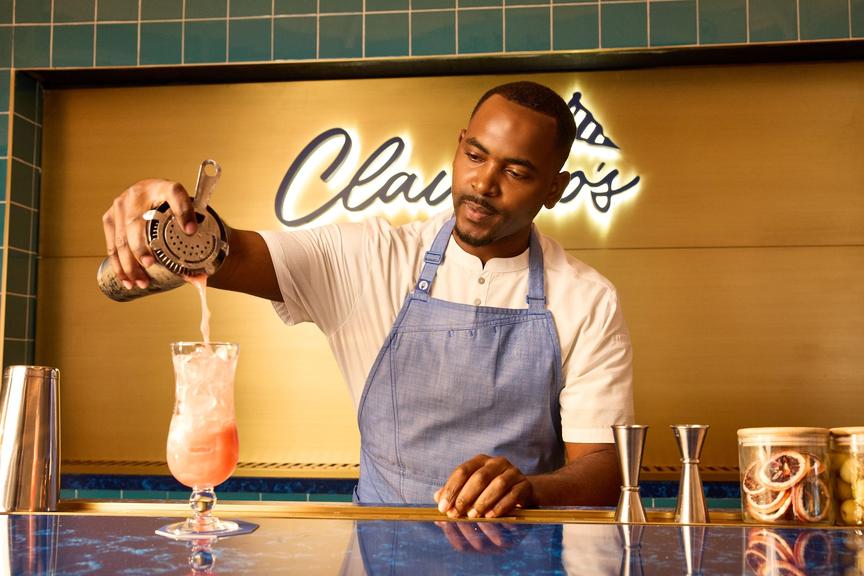

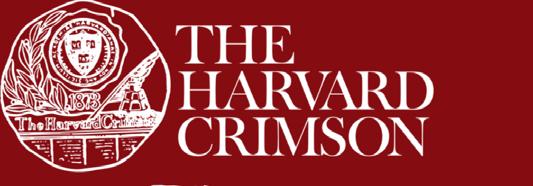




They’re tucked away in government-funded laboratories across the country. Crammed in kitchen cabinet–size cages in windowless rooms, they’re isolated, mutilated, sickened, and terrorized. Some rock endlessly or pluck themselves bald, driven mad by years of confinement. Nearly all will be killed.
Tens of thousands of individuals suffer this way every year—even though experiments on them consistently fail to benefit human health.


BY E. MATTEO DIAZ AND PAVAN V. THAKKAR
